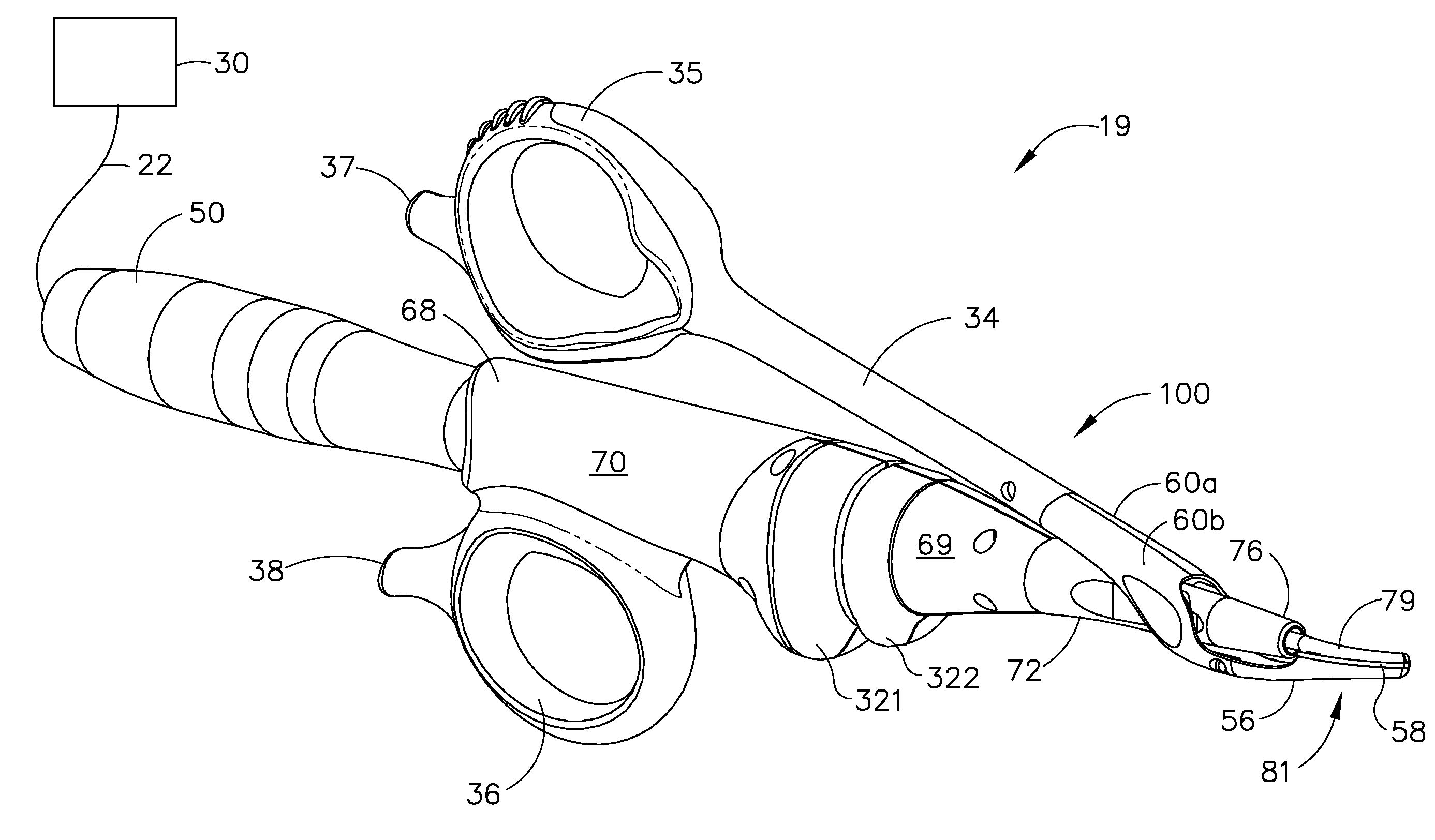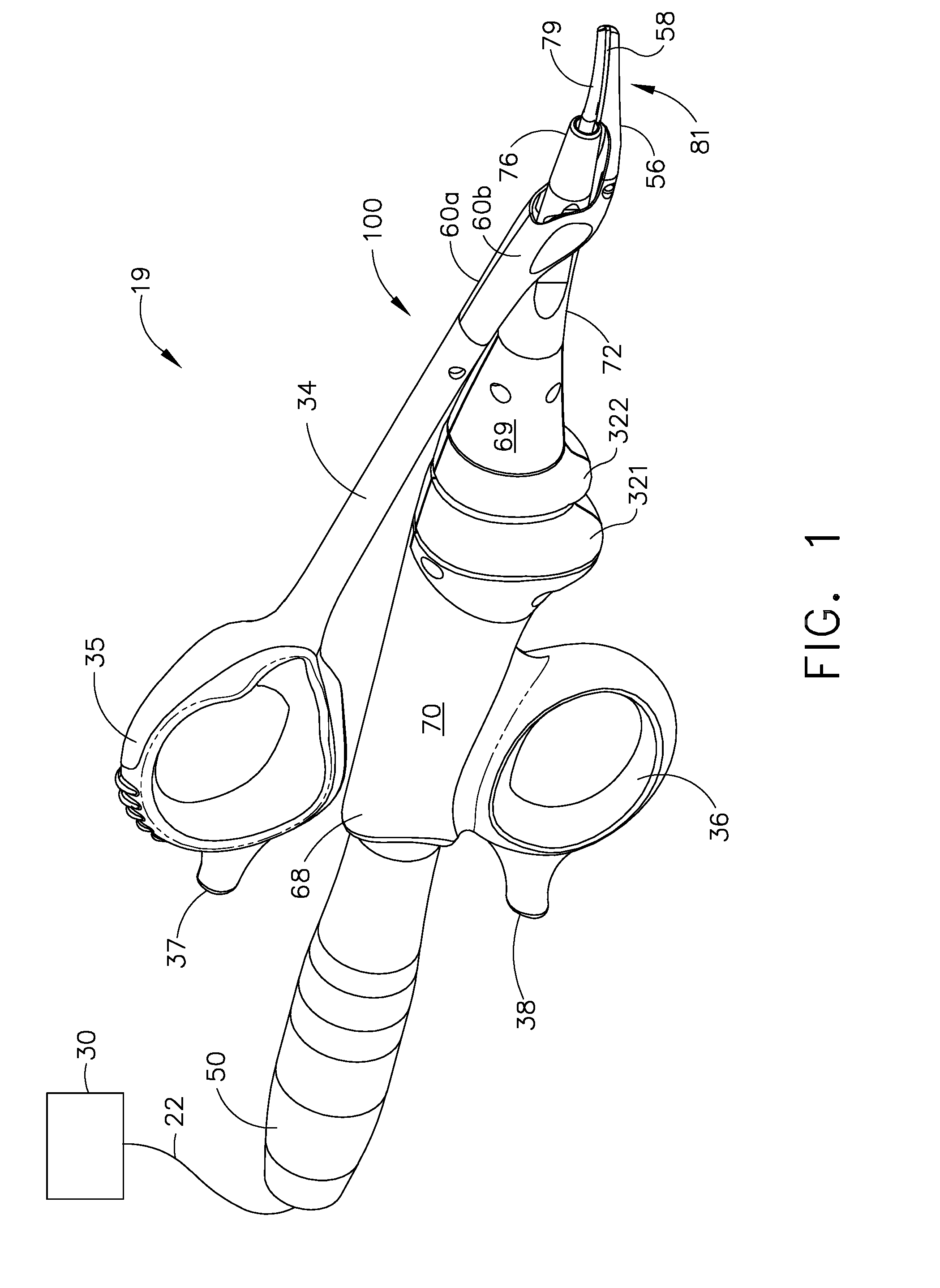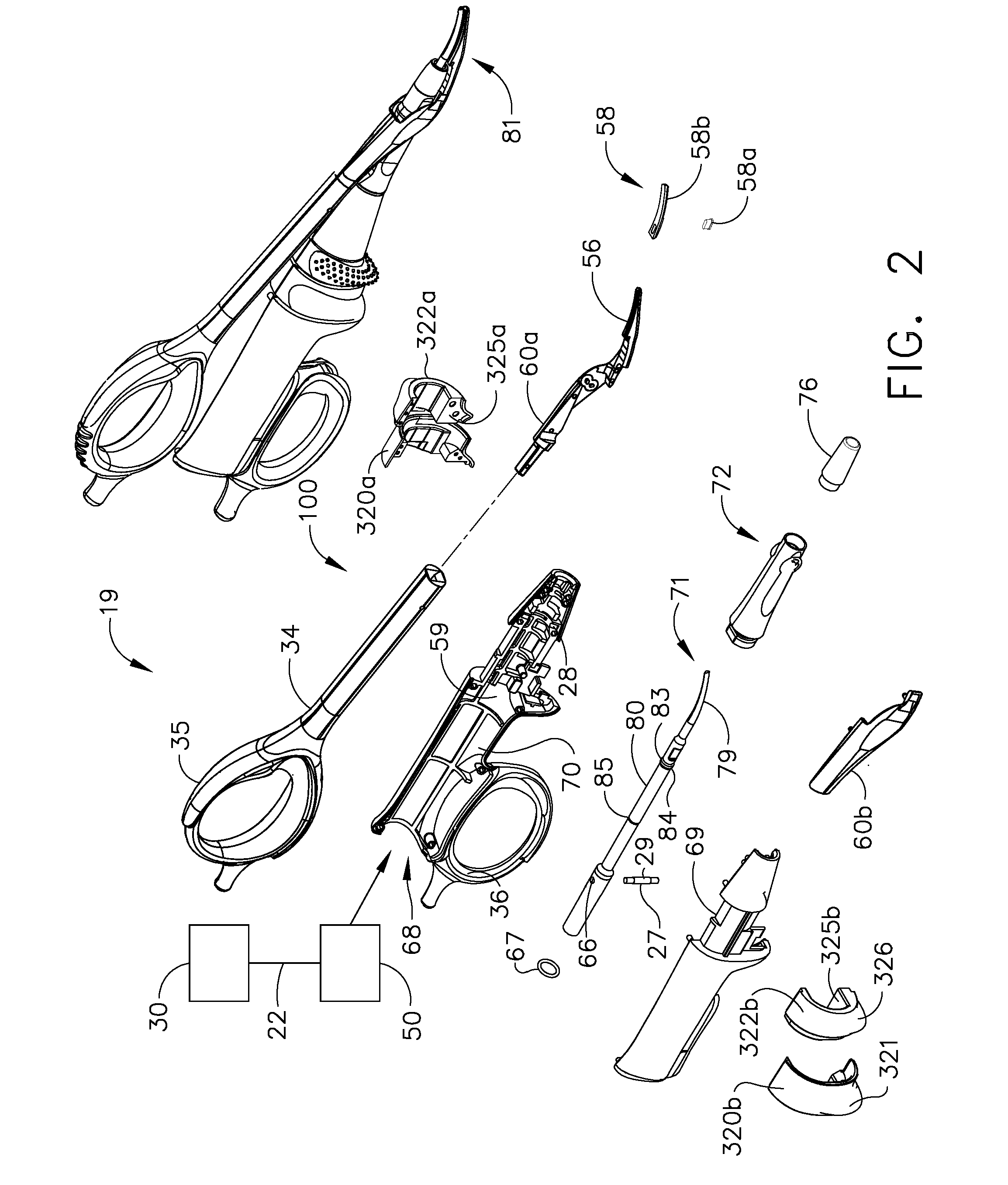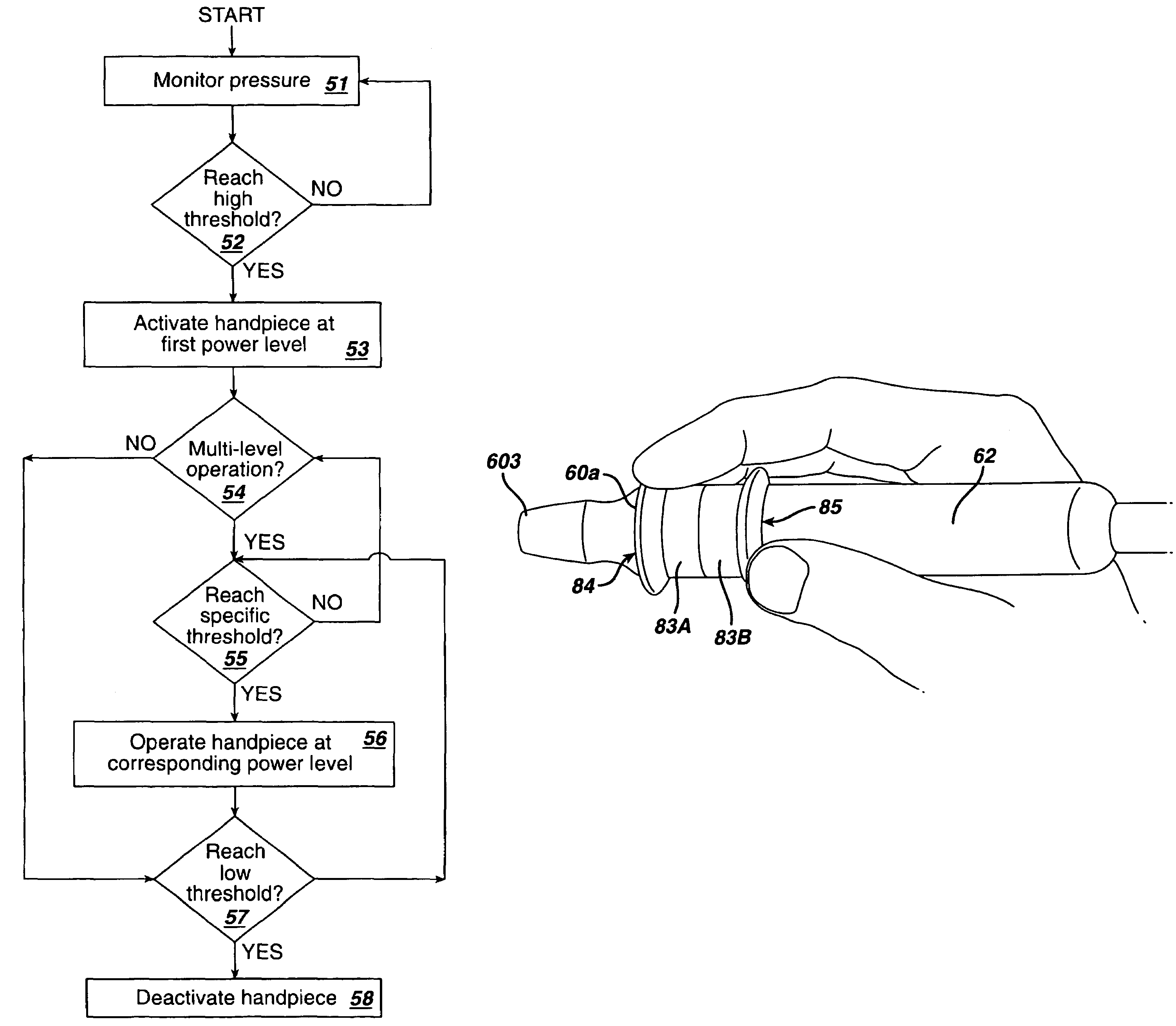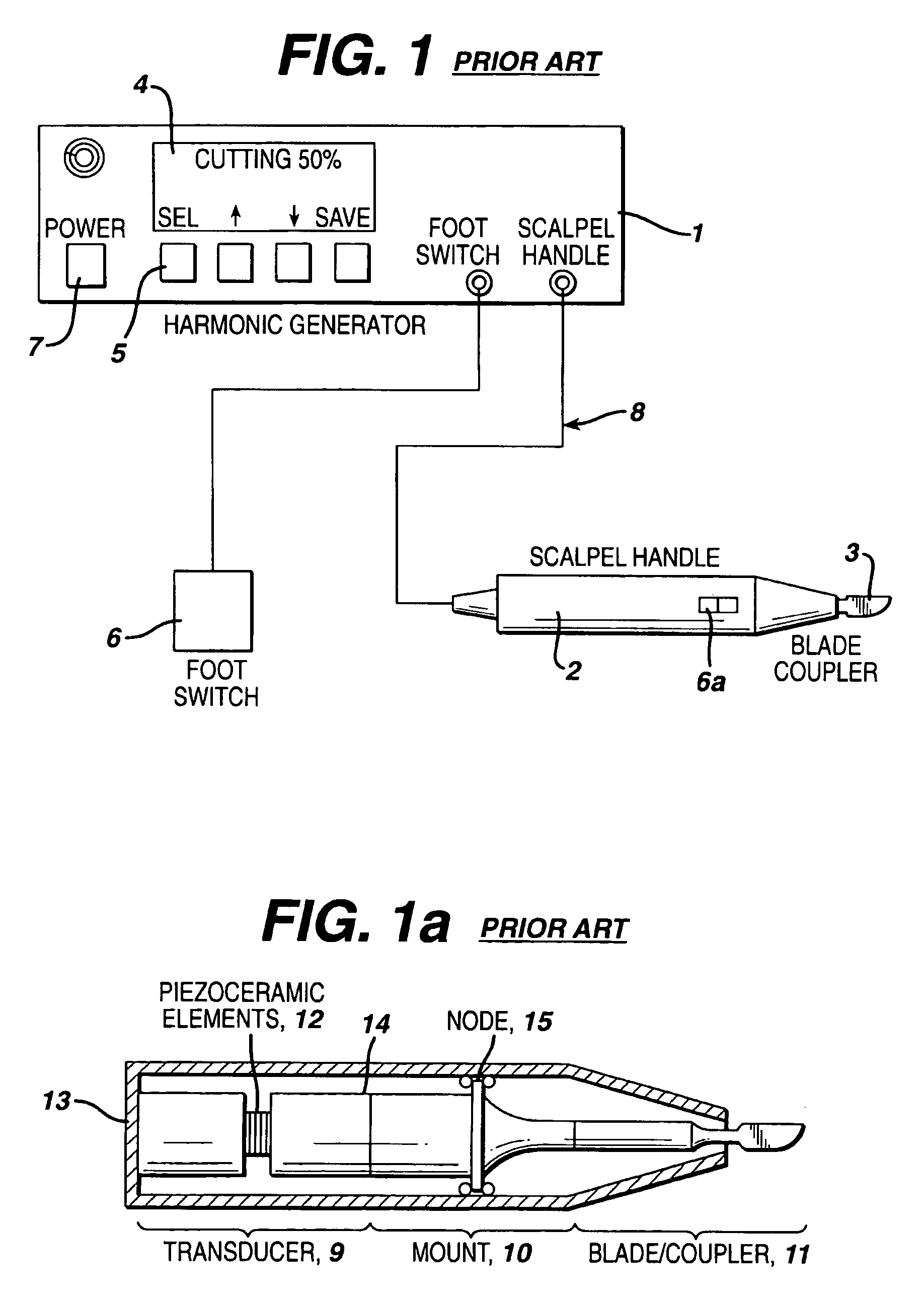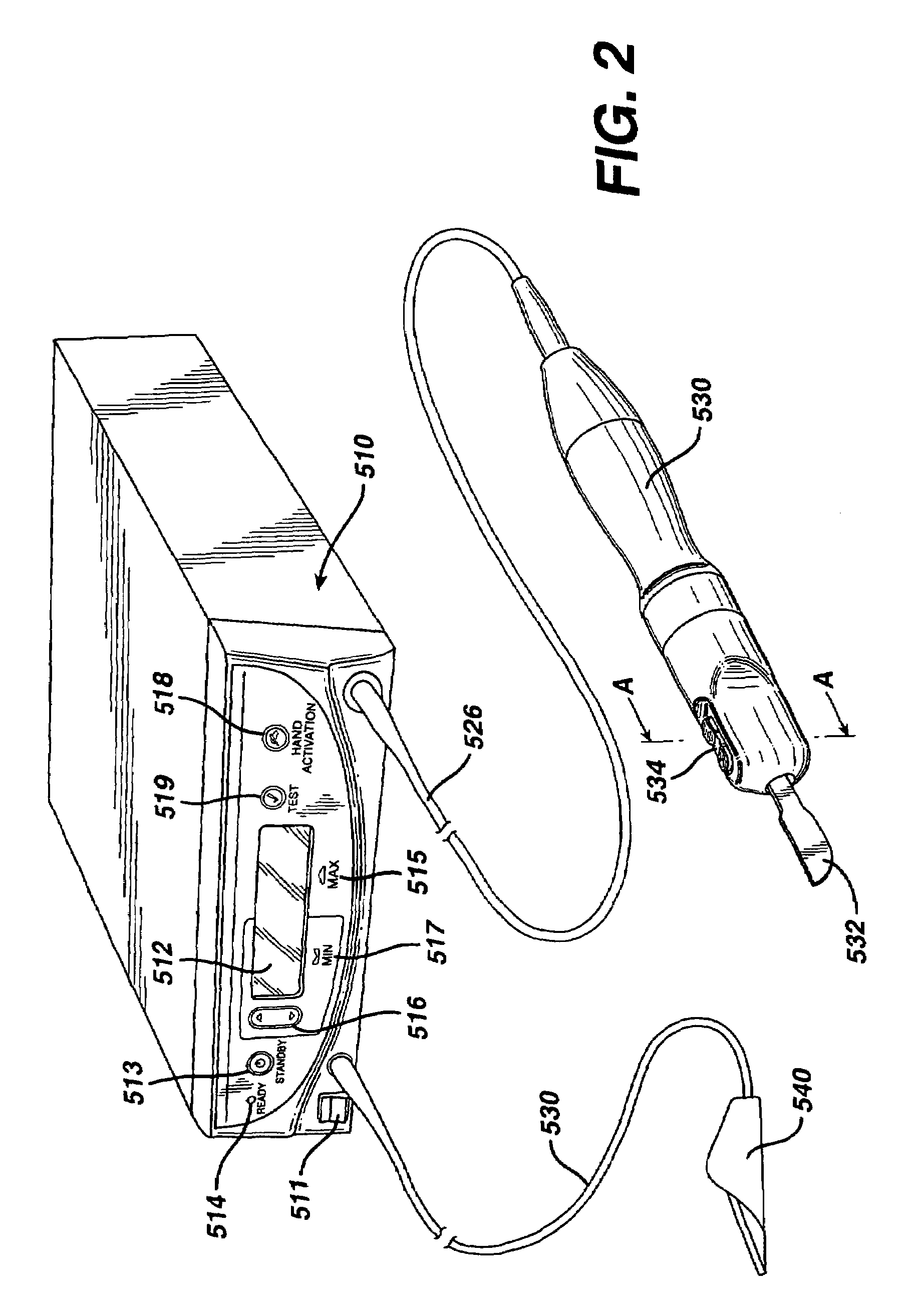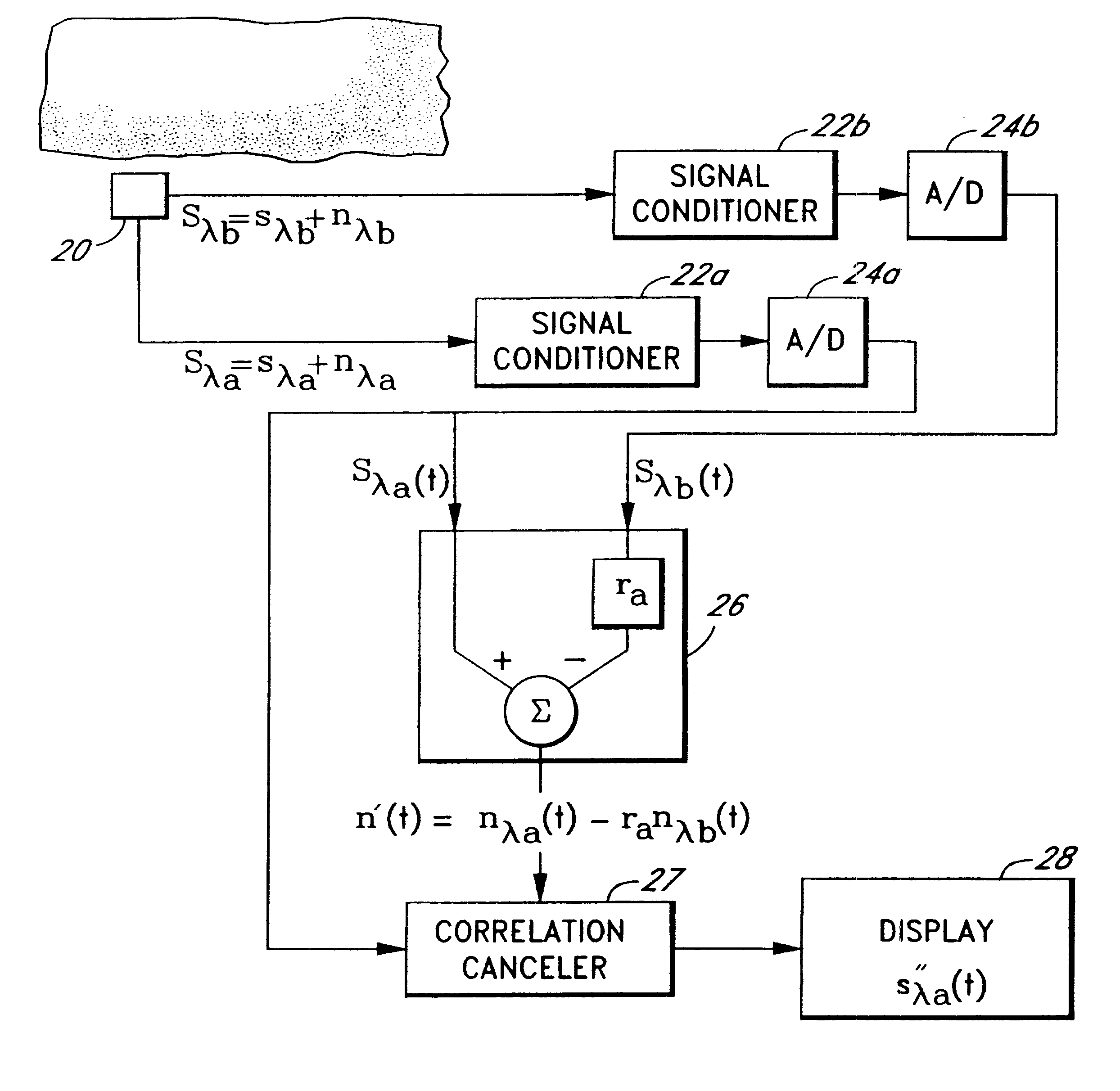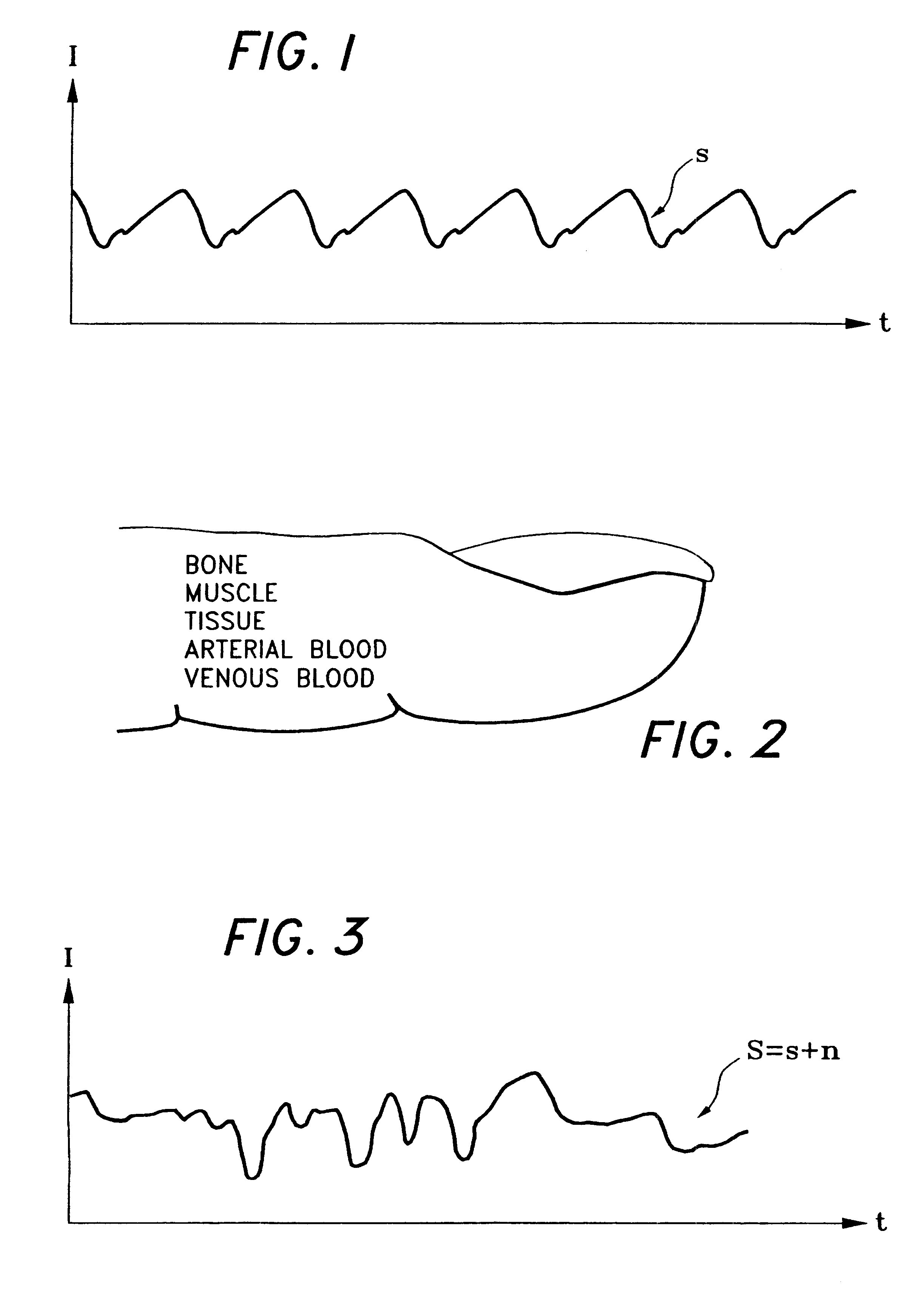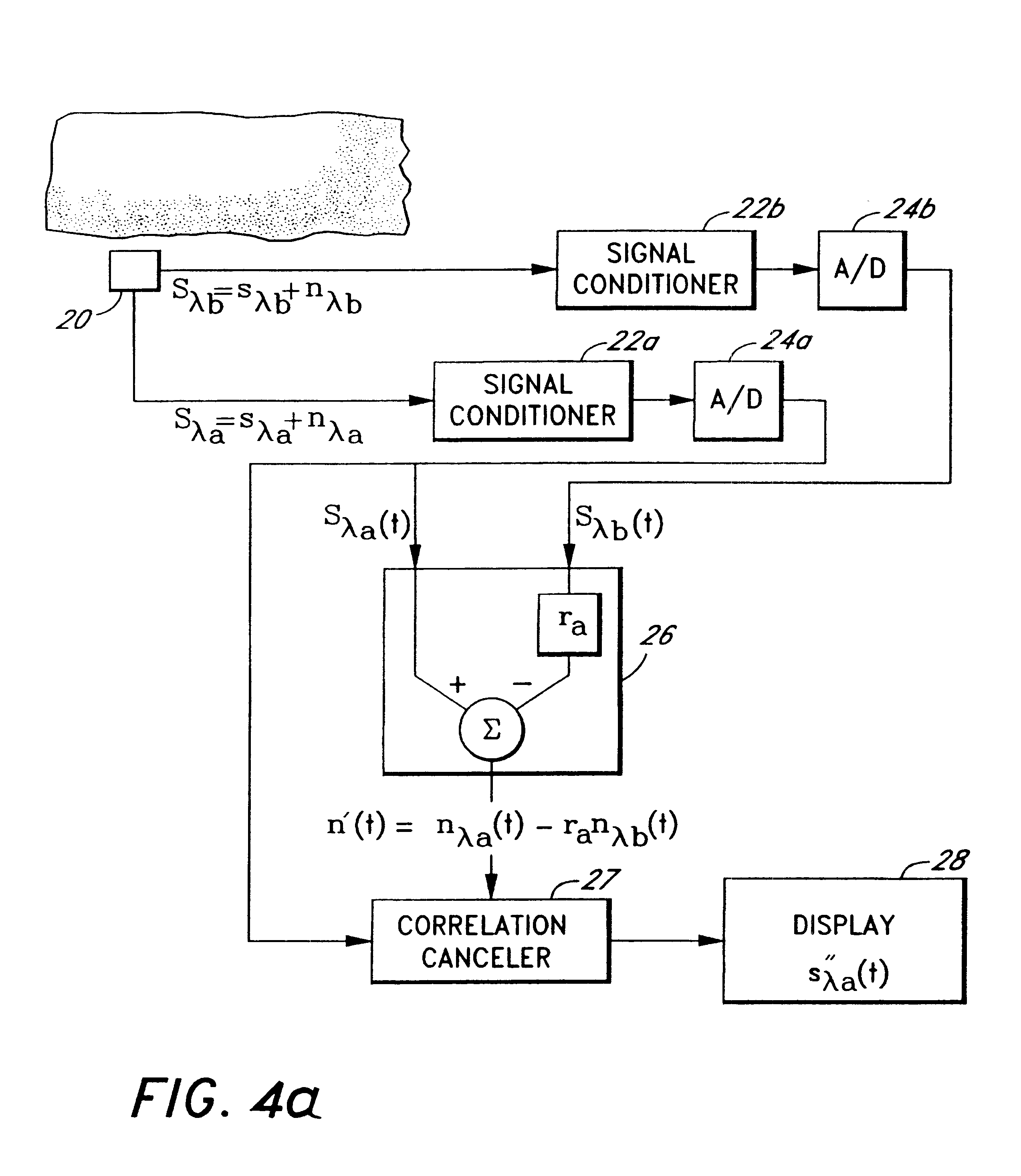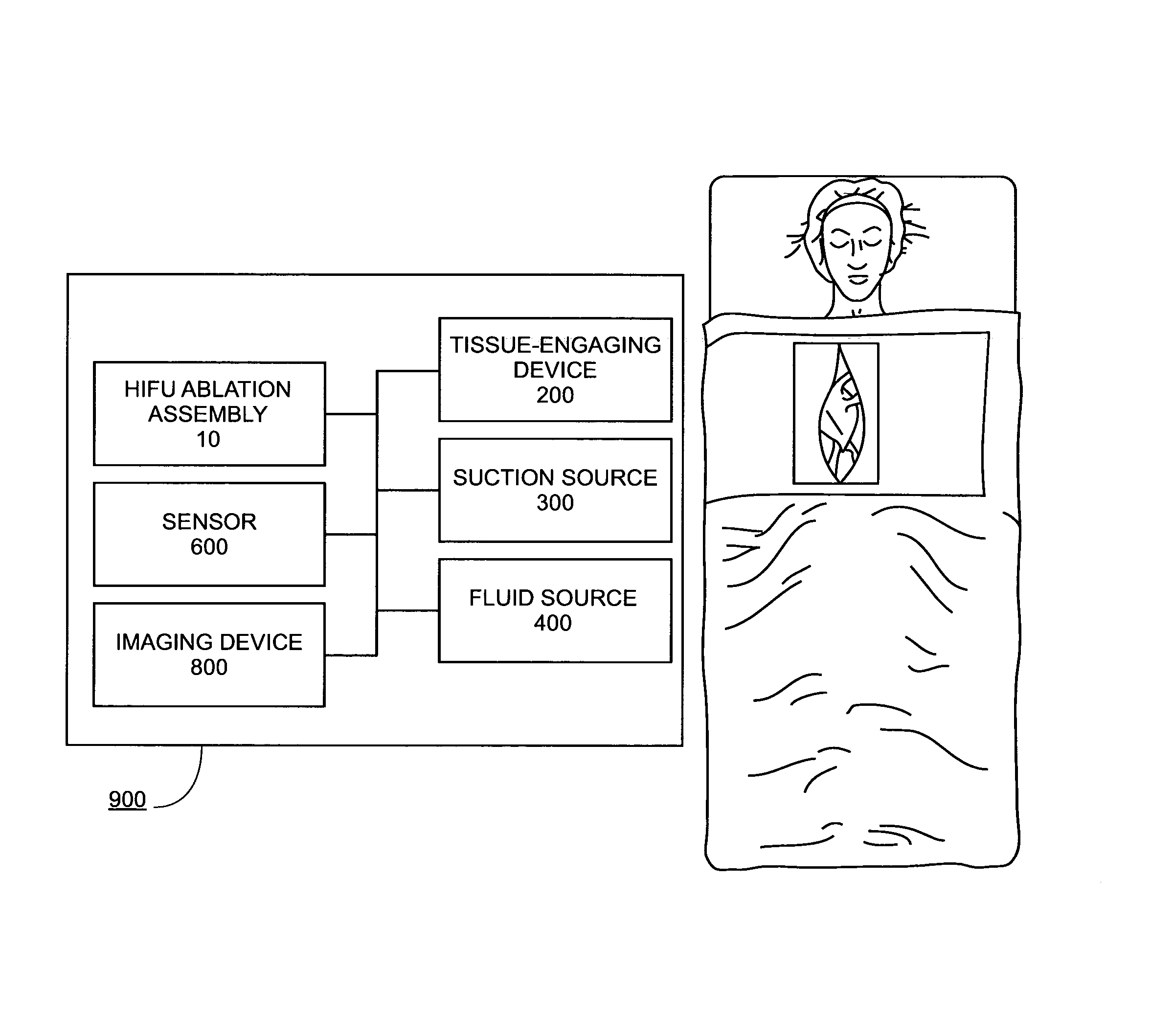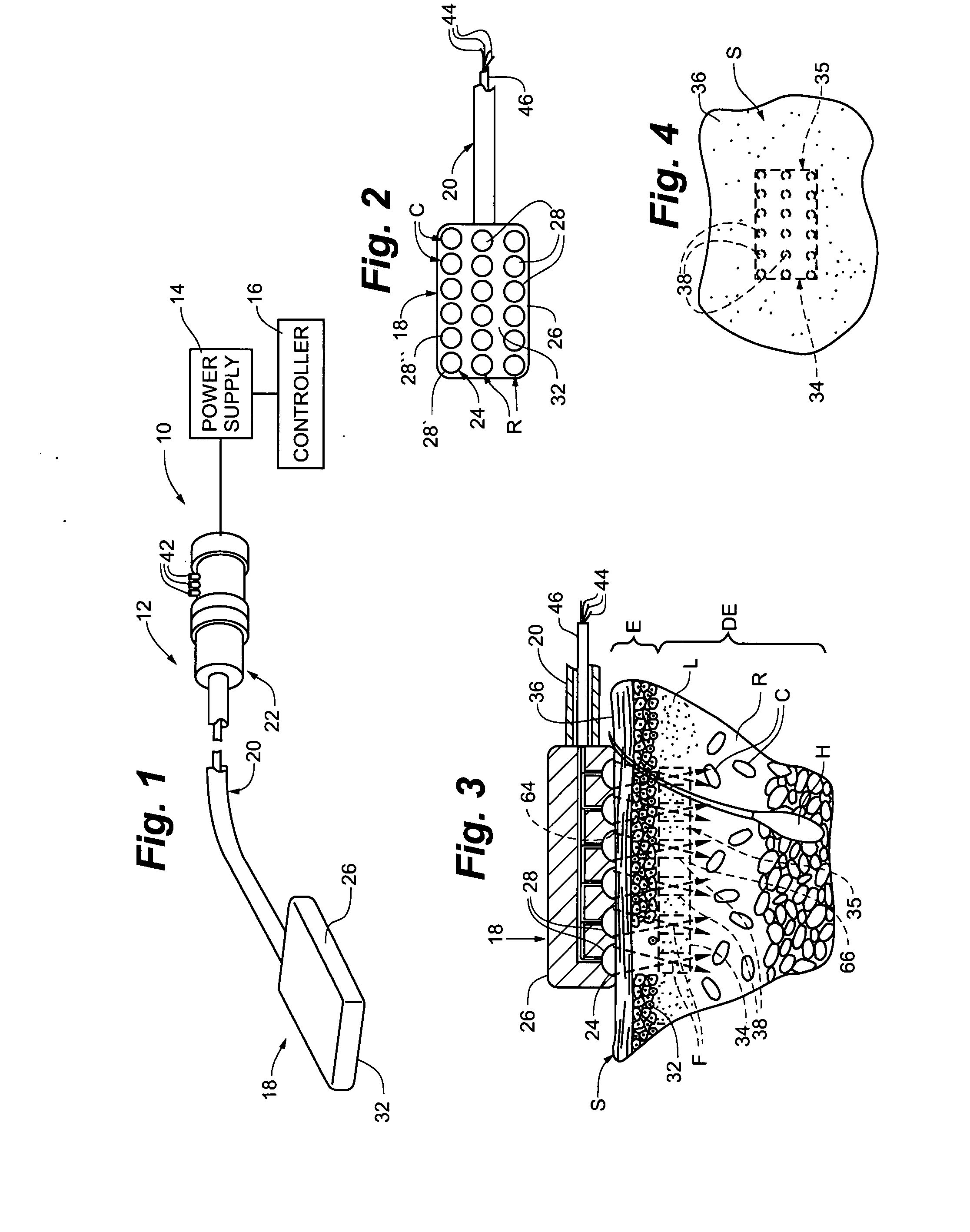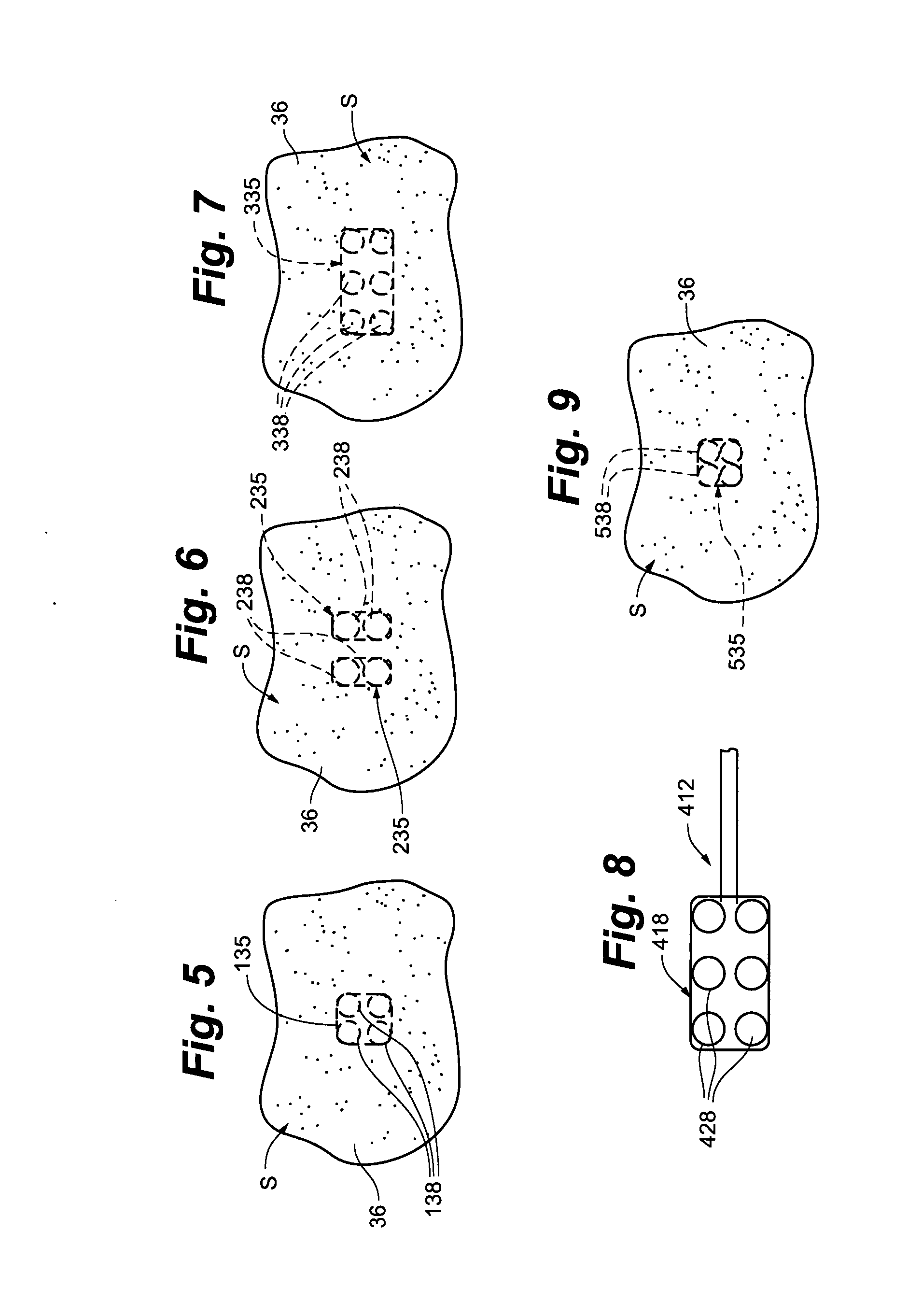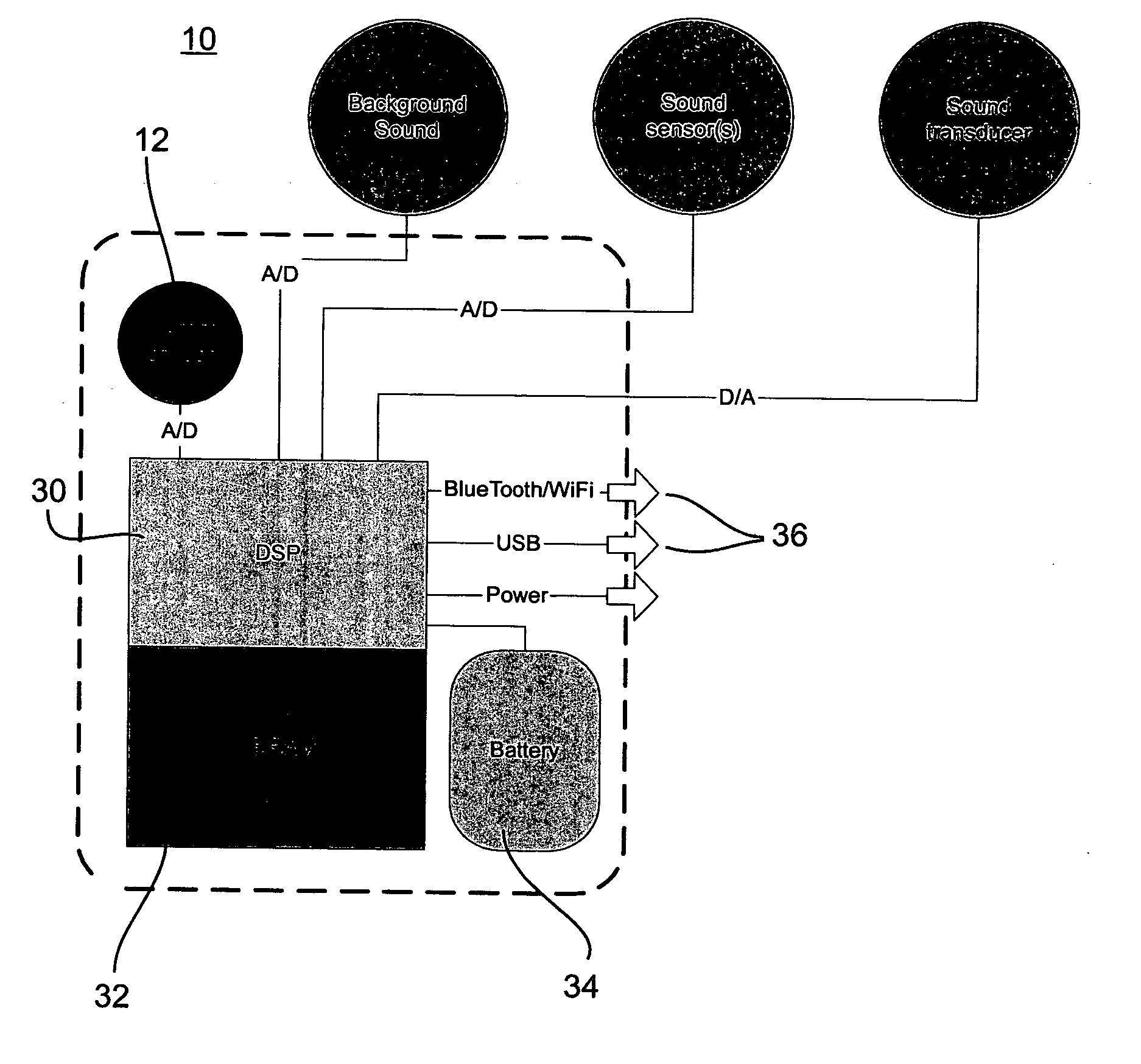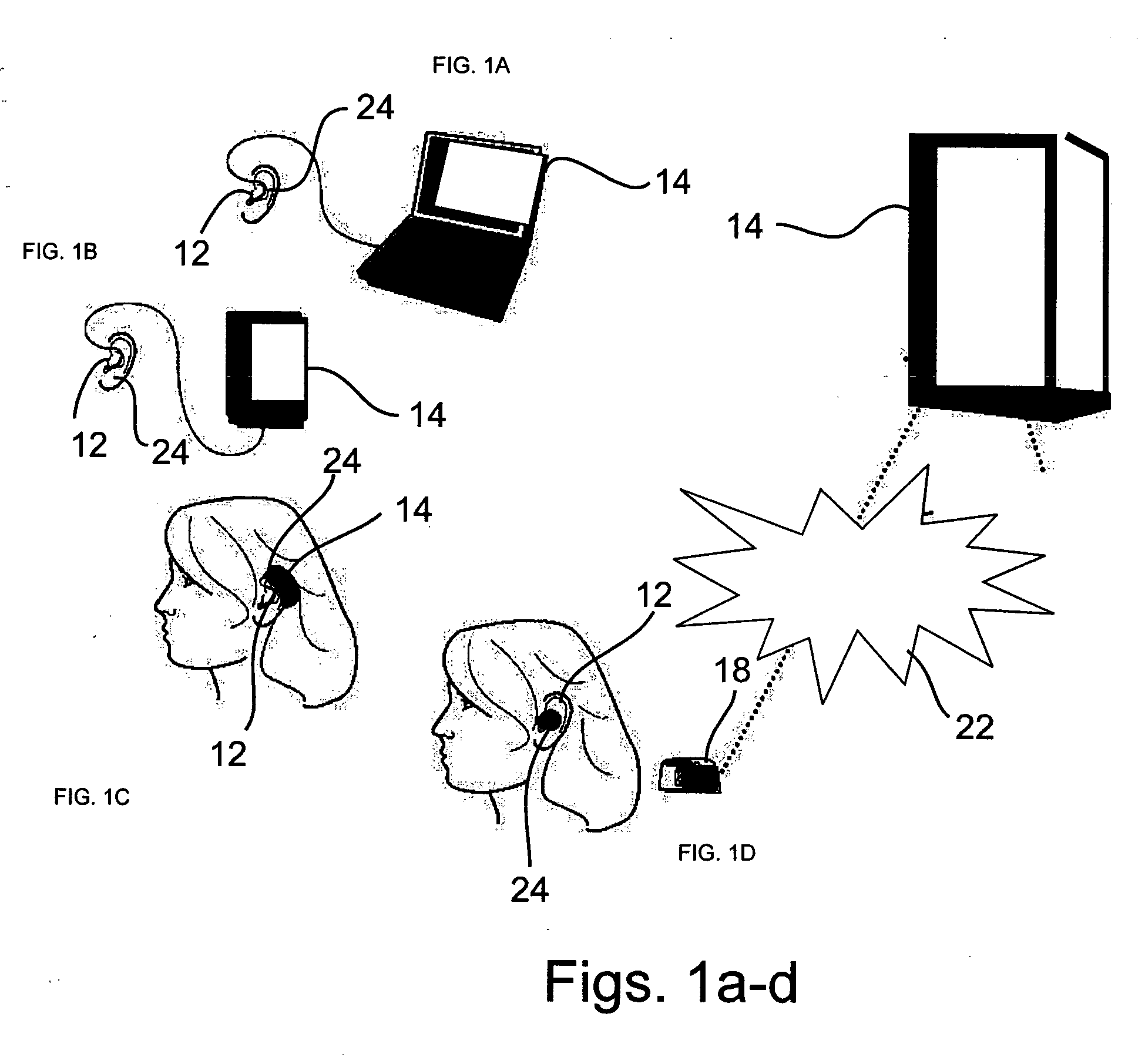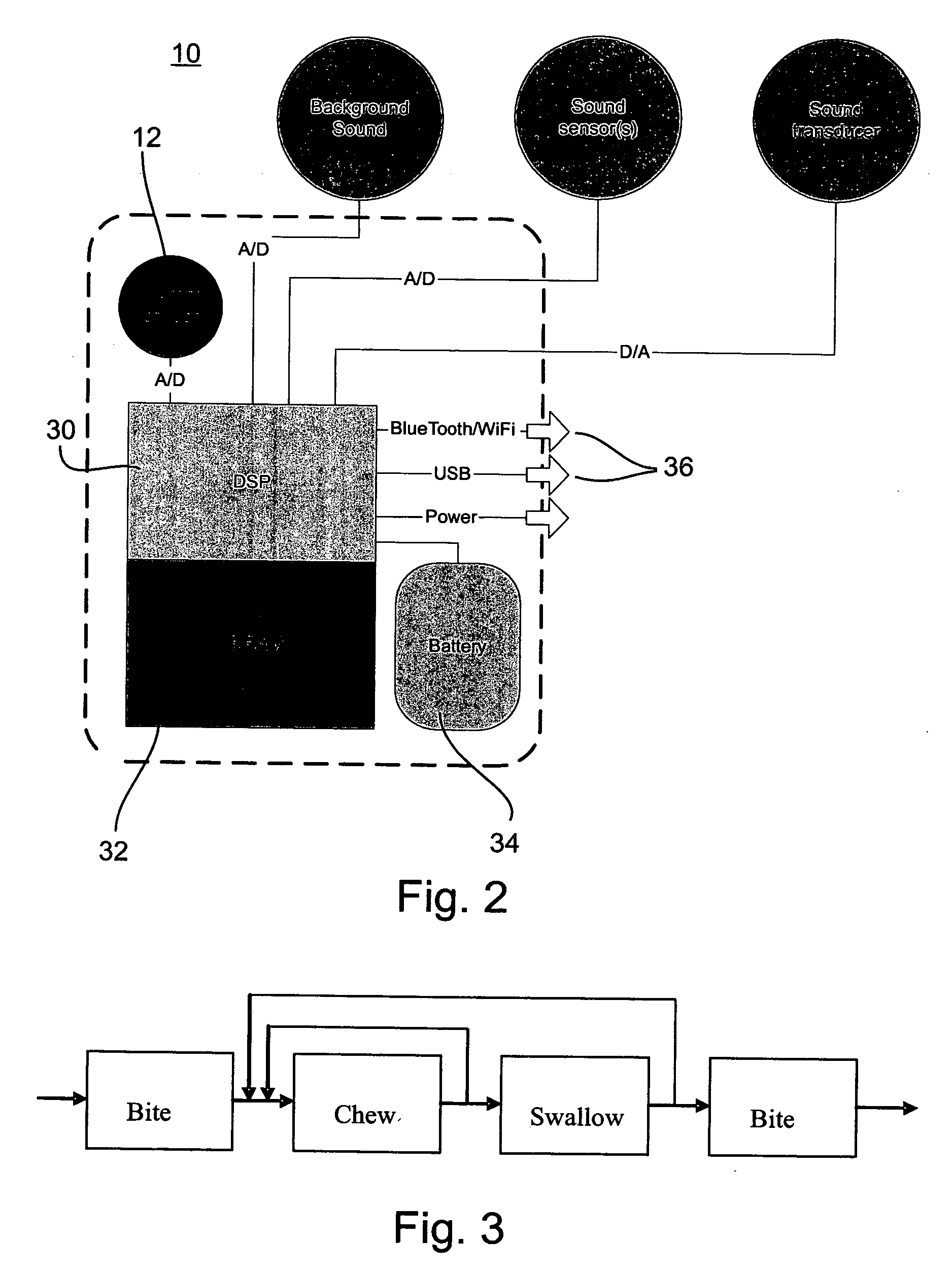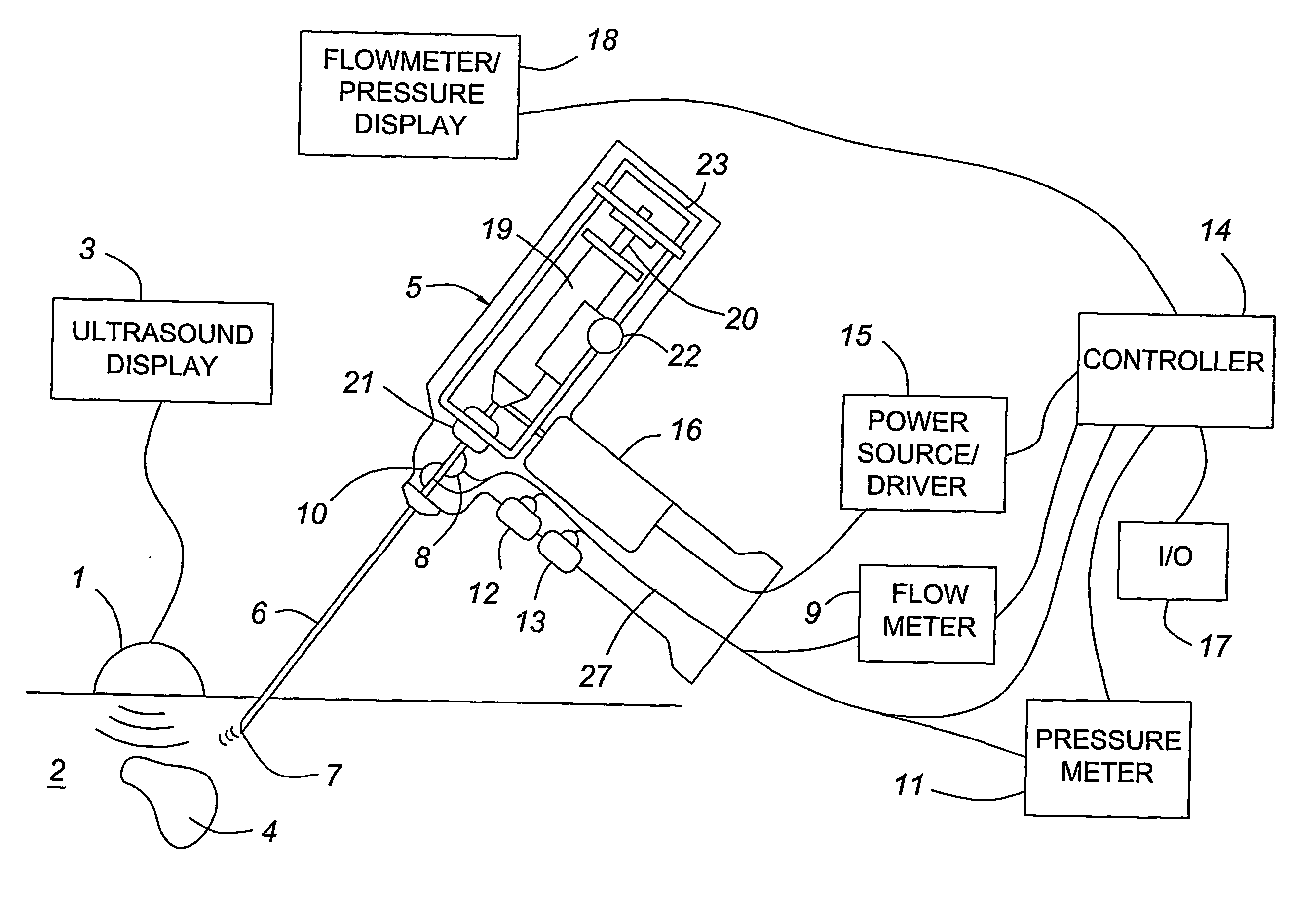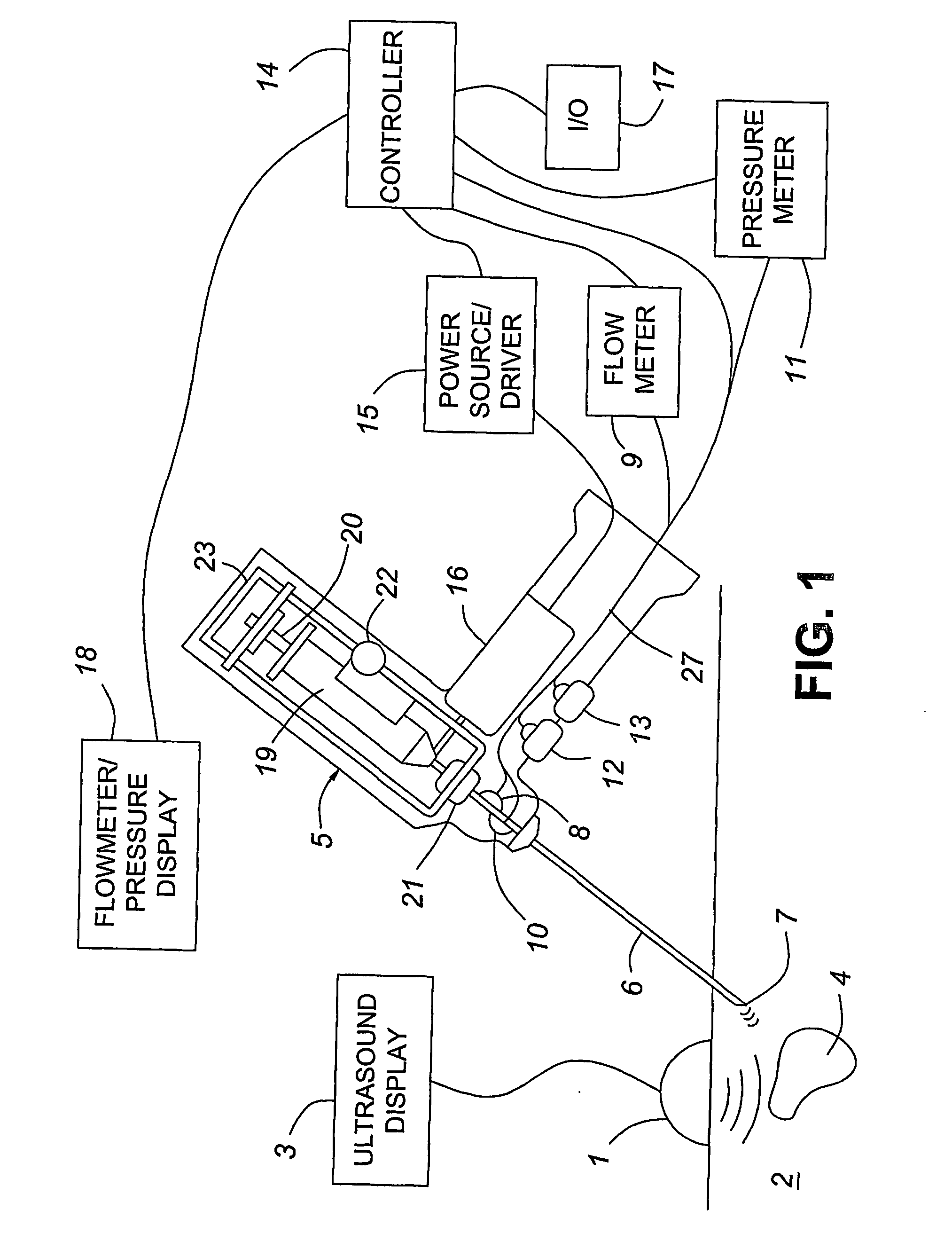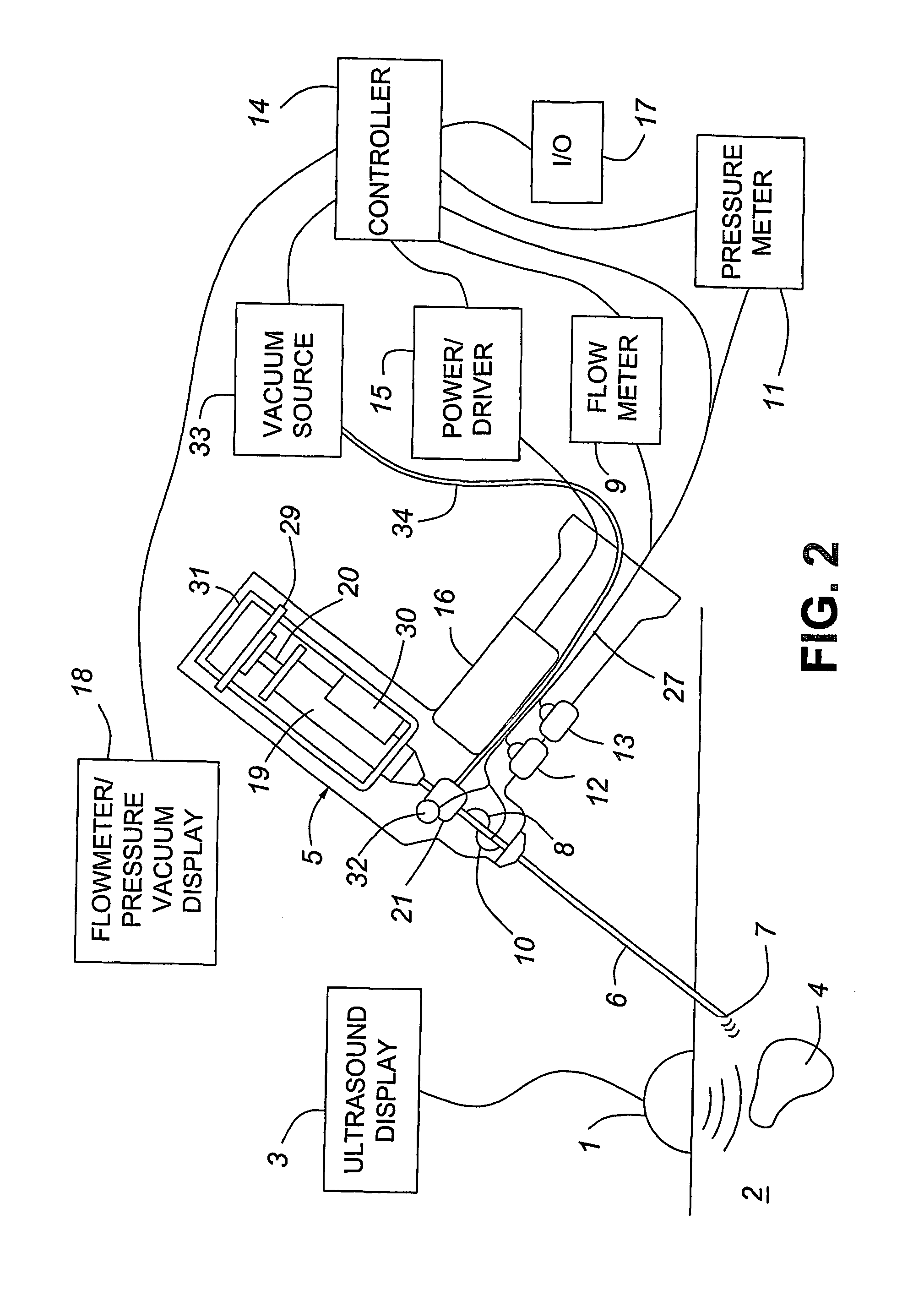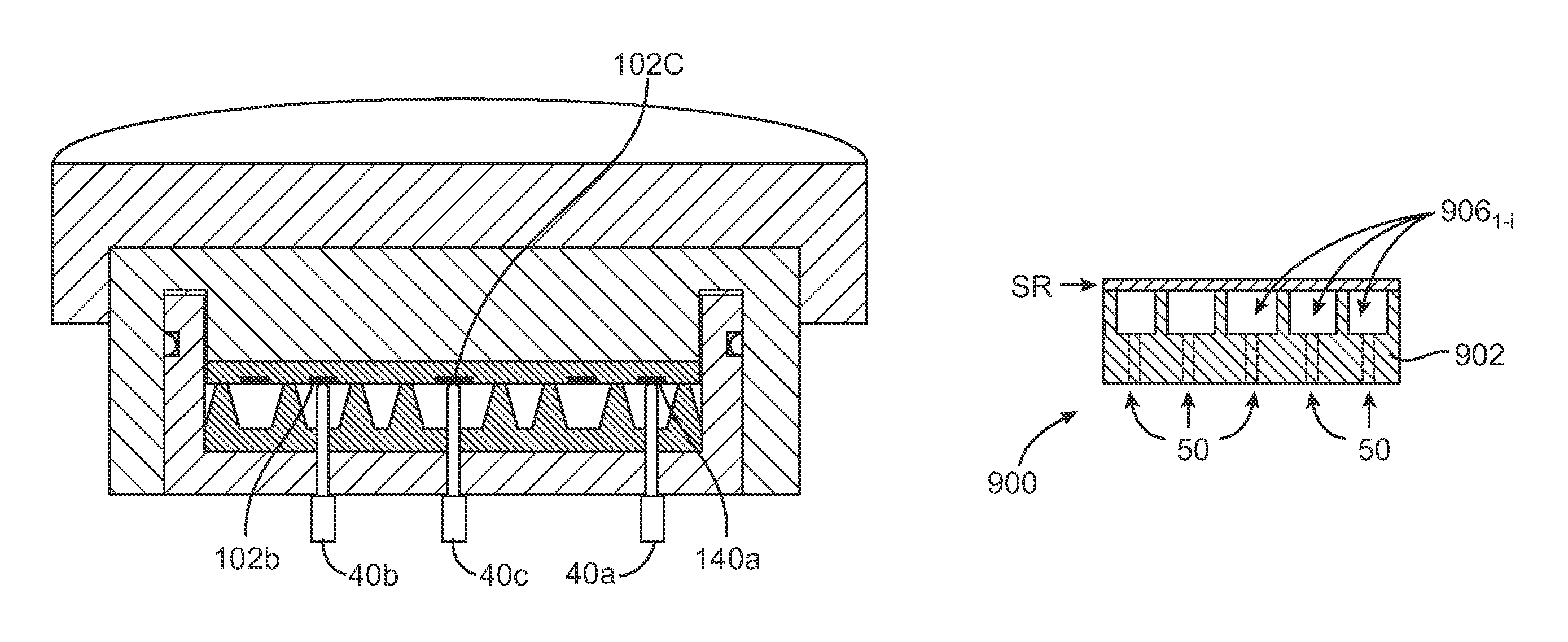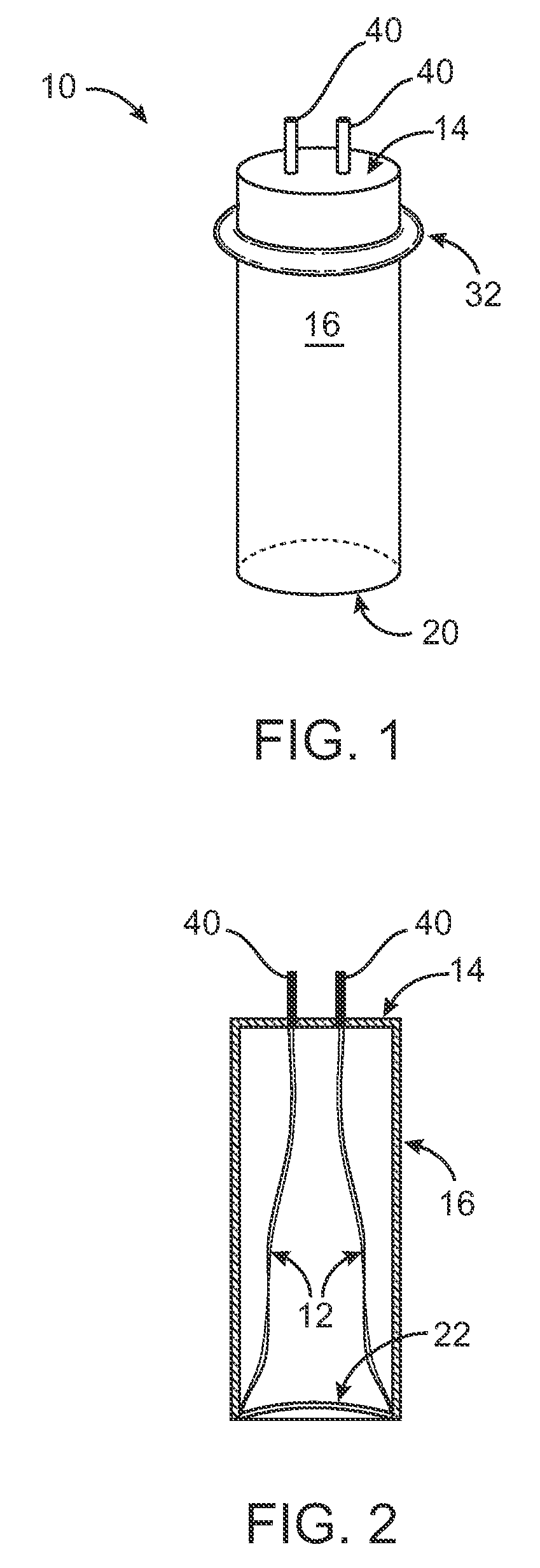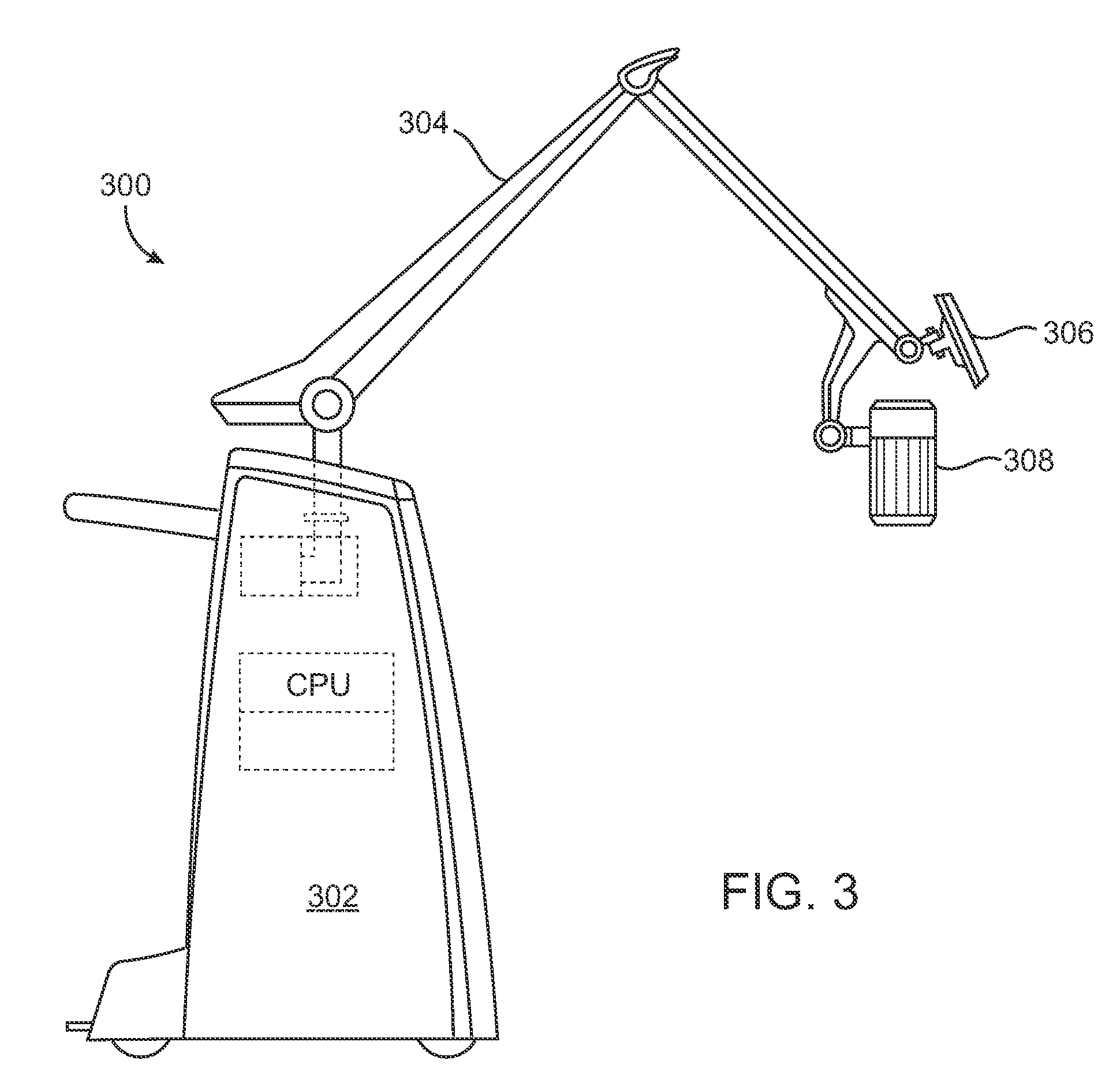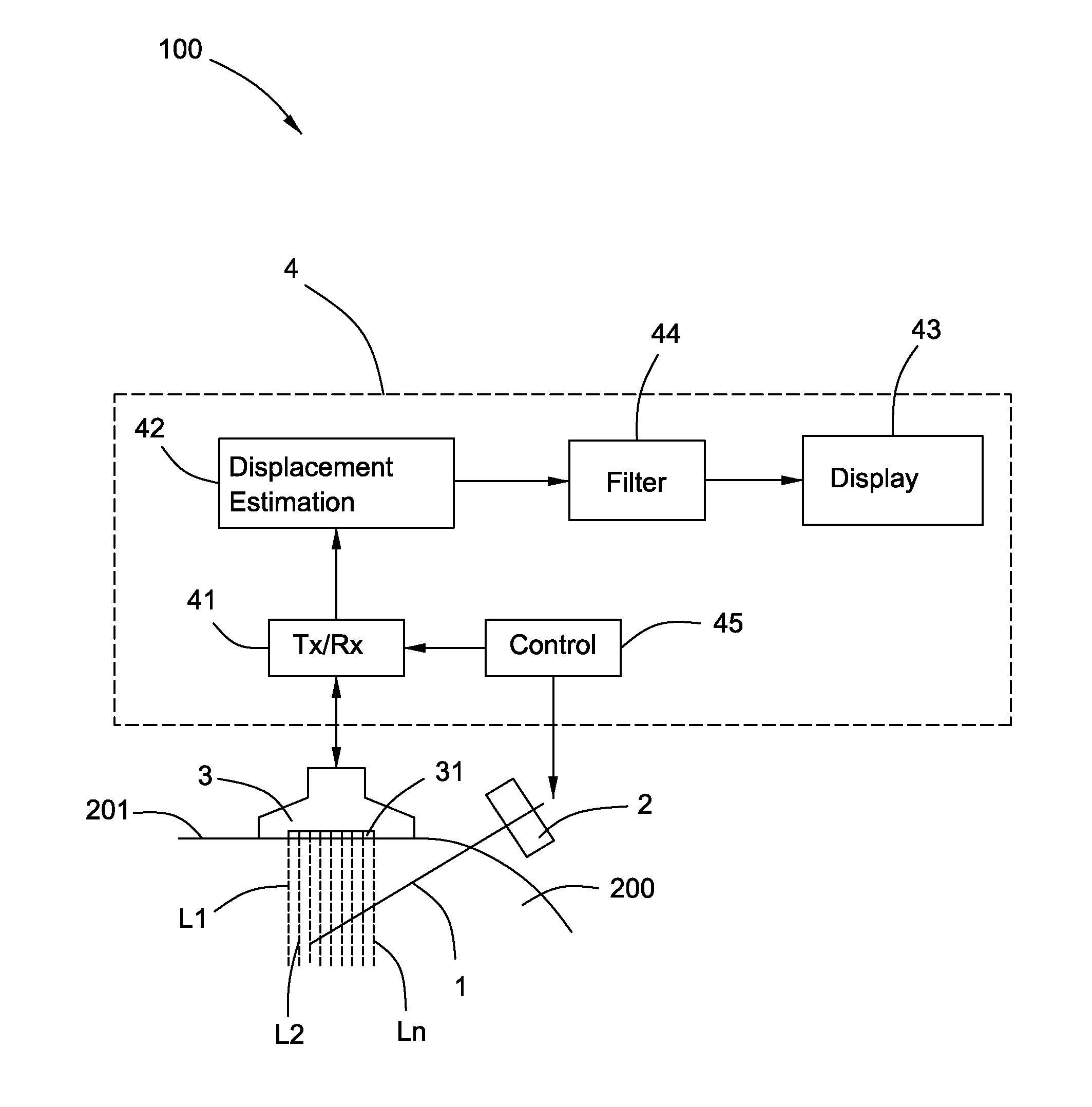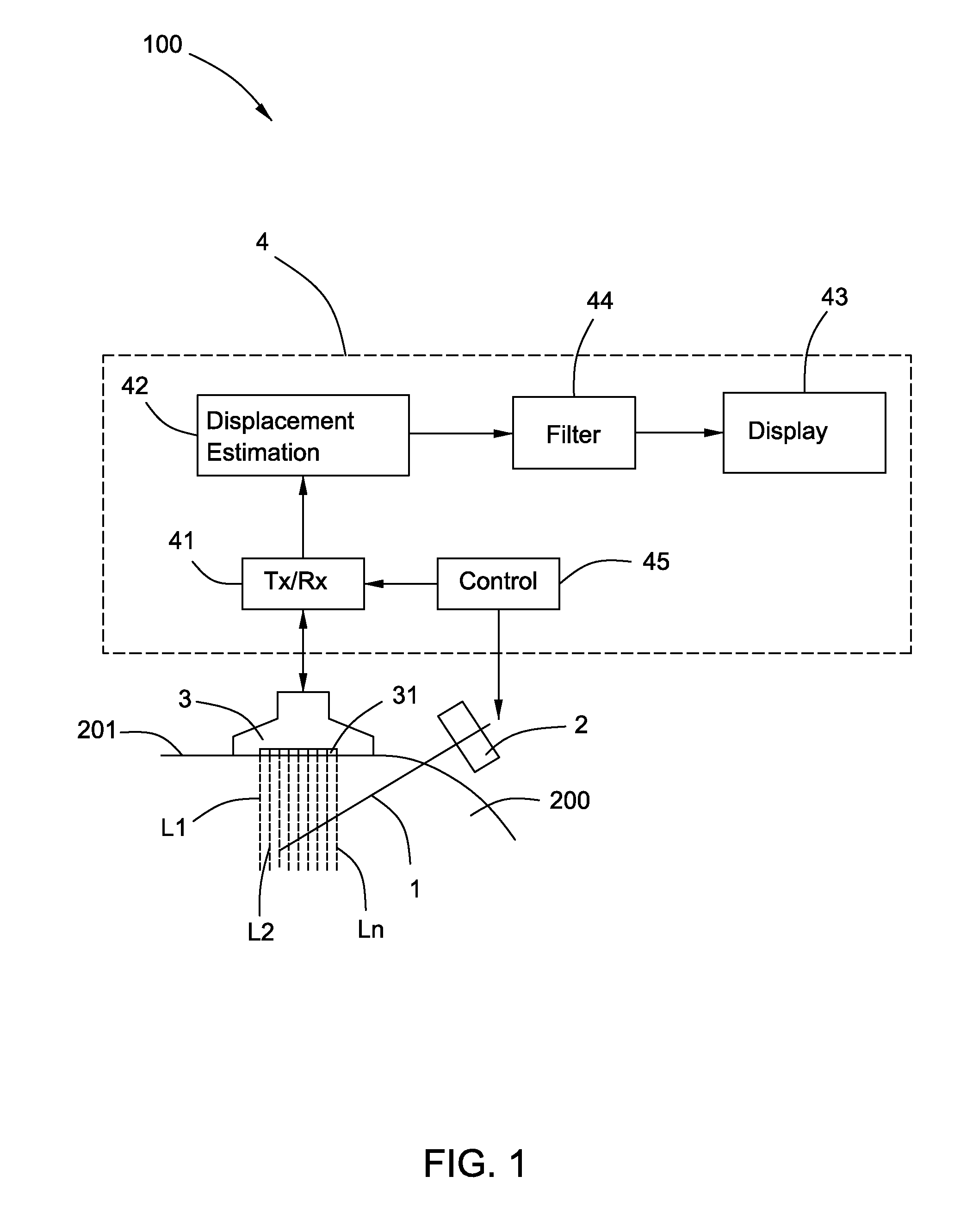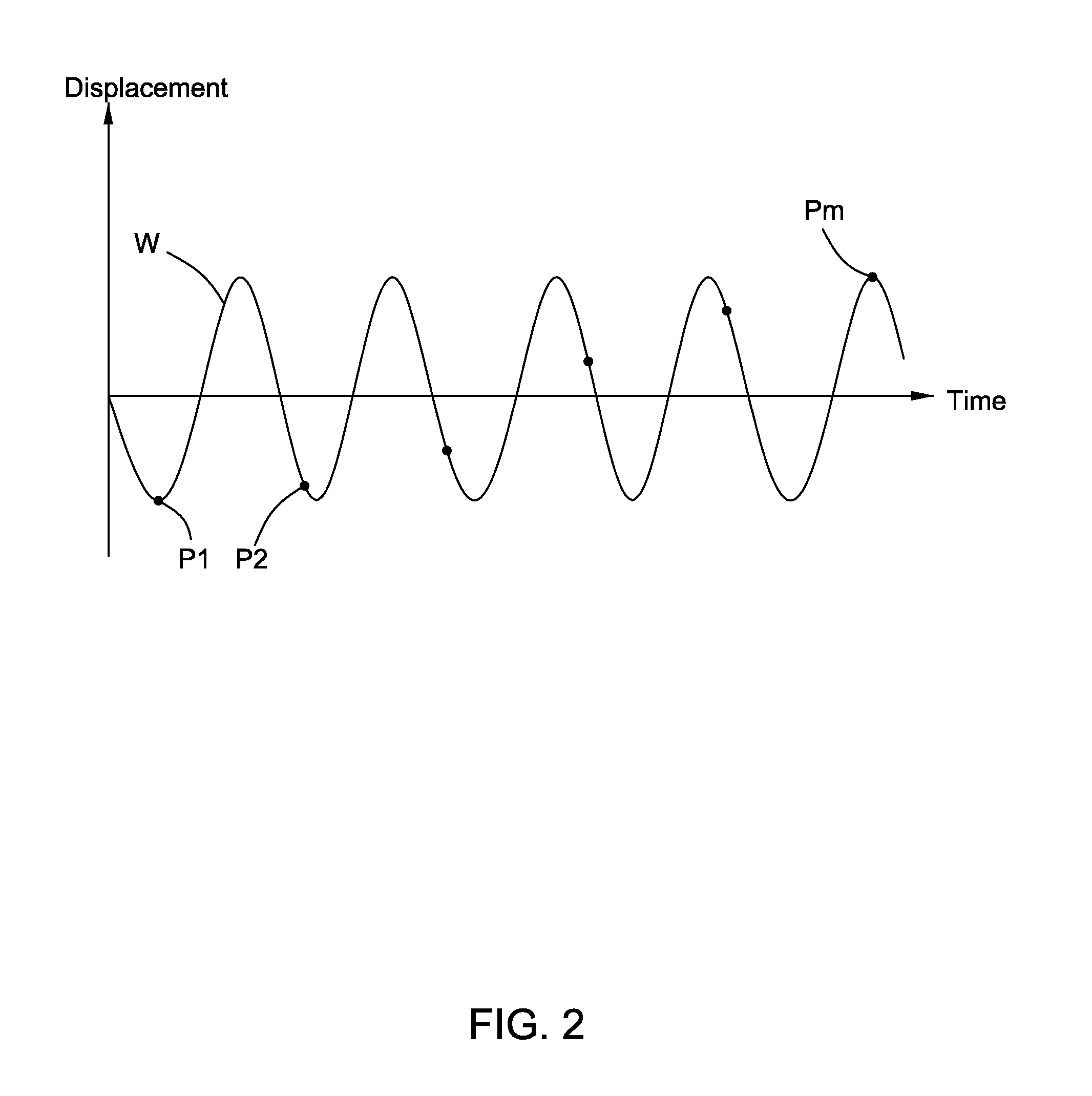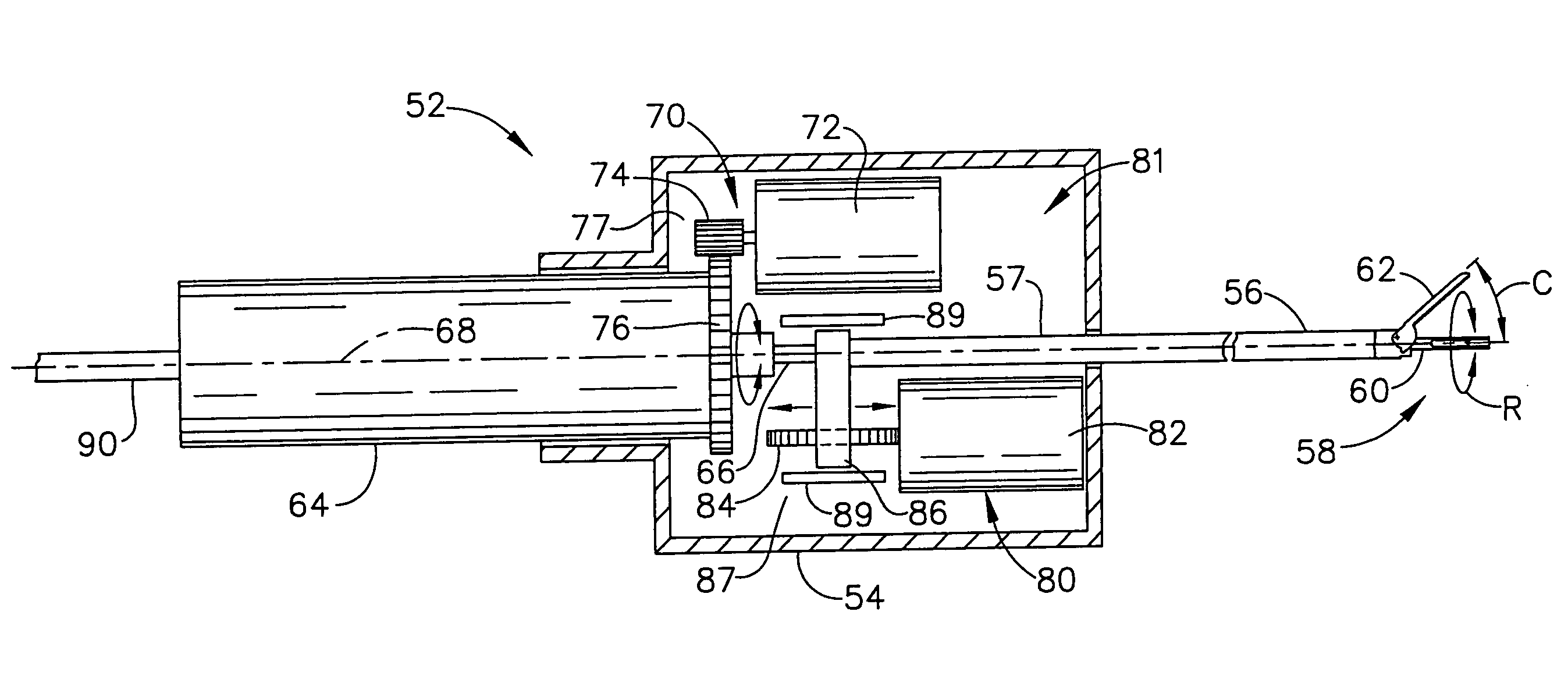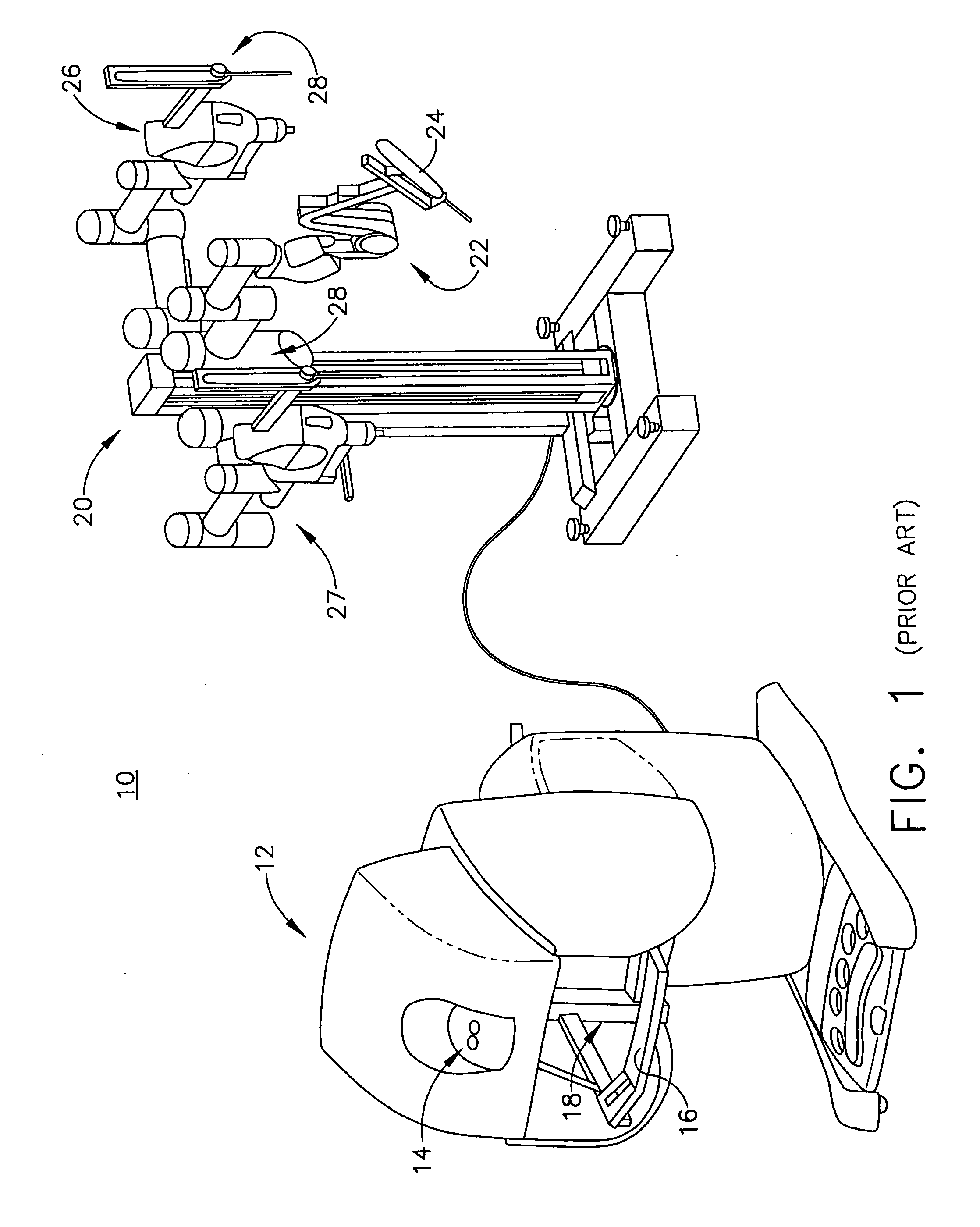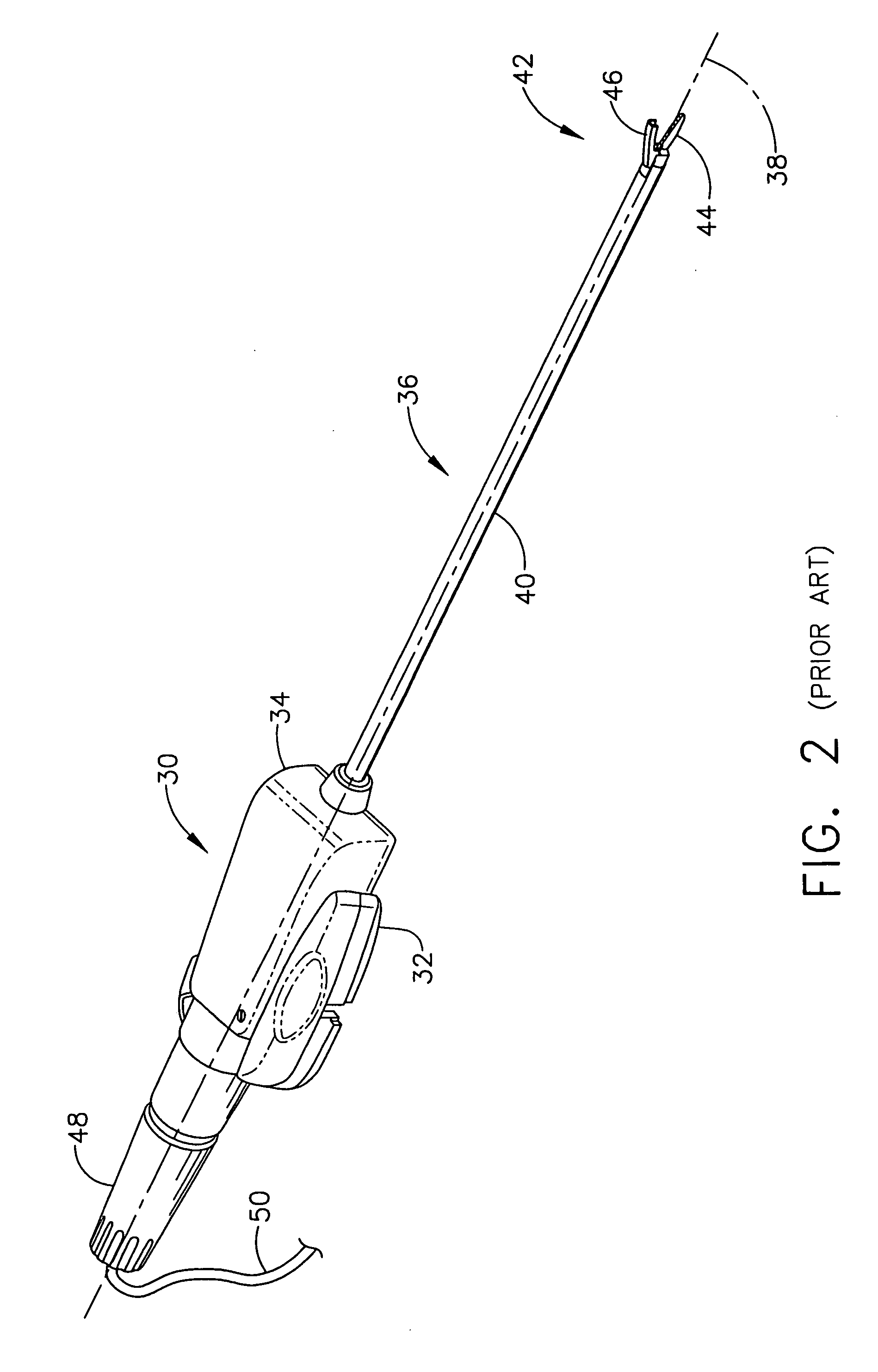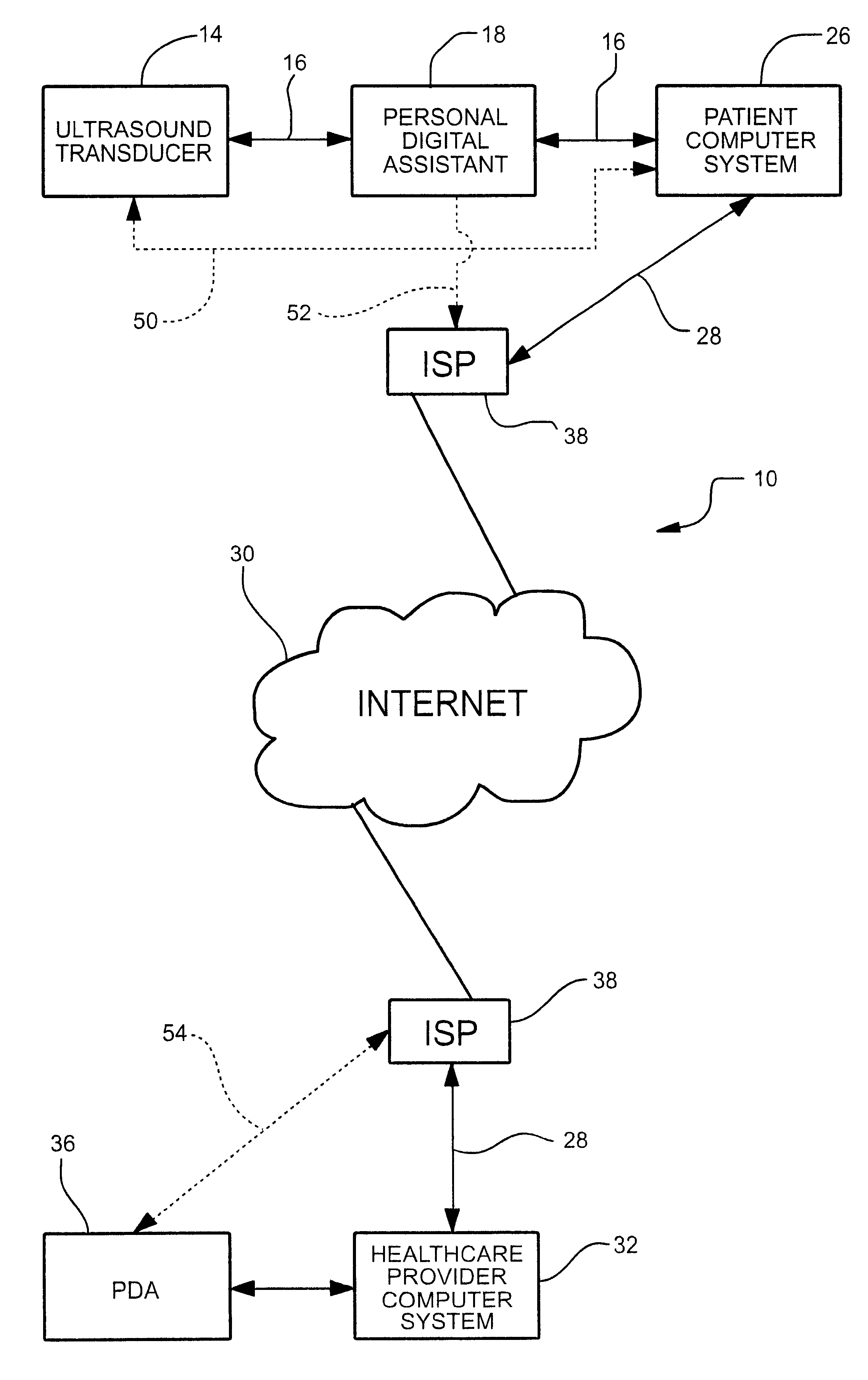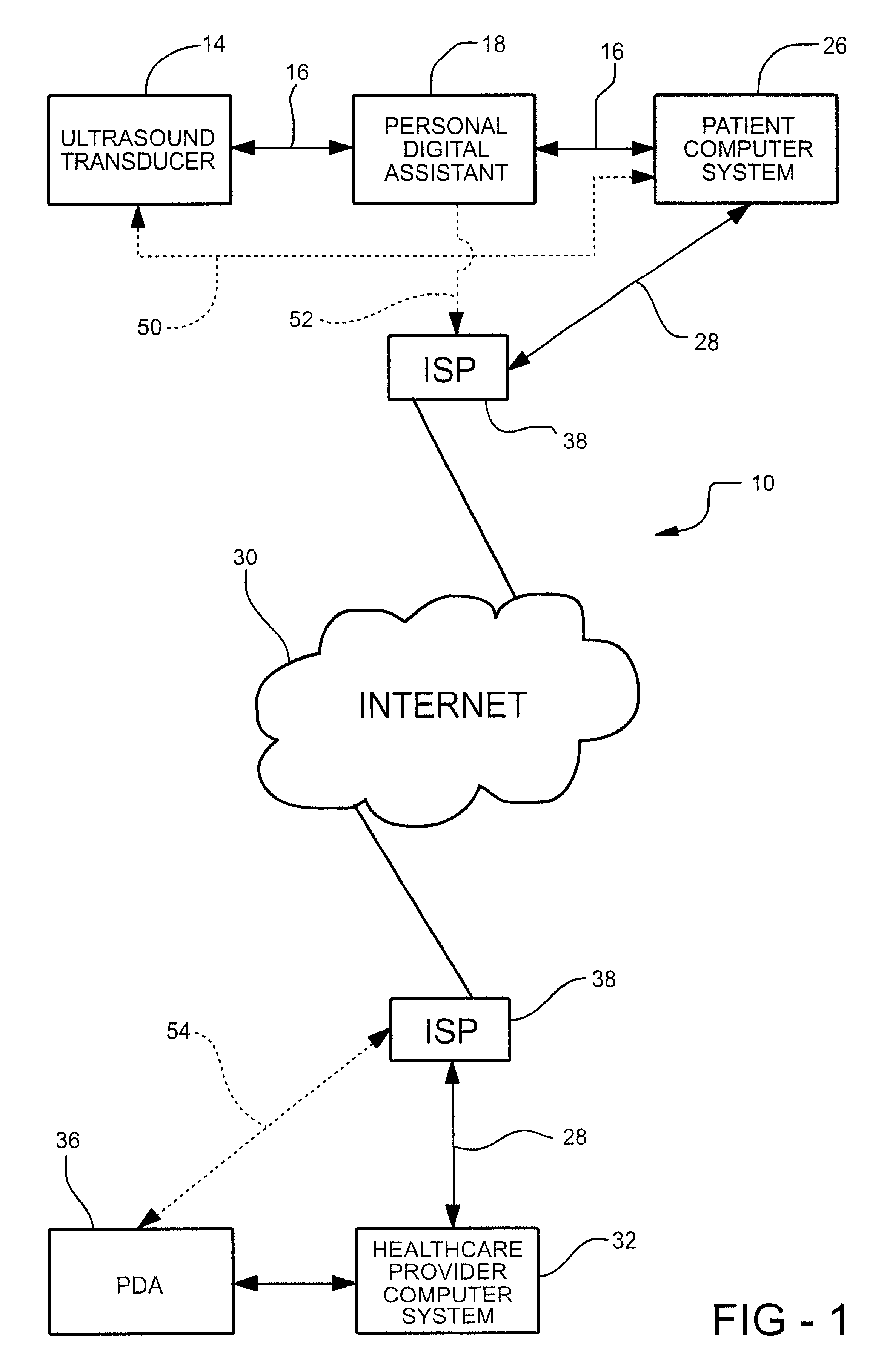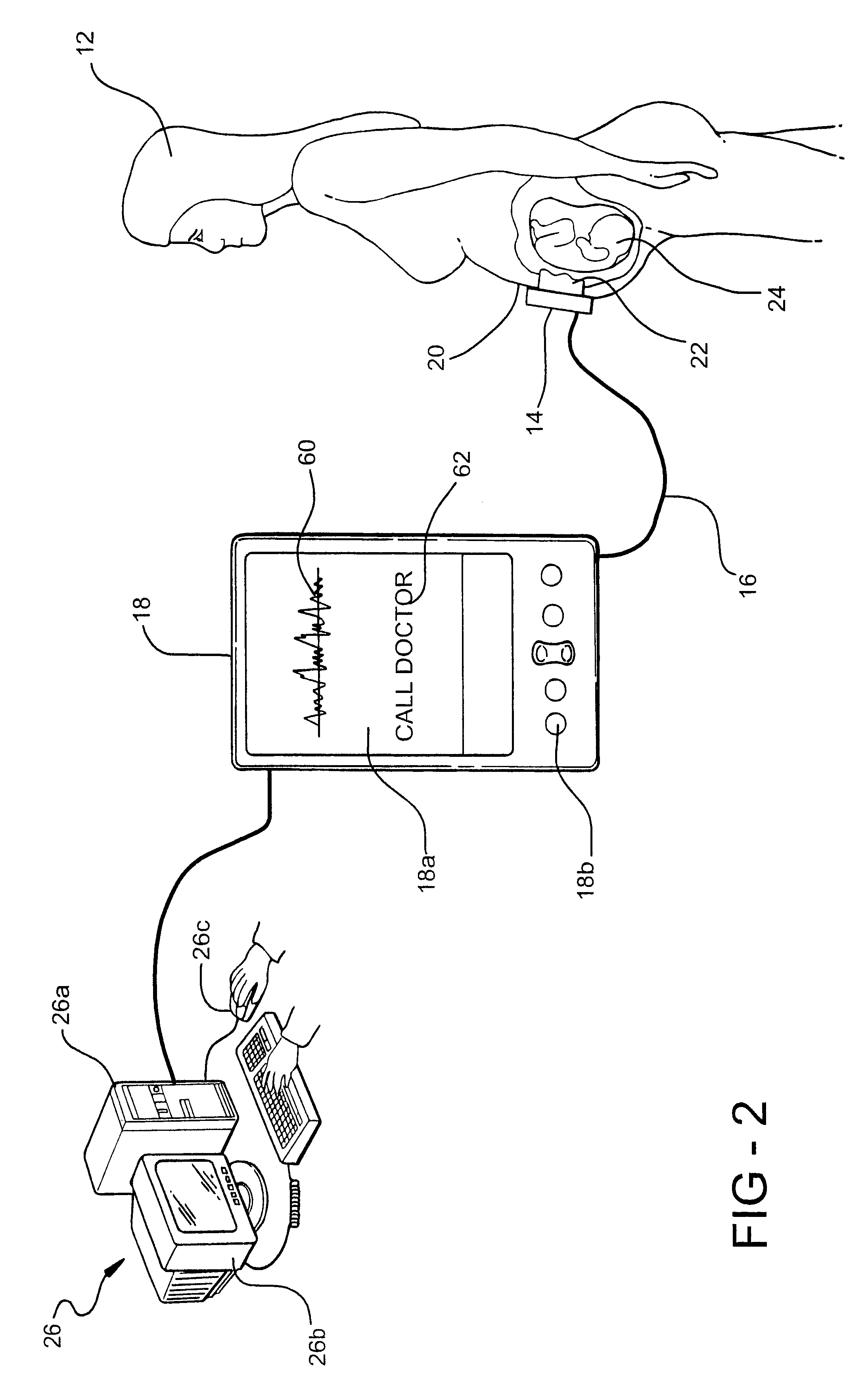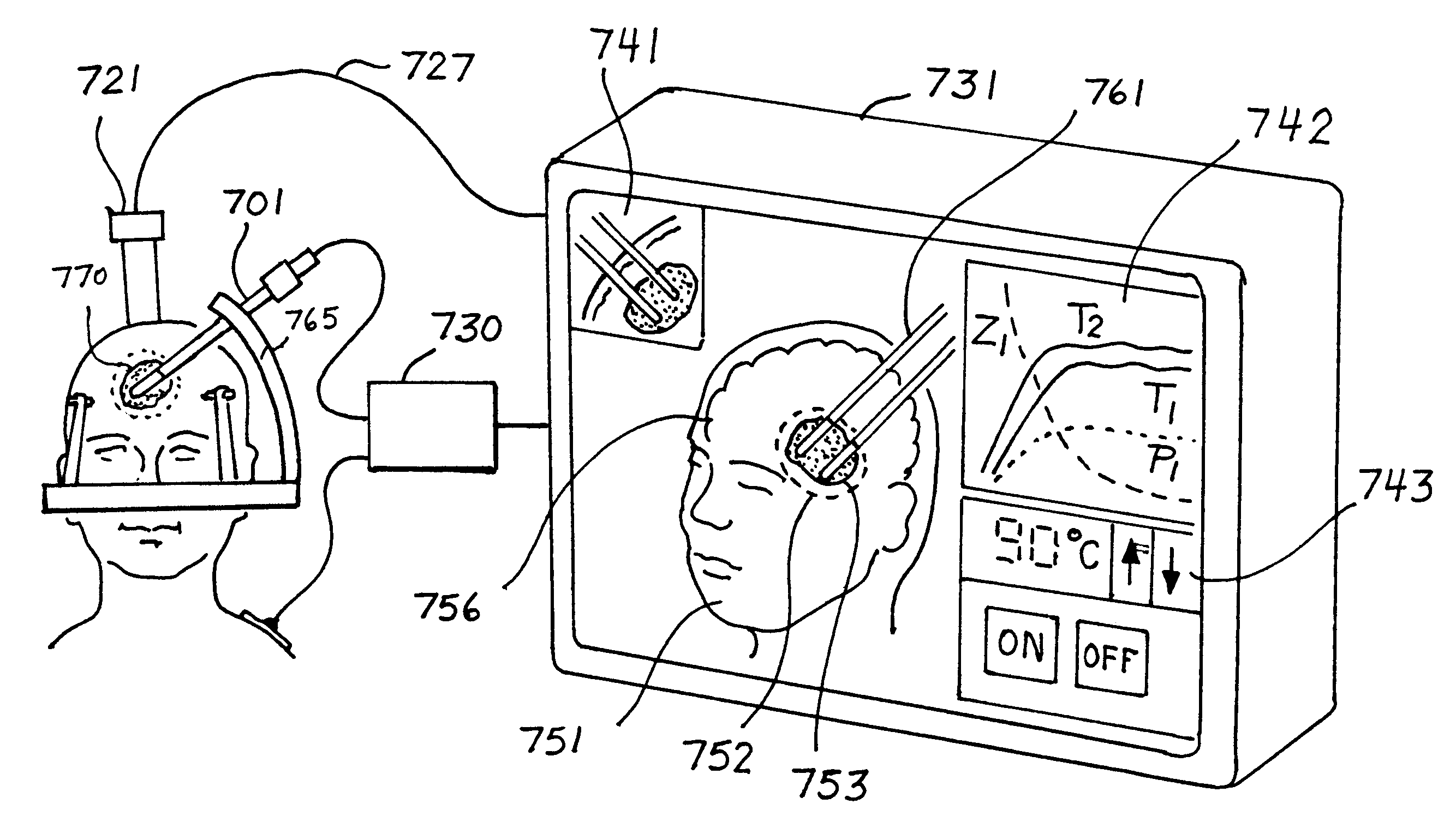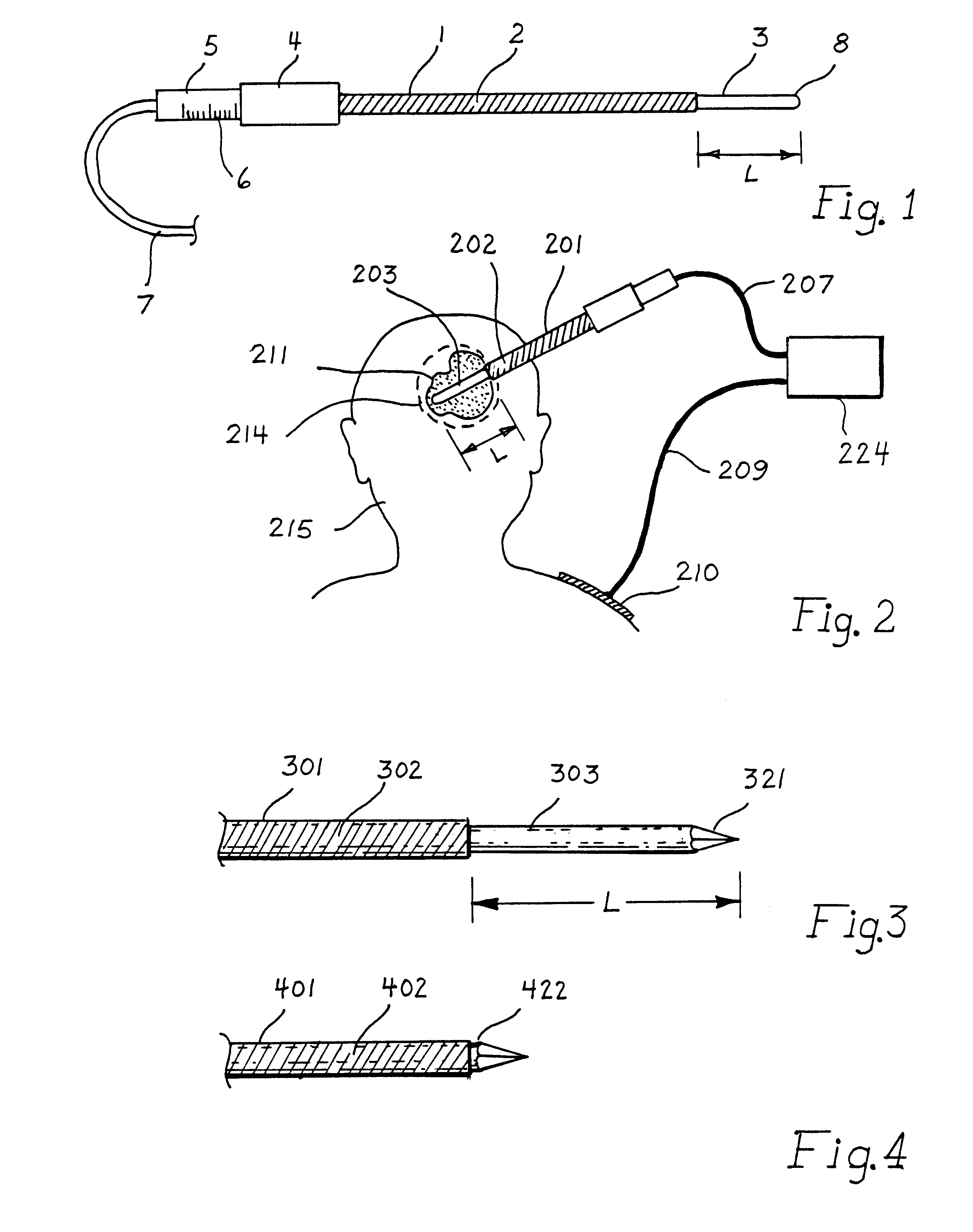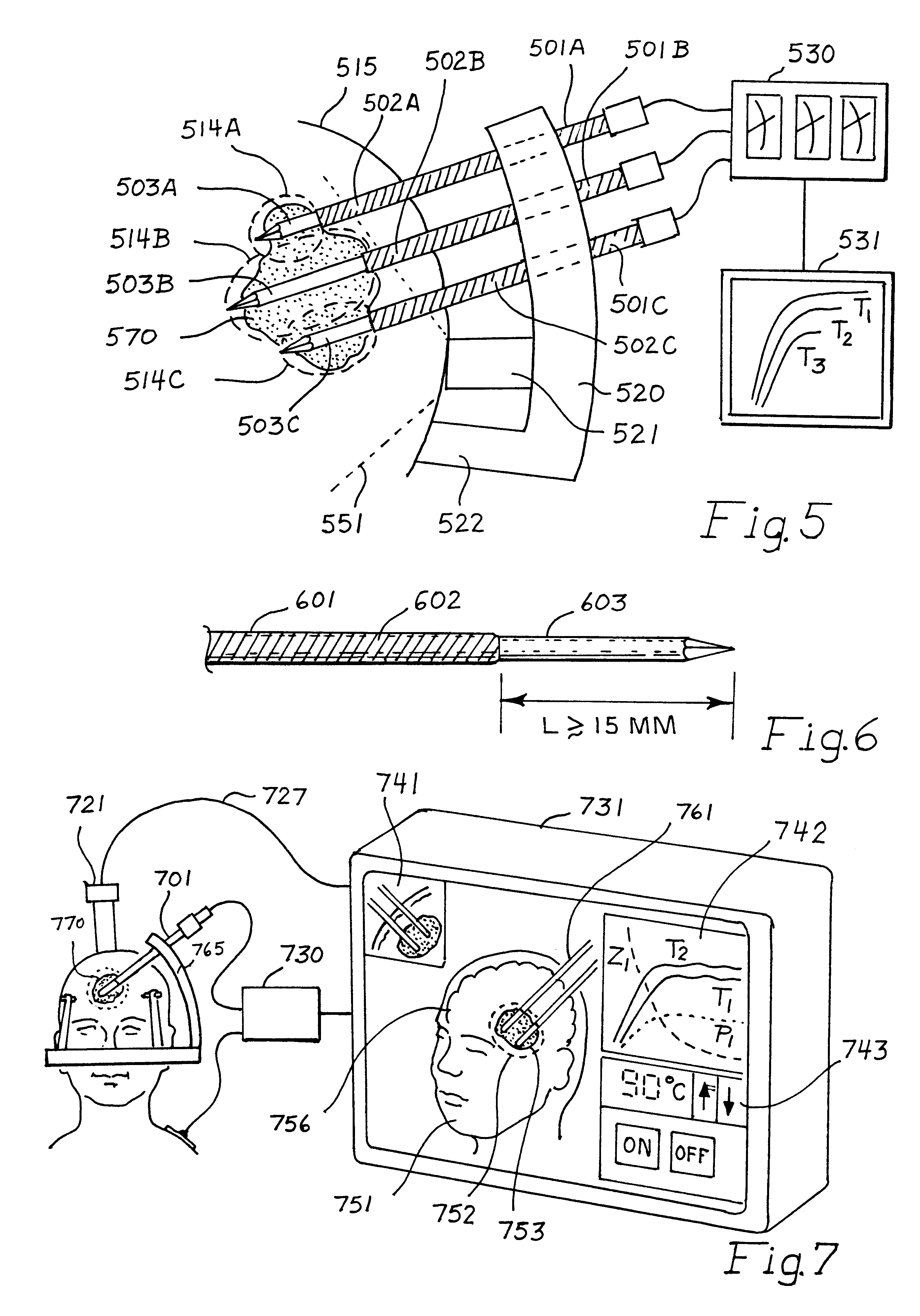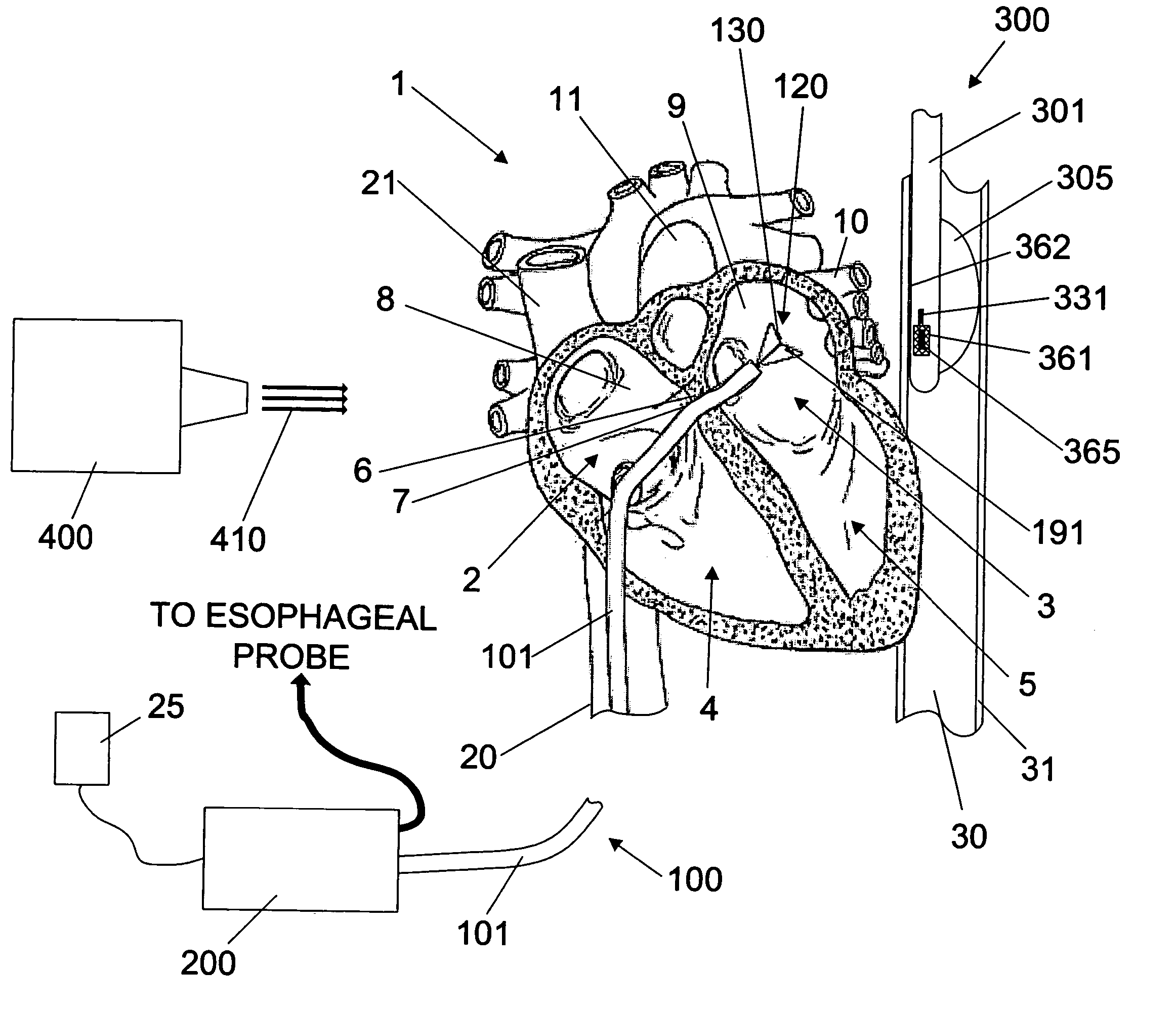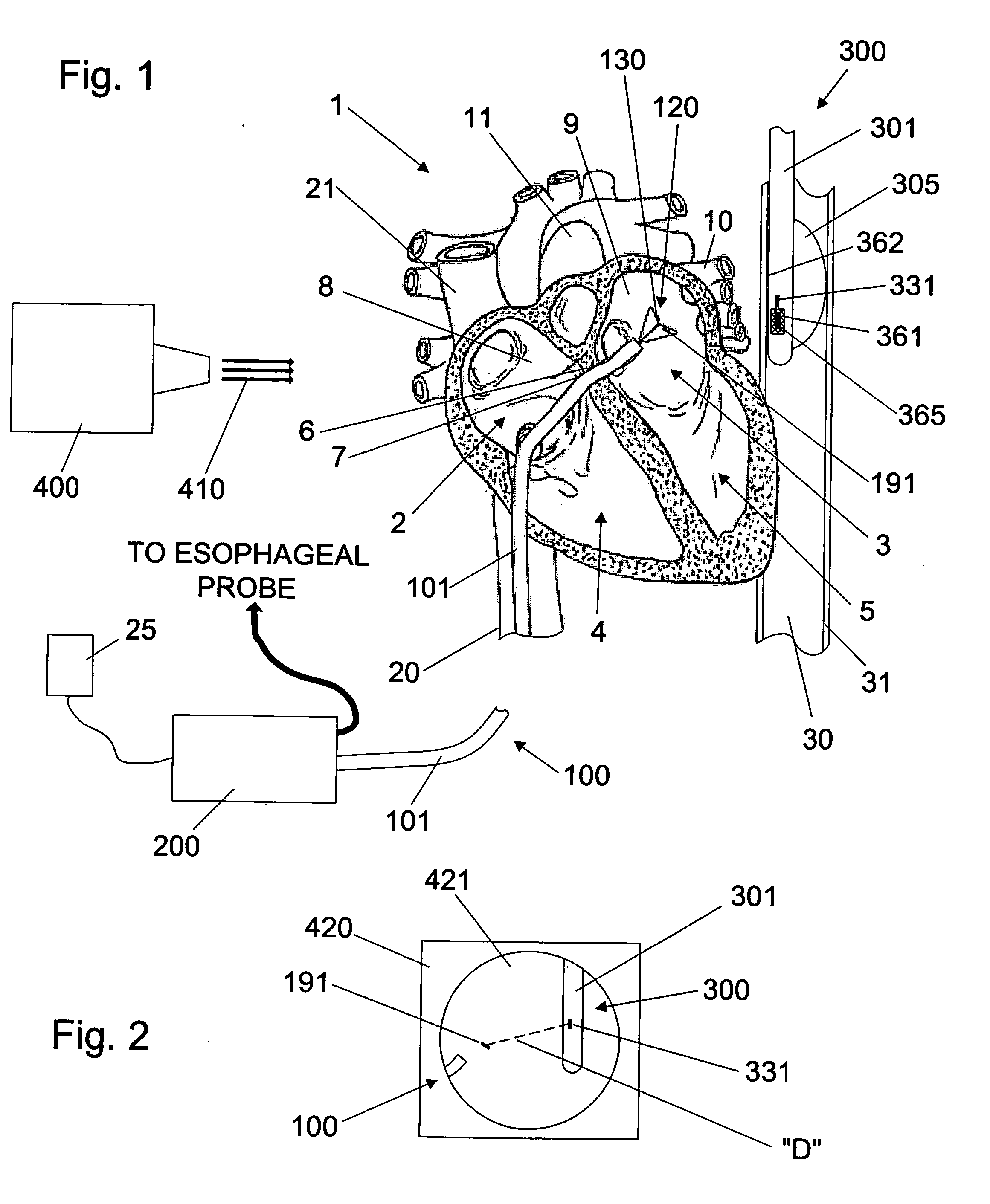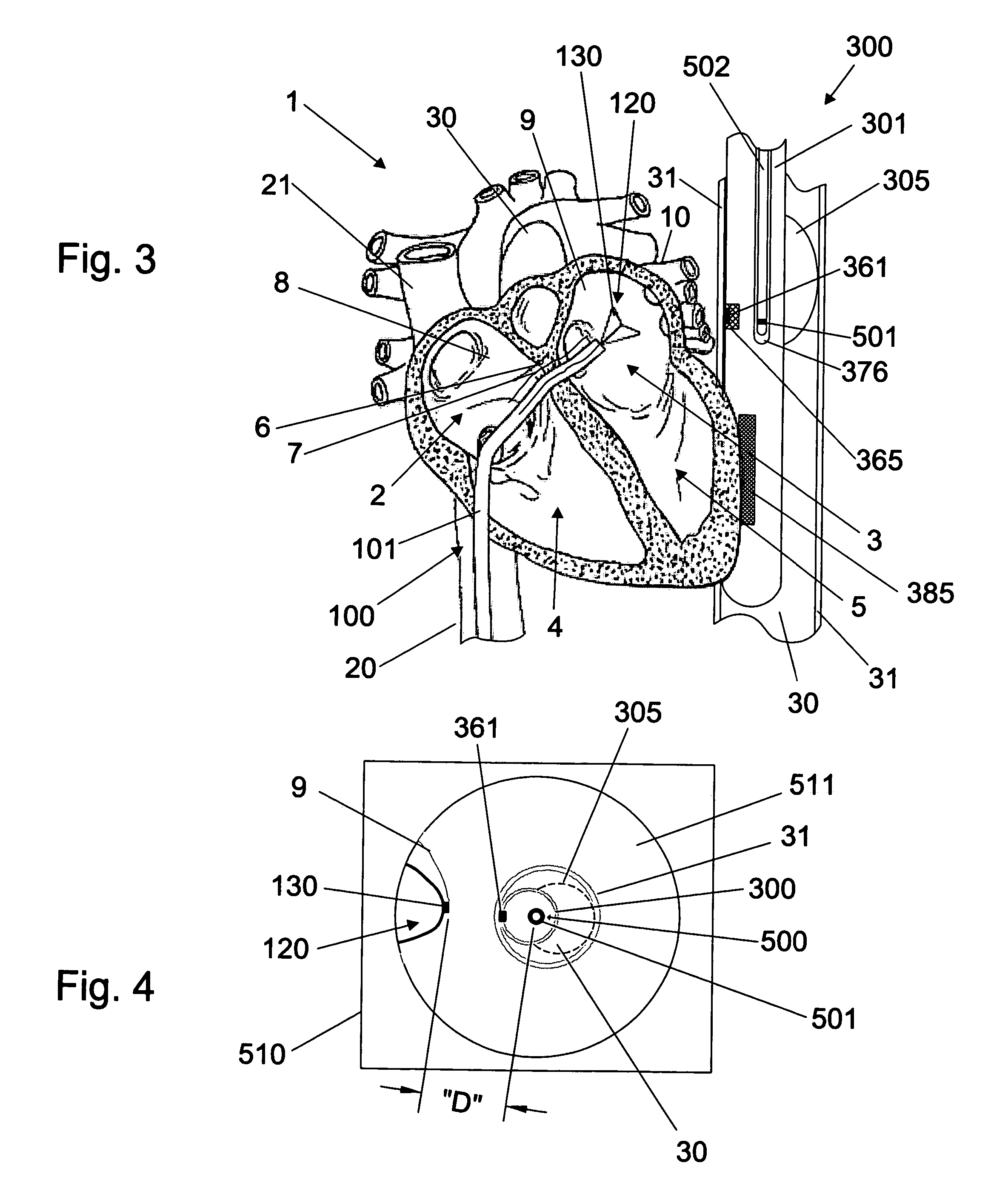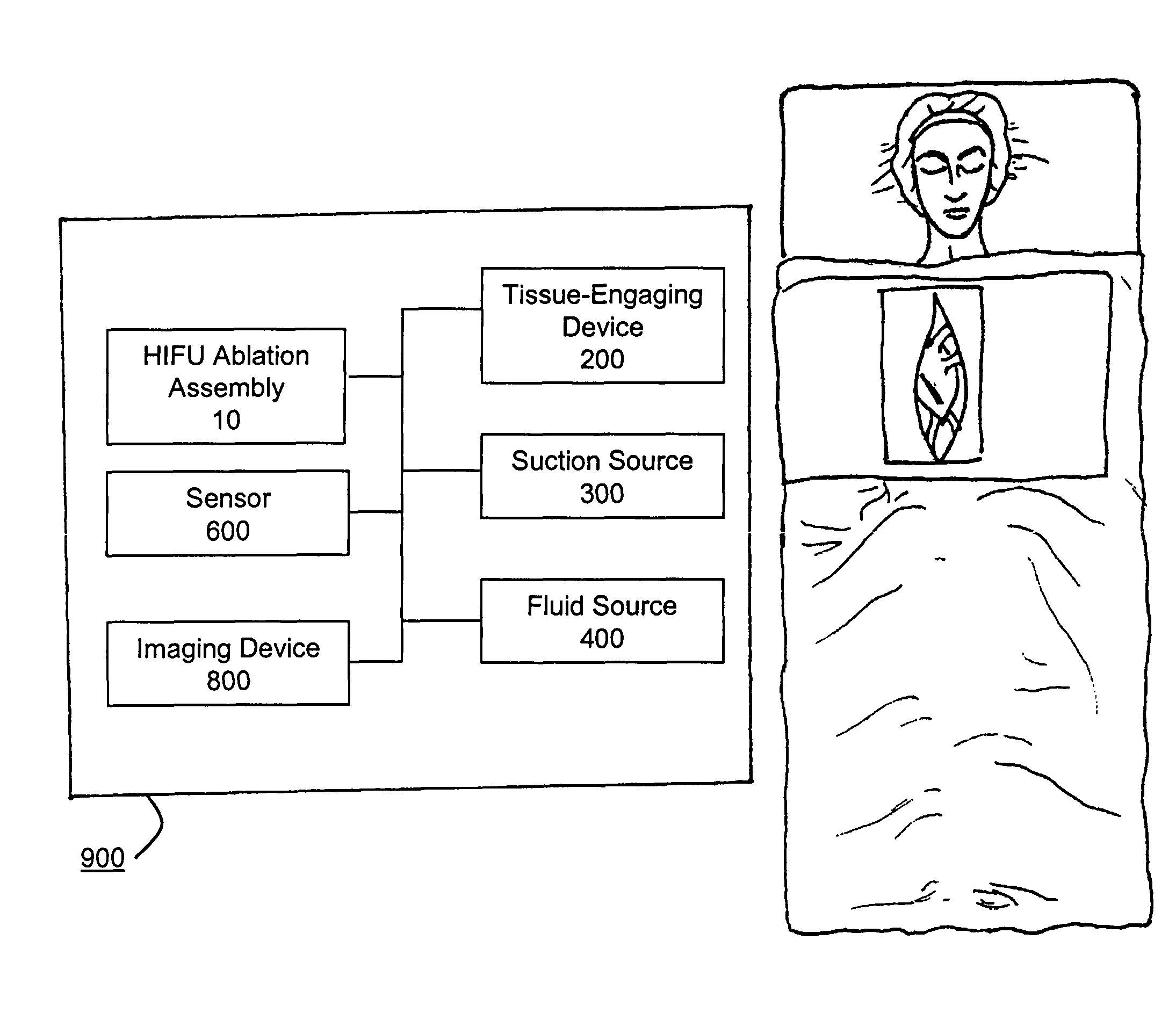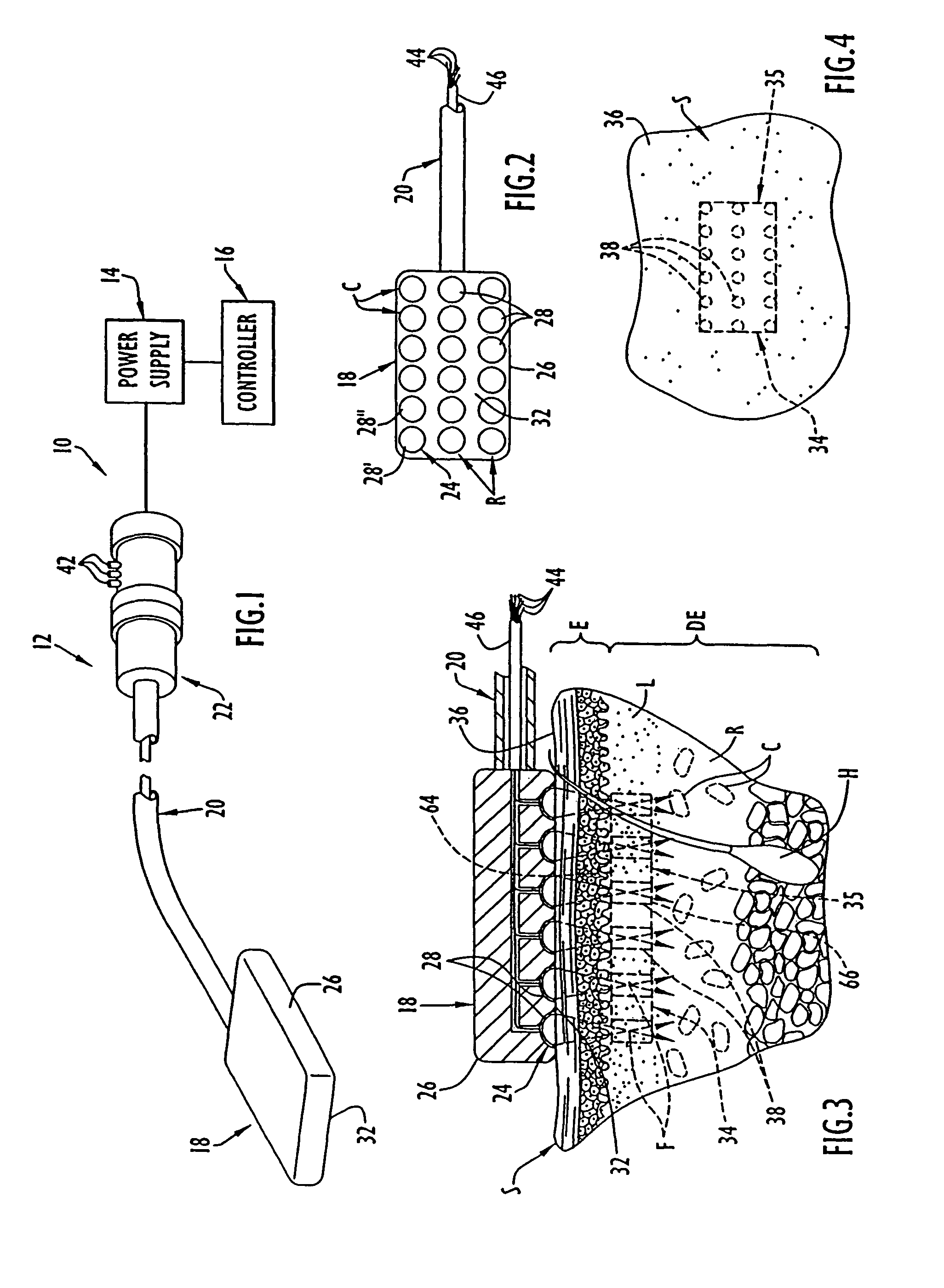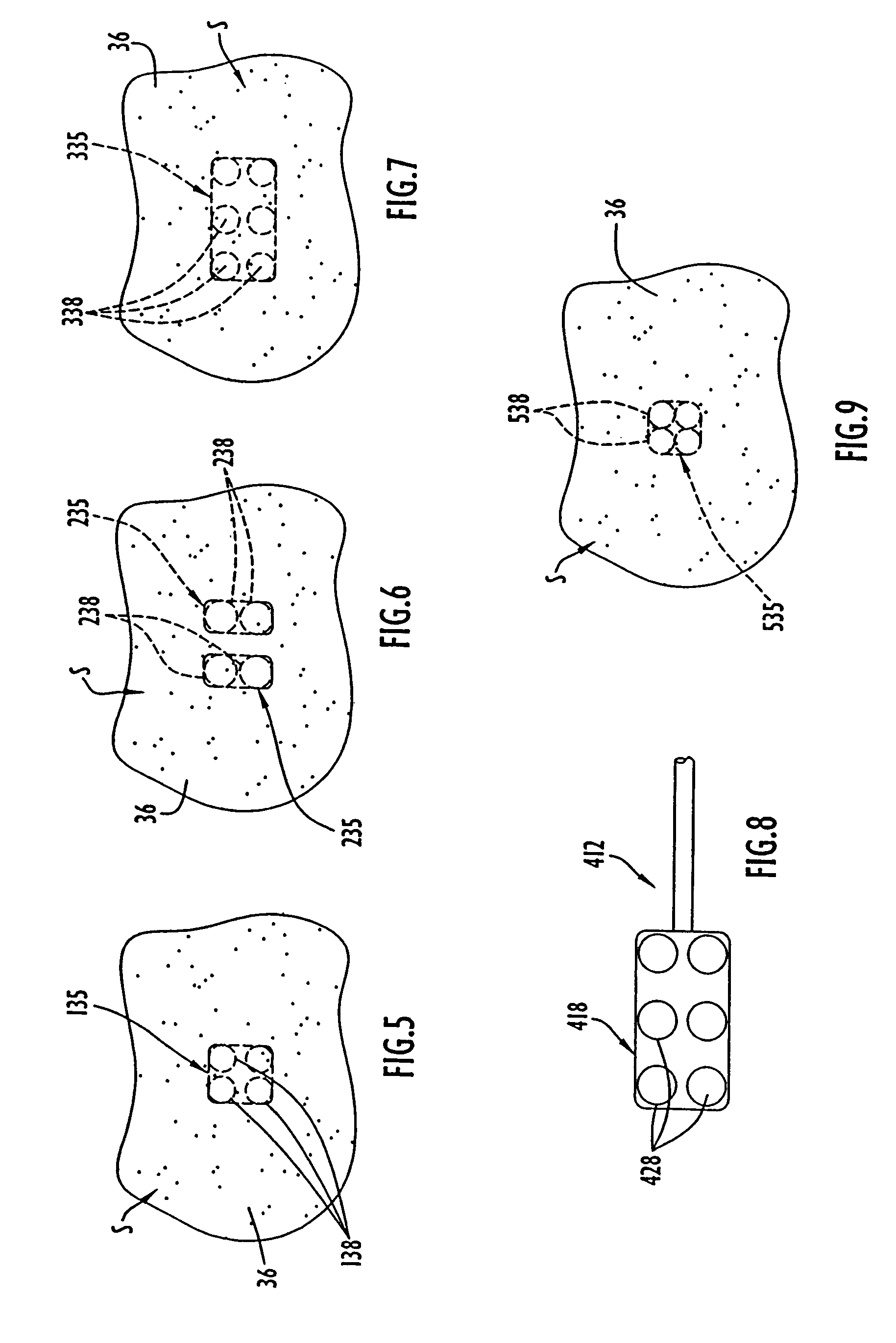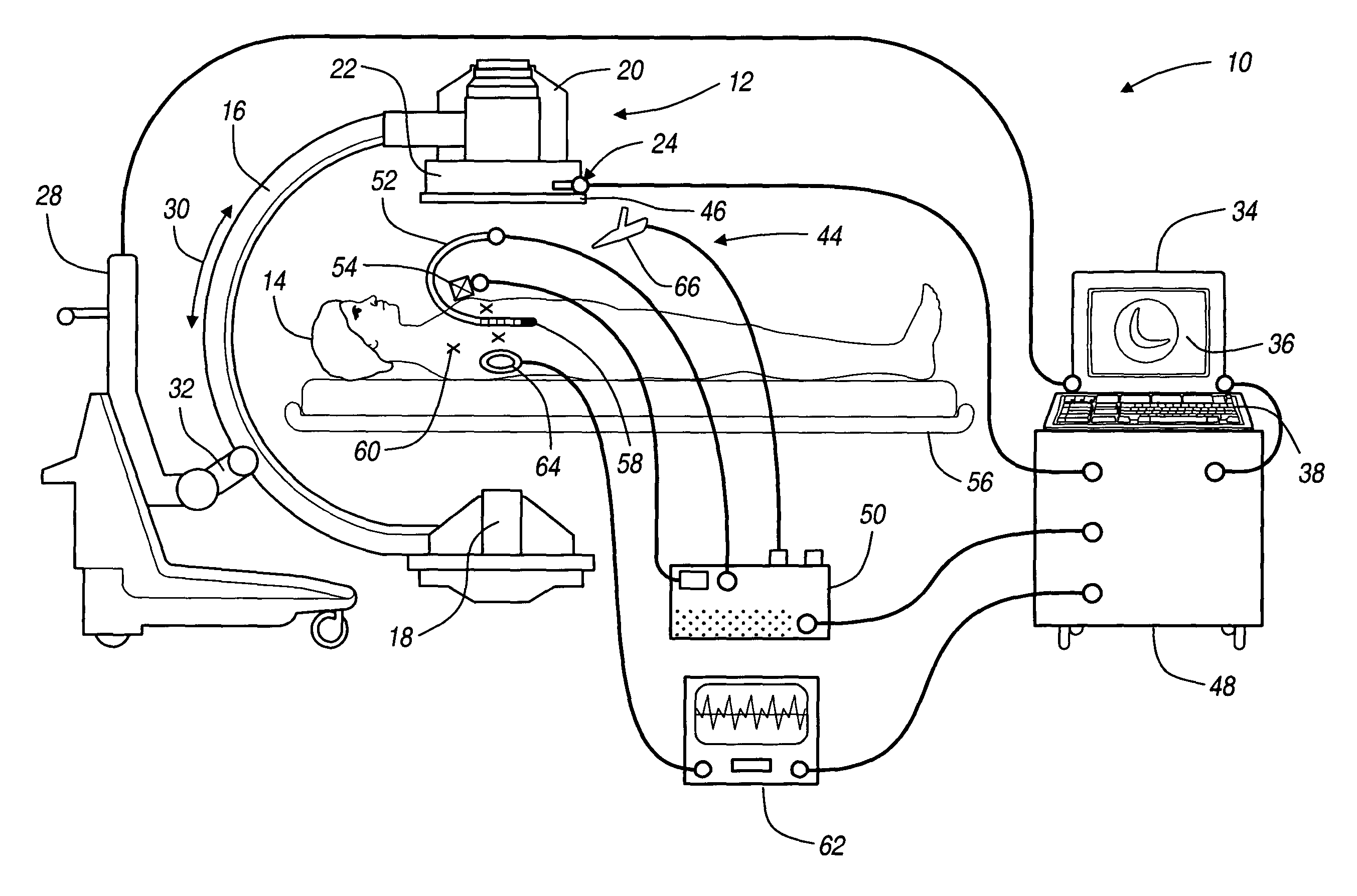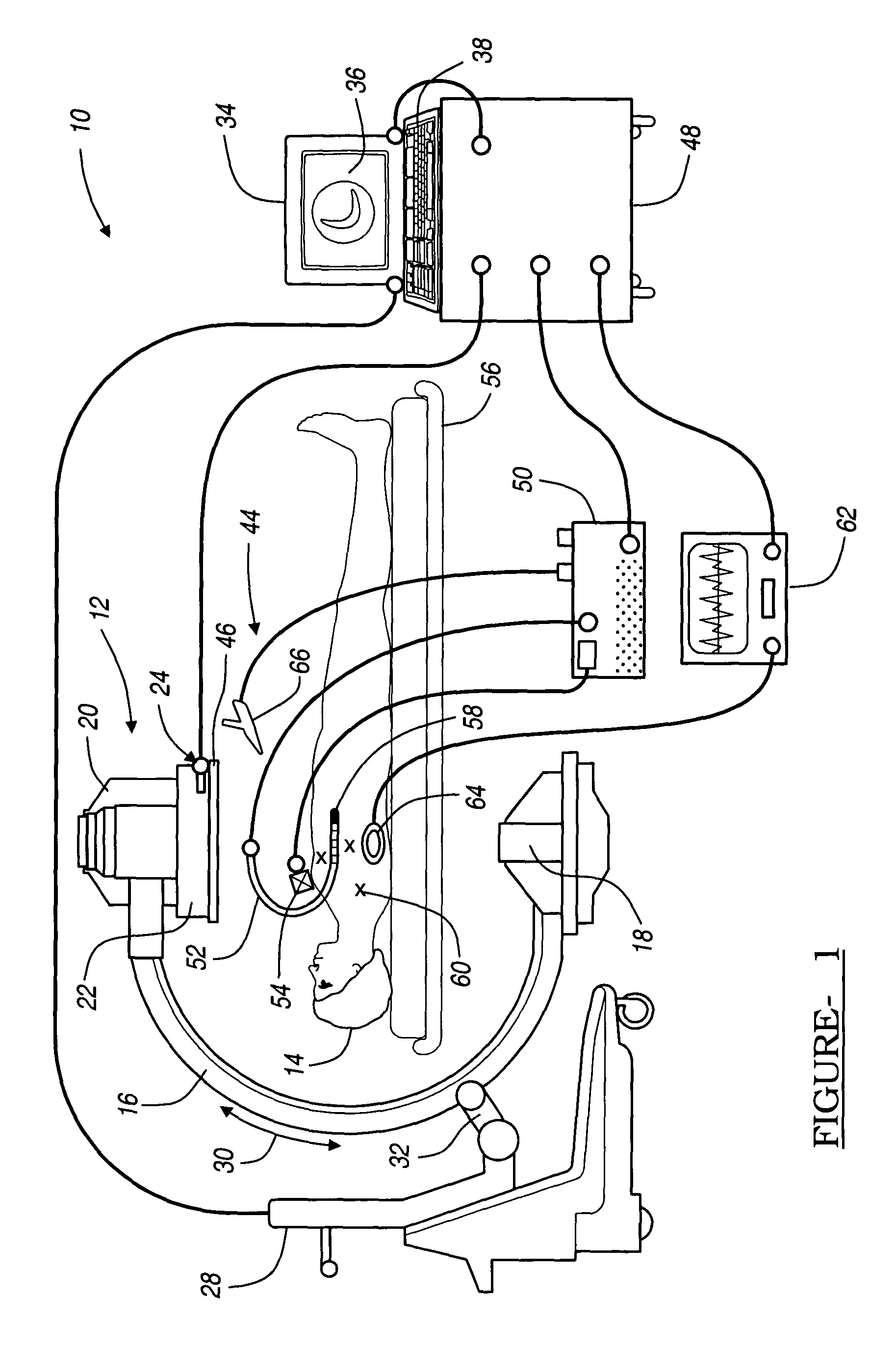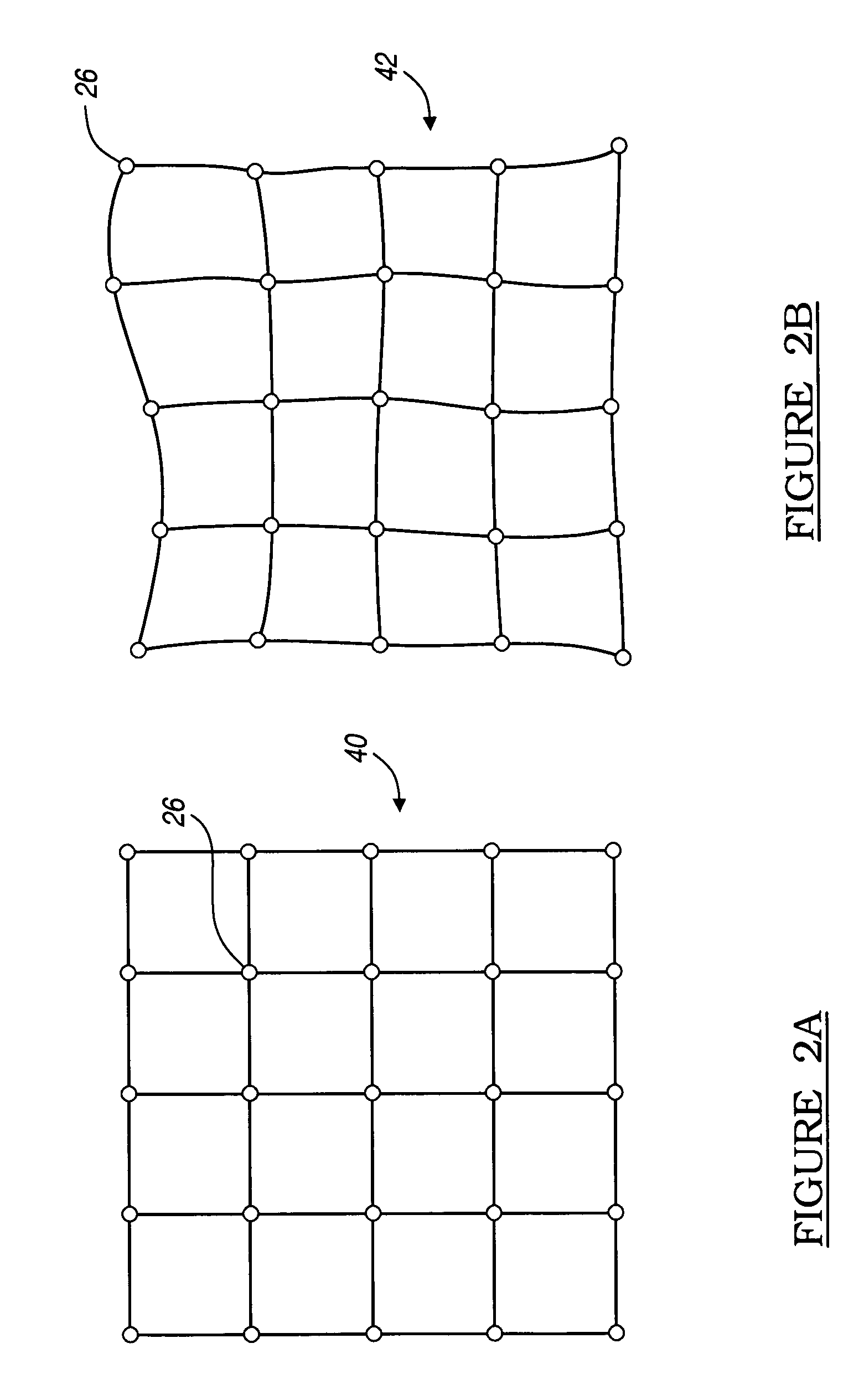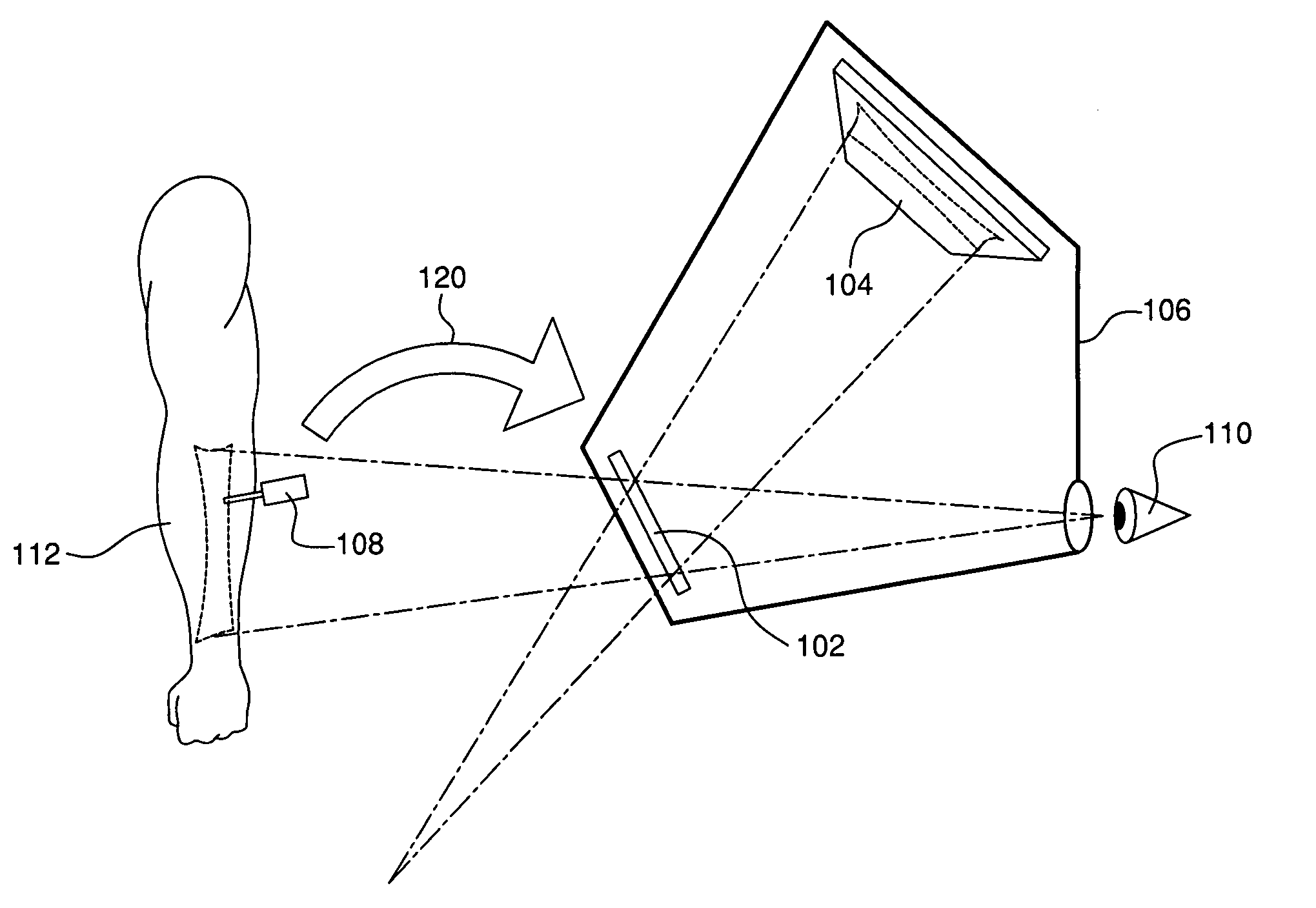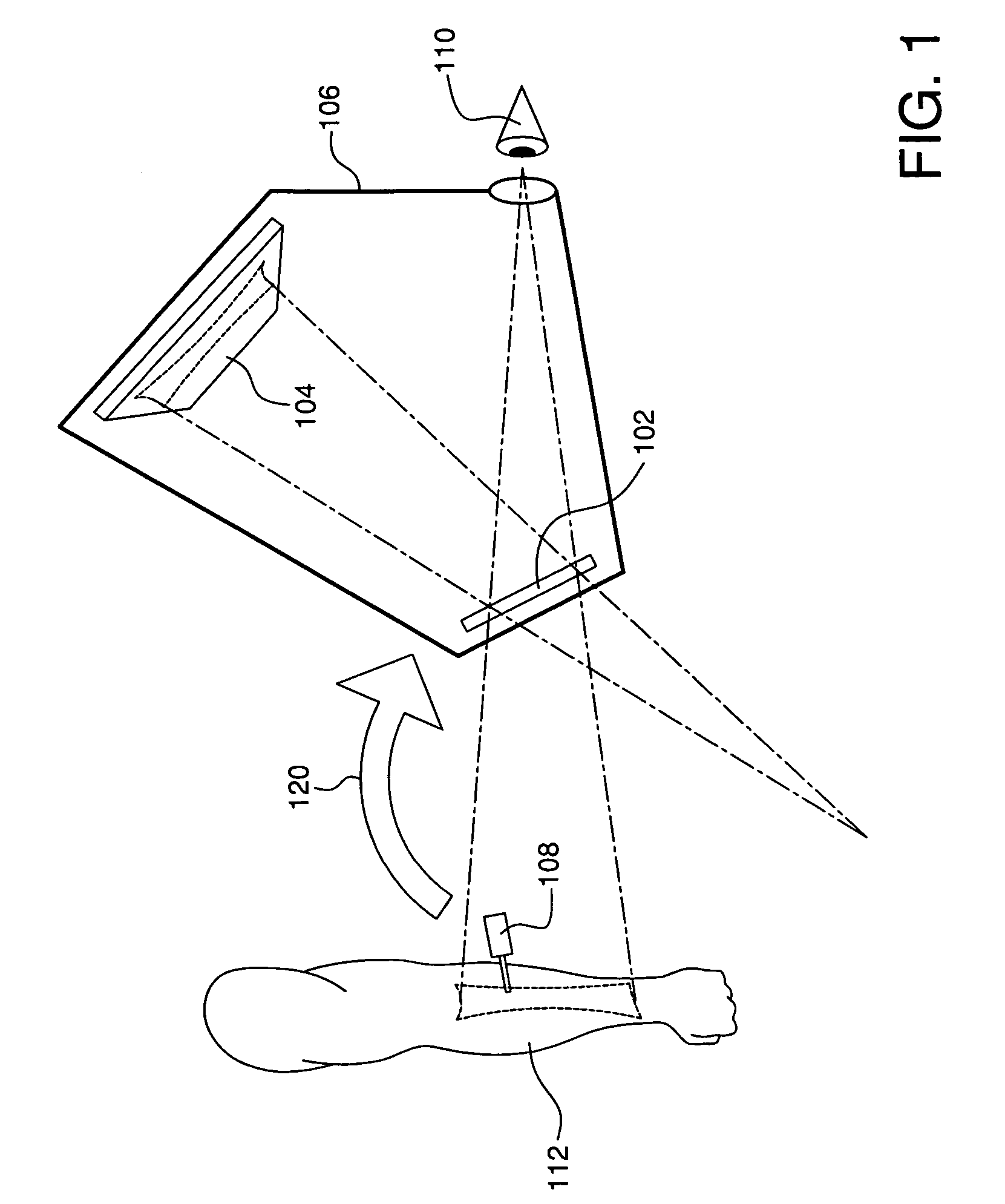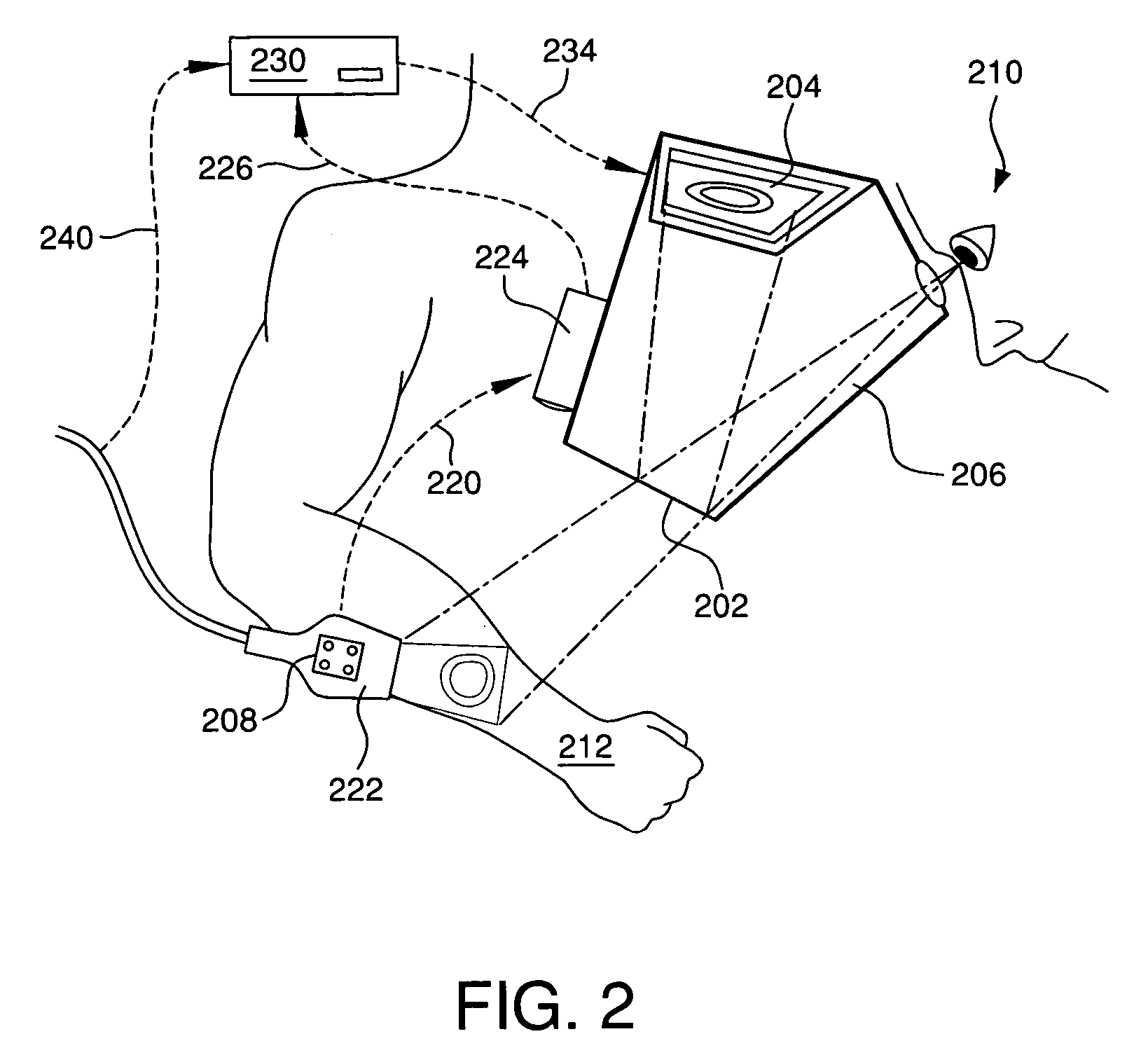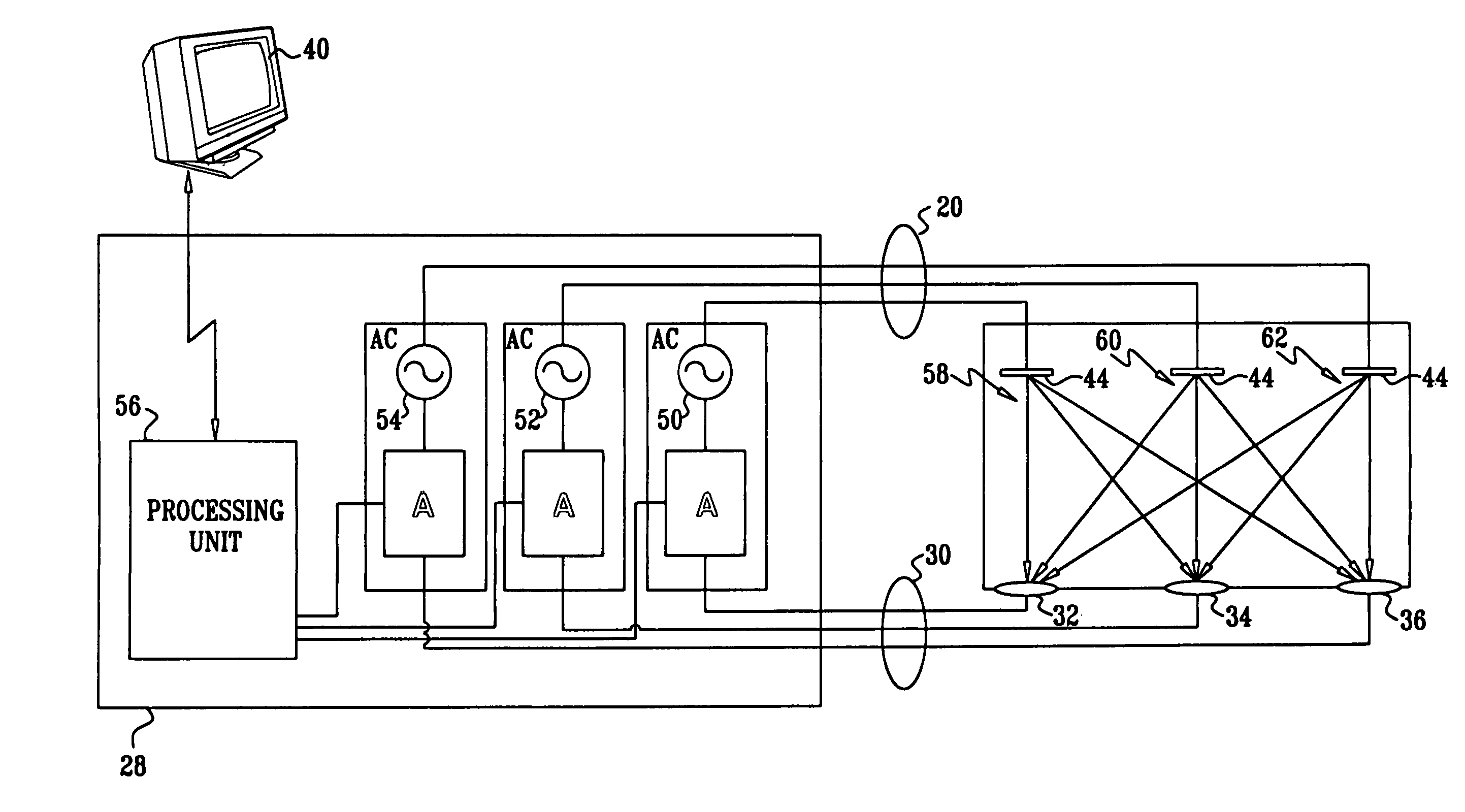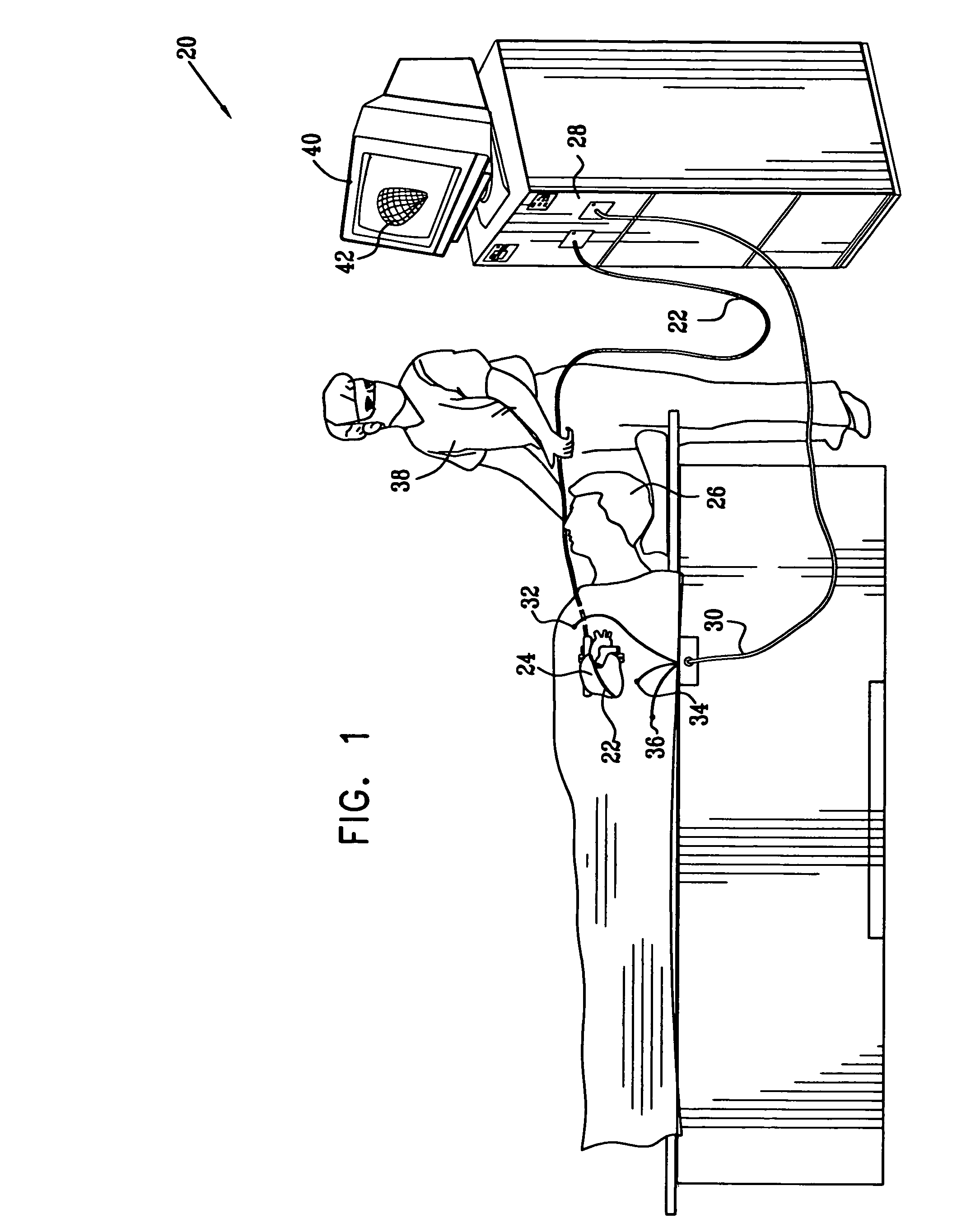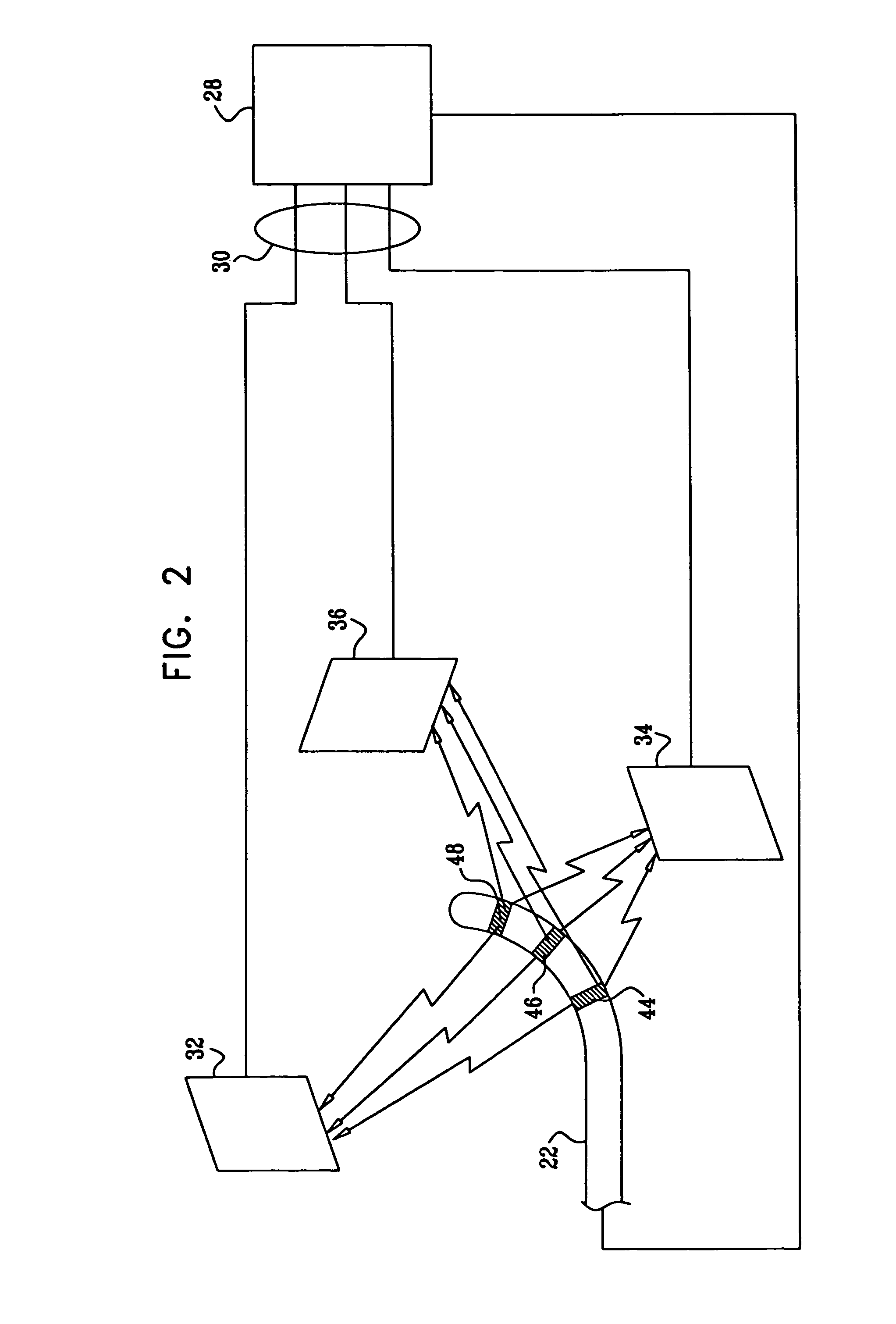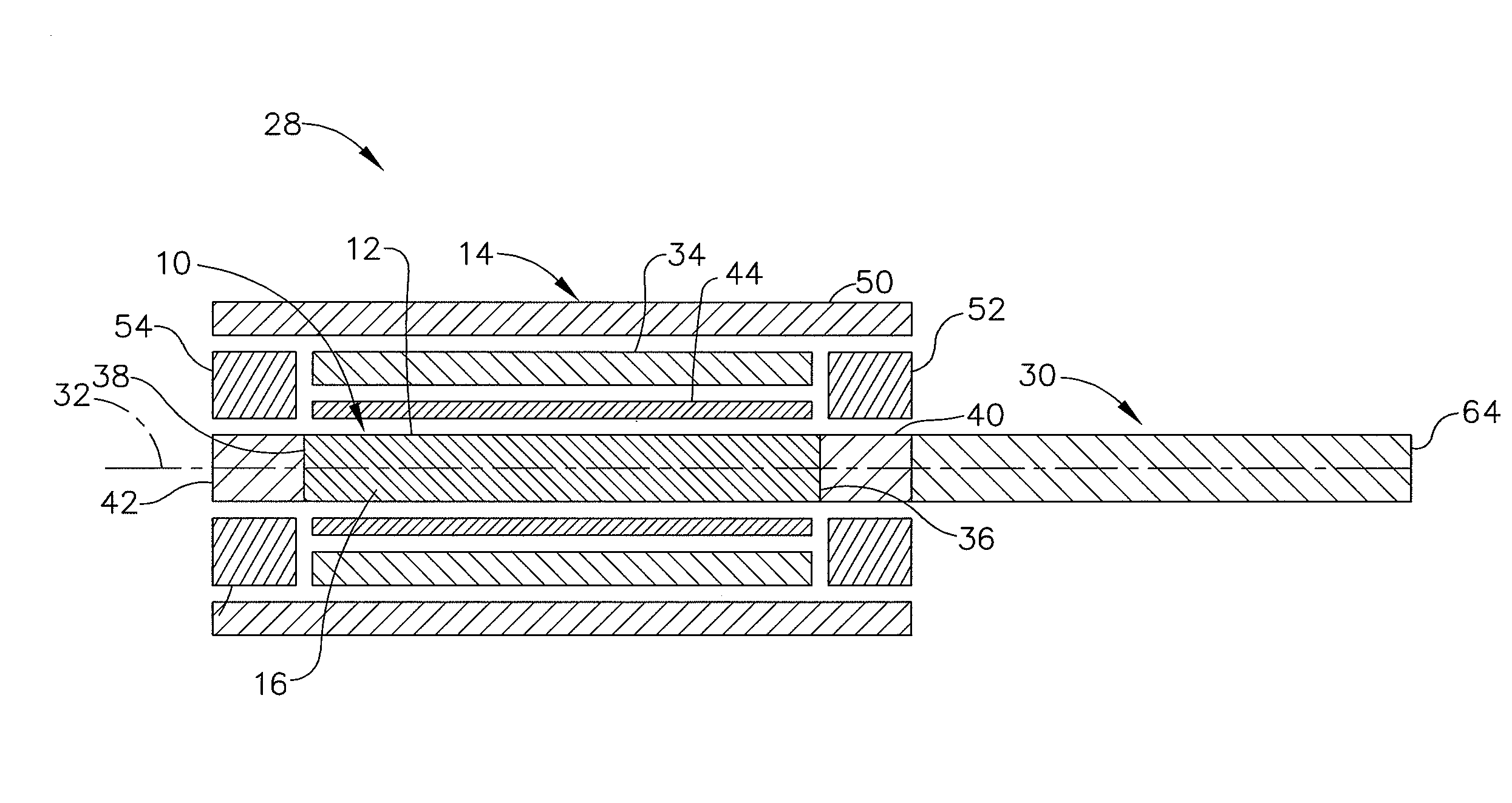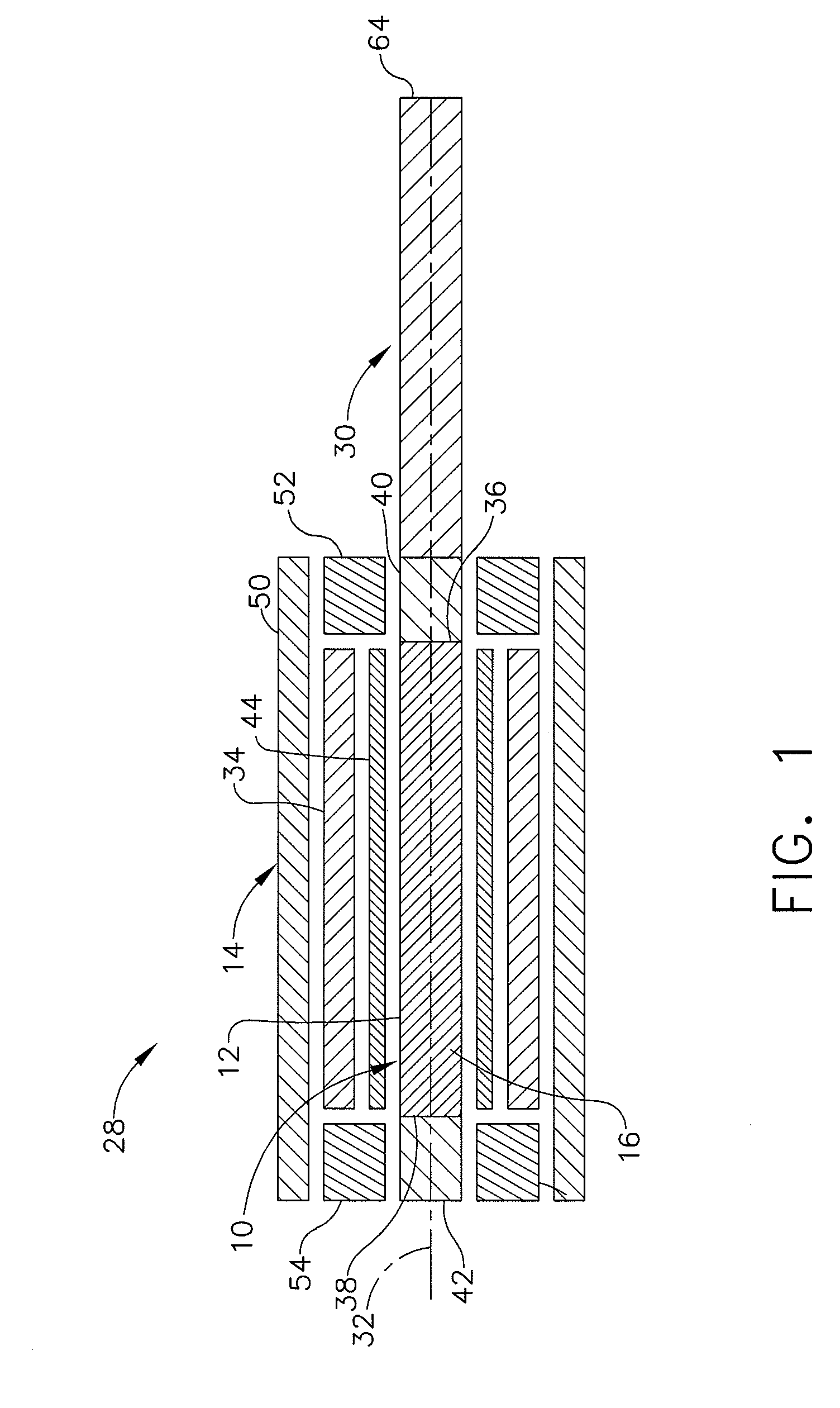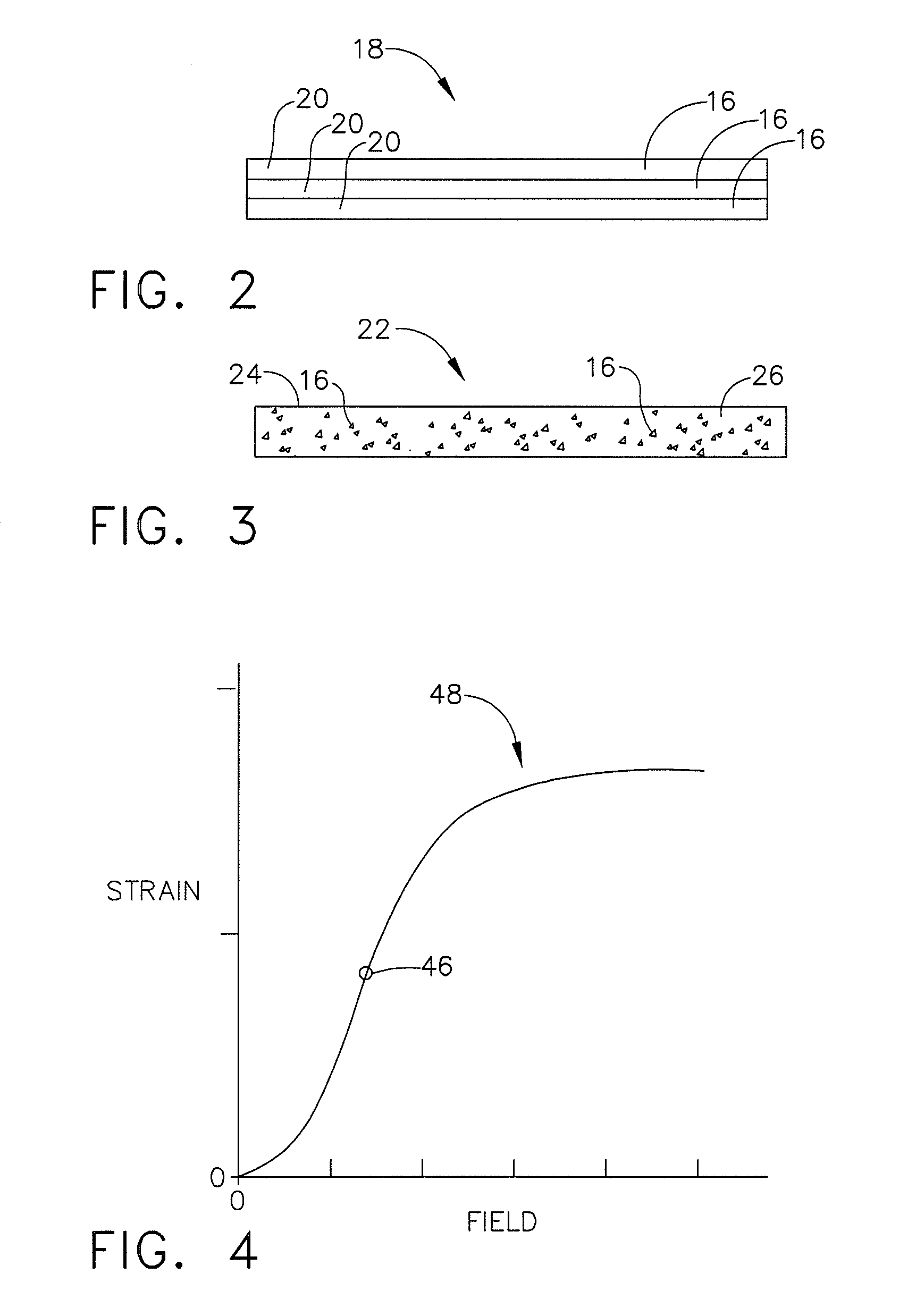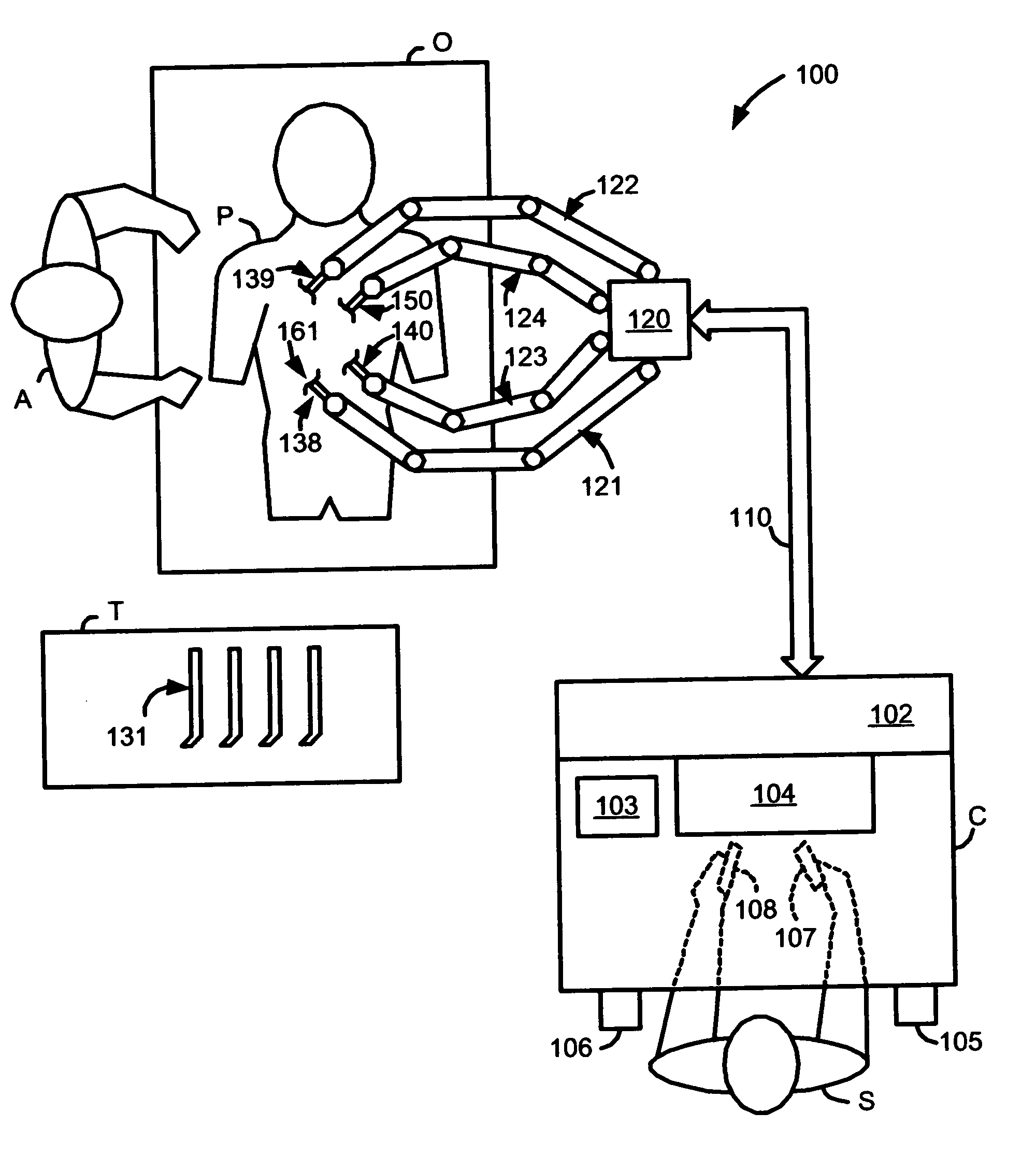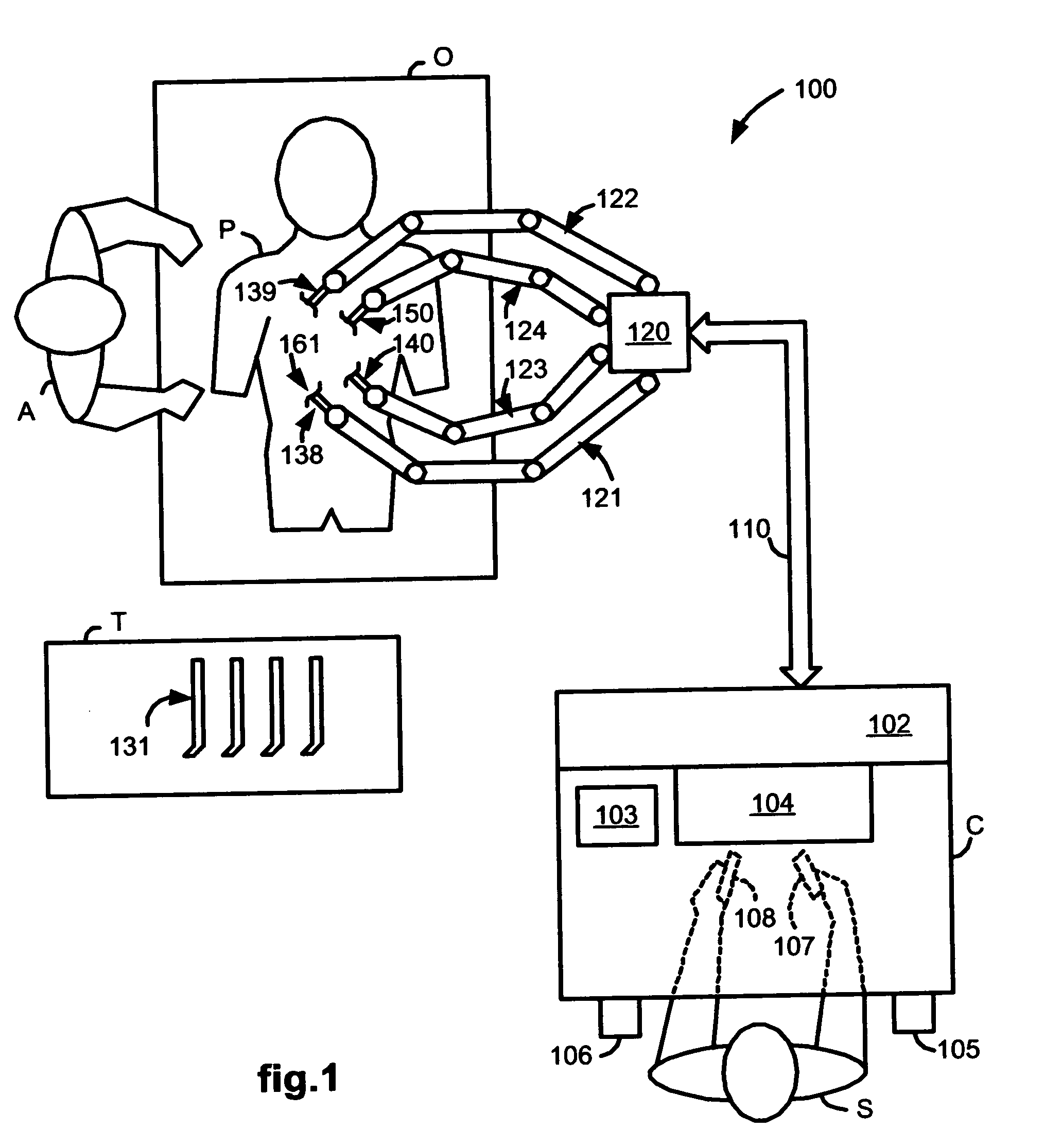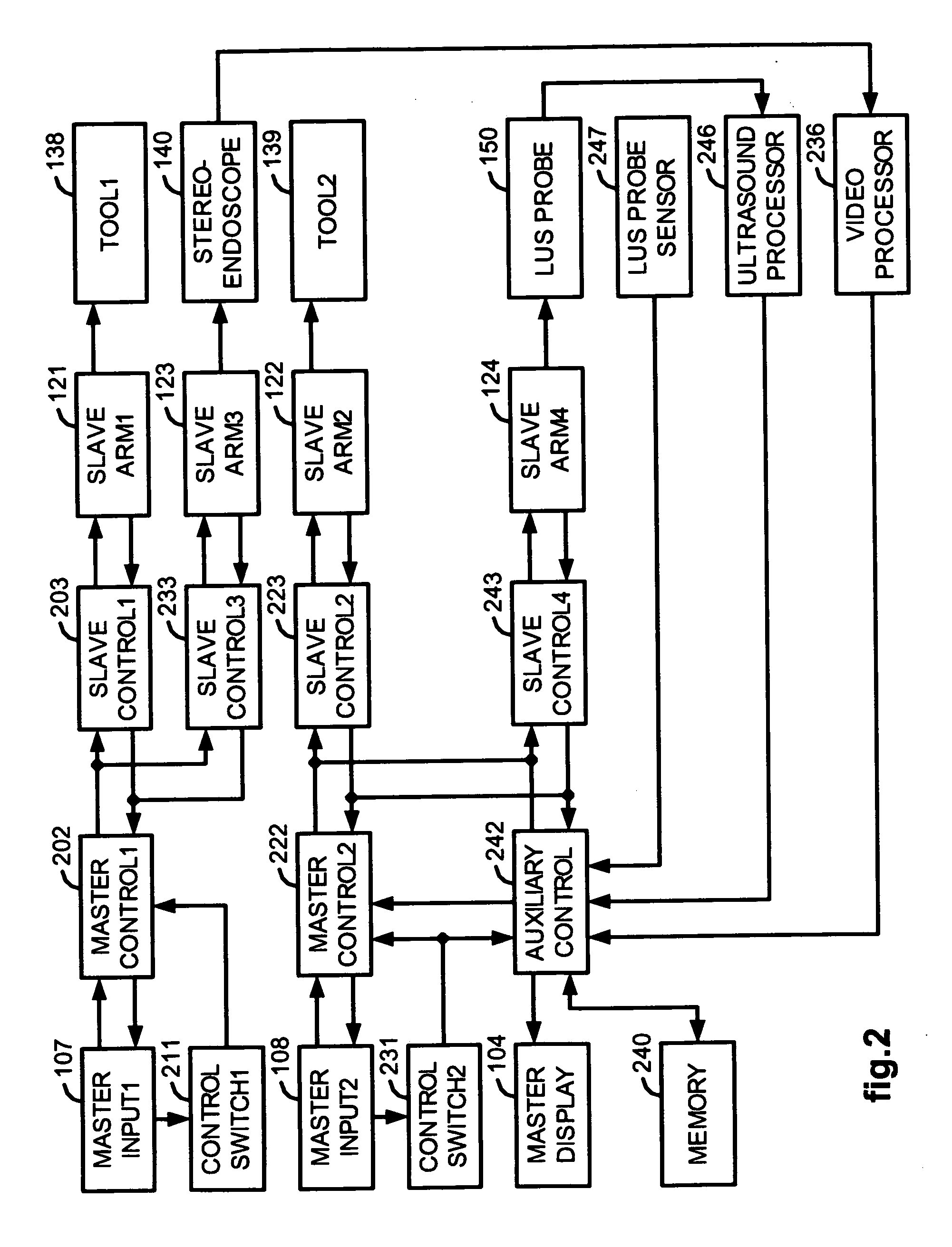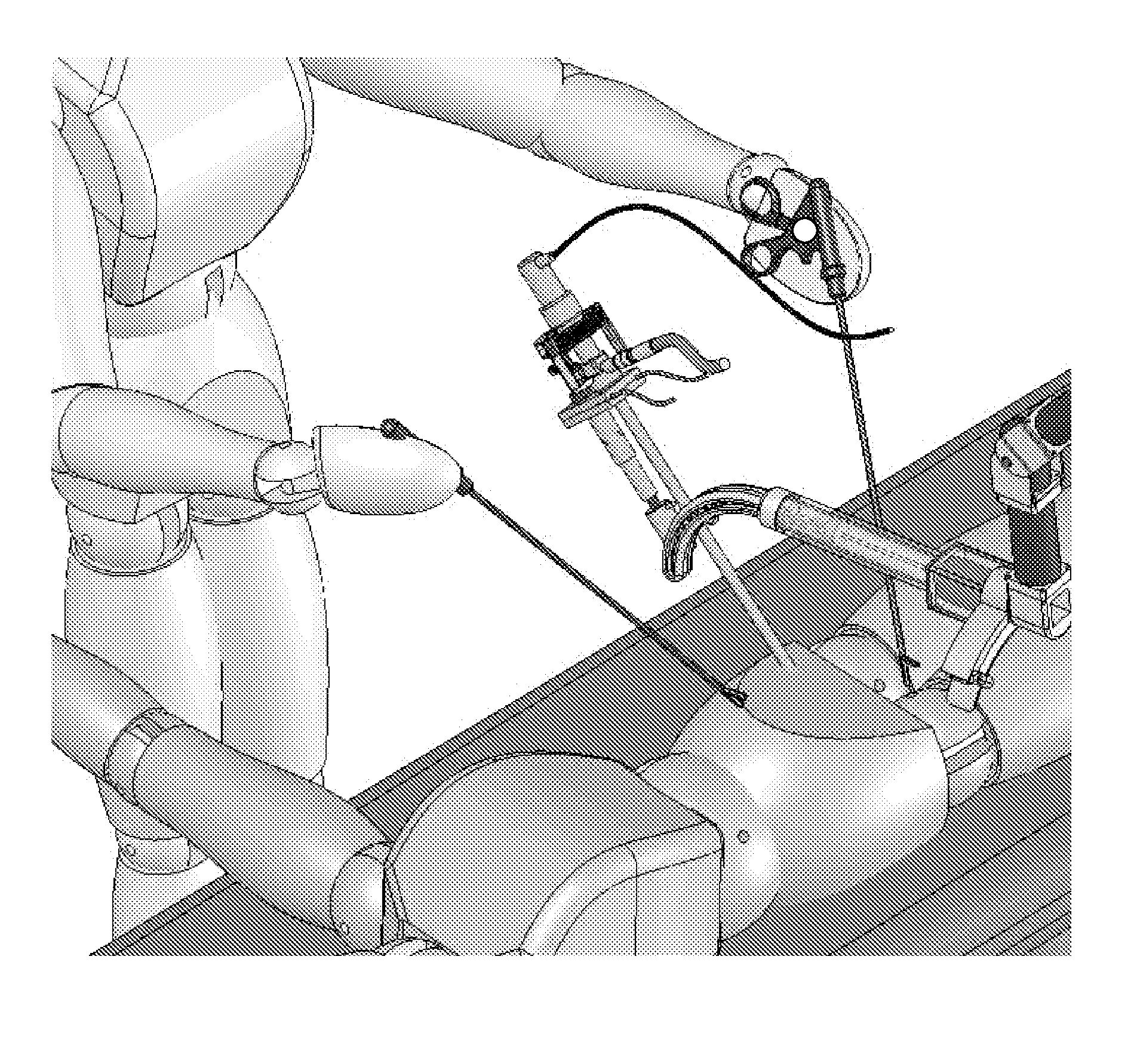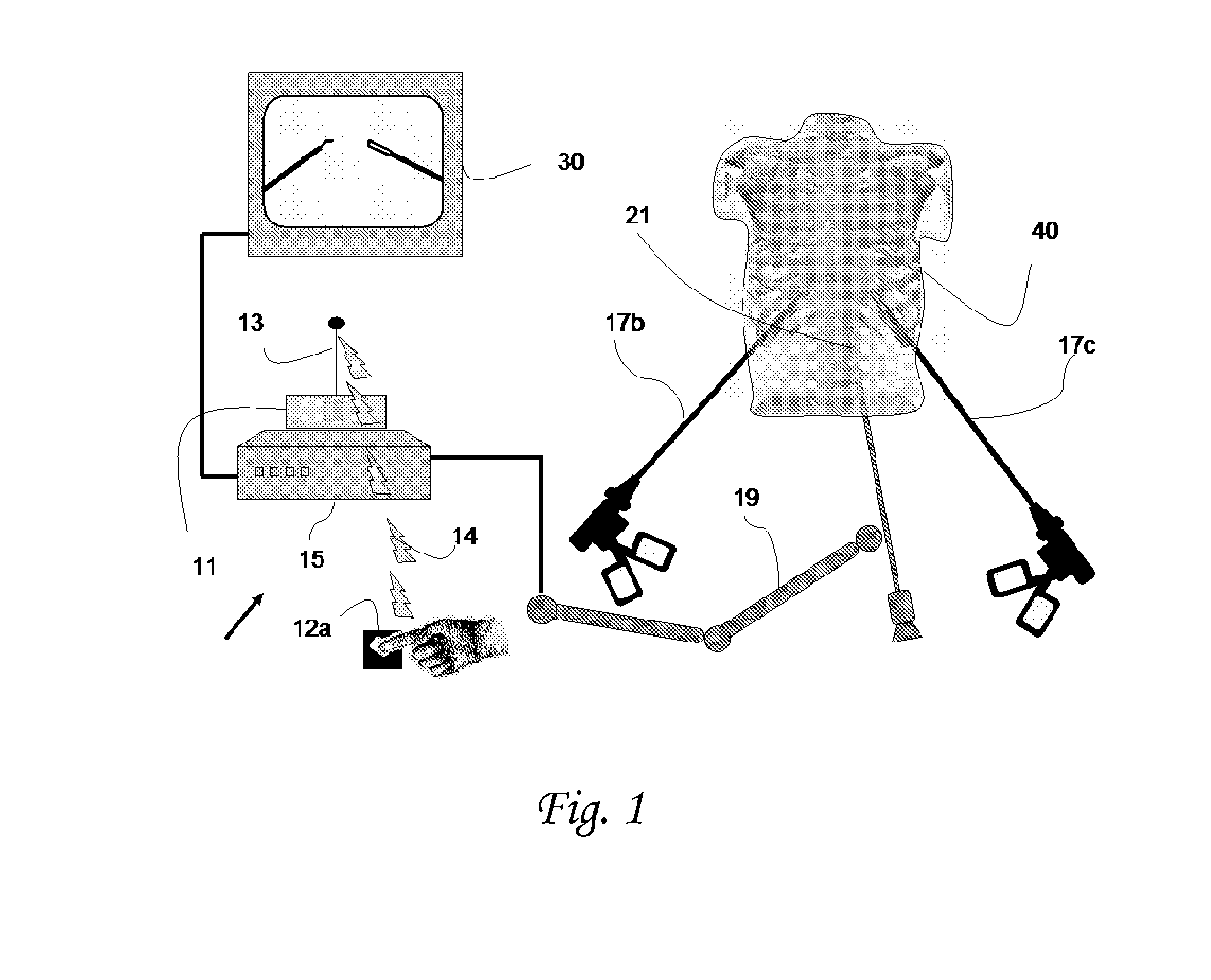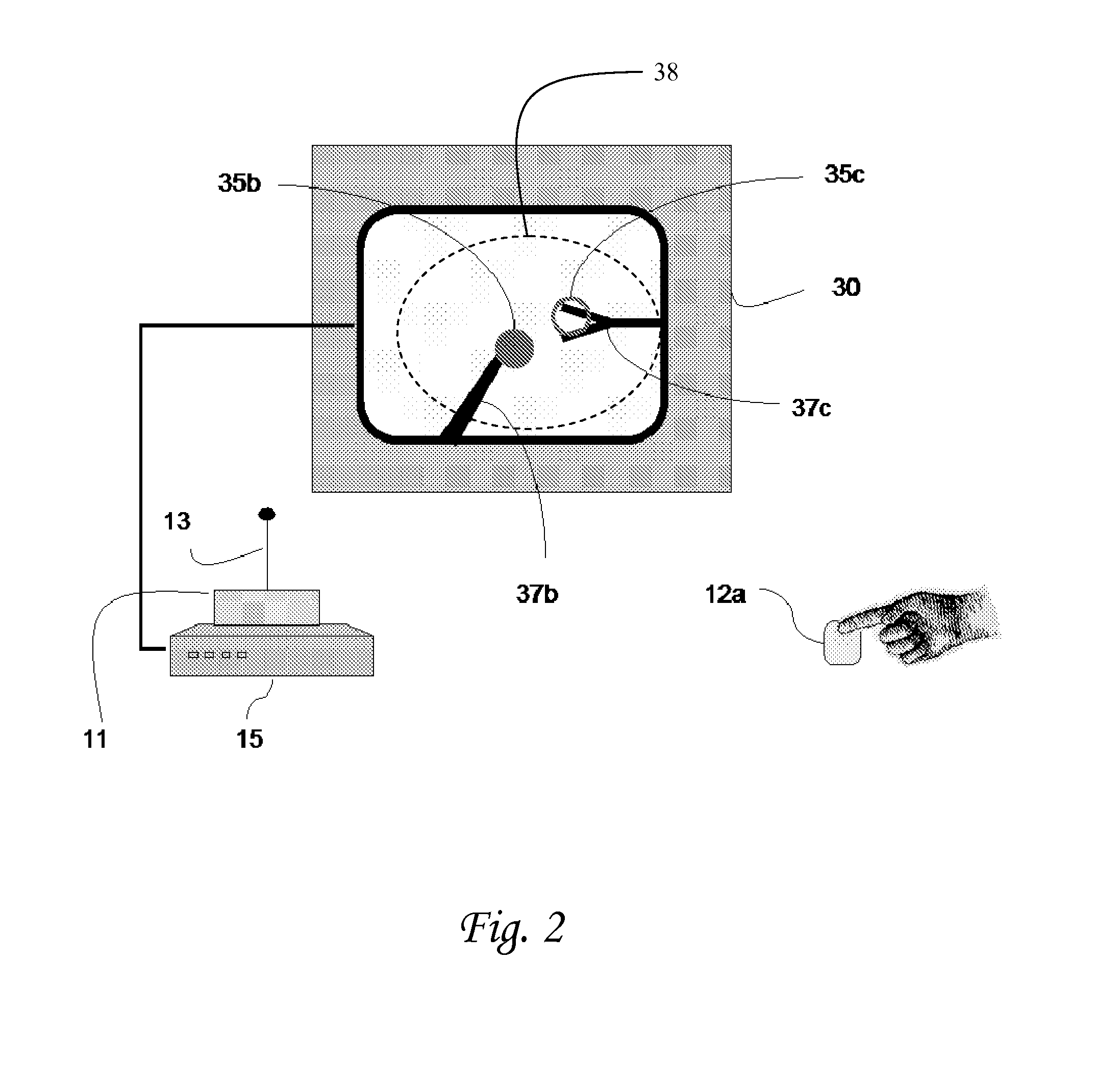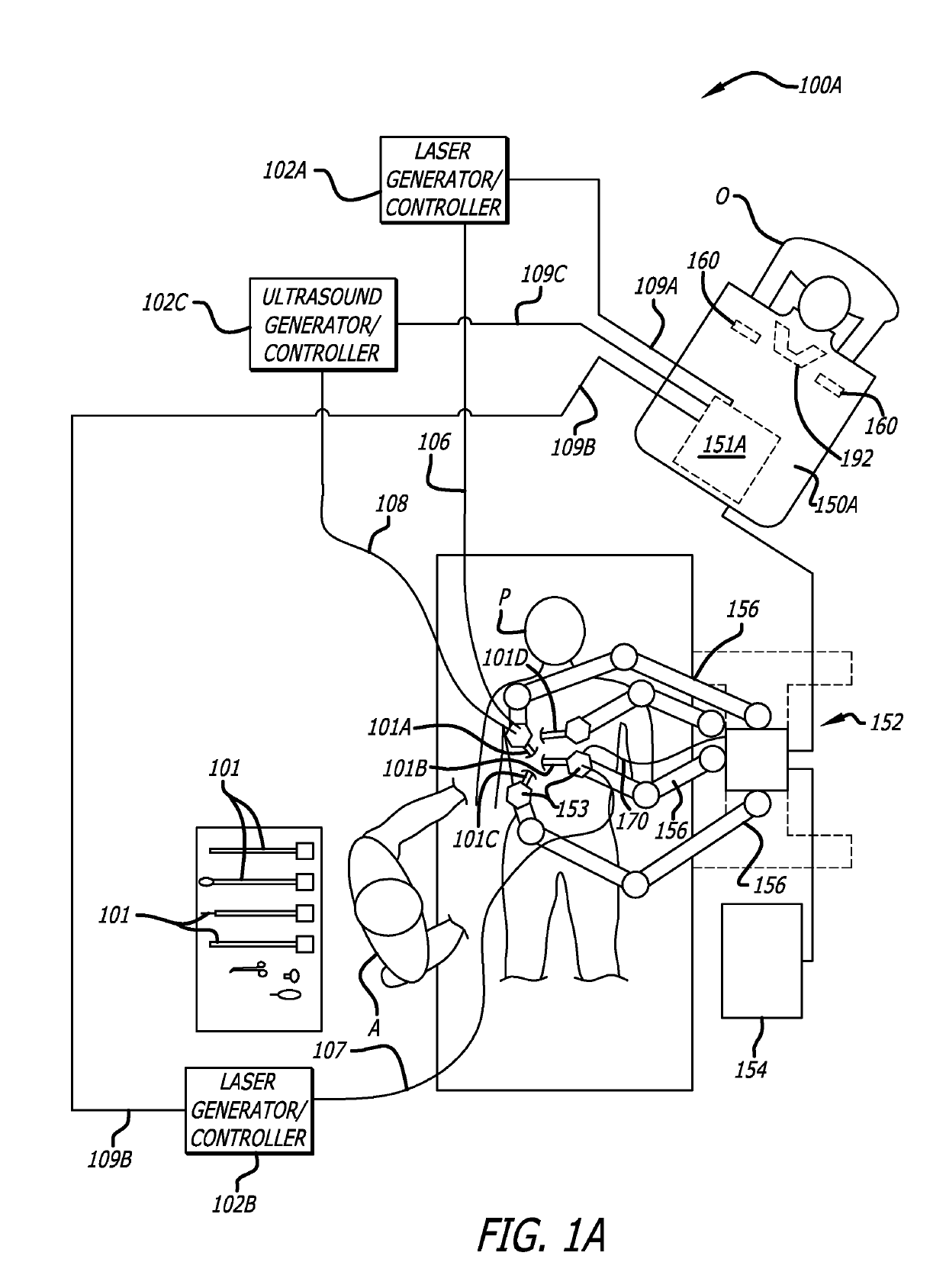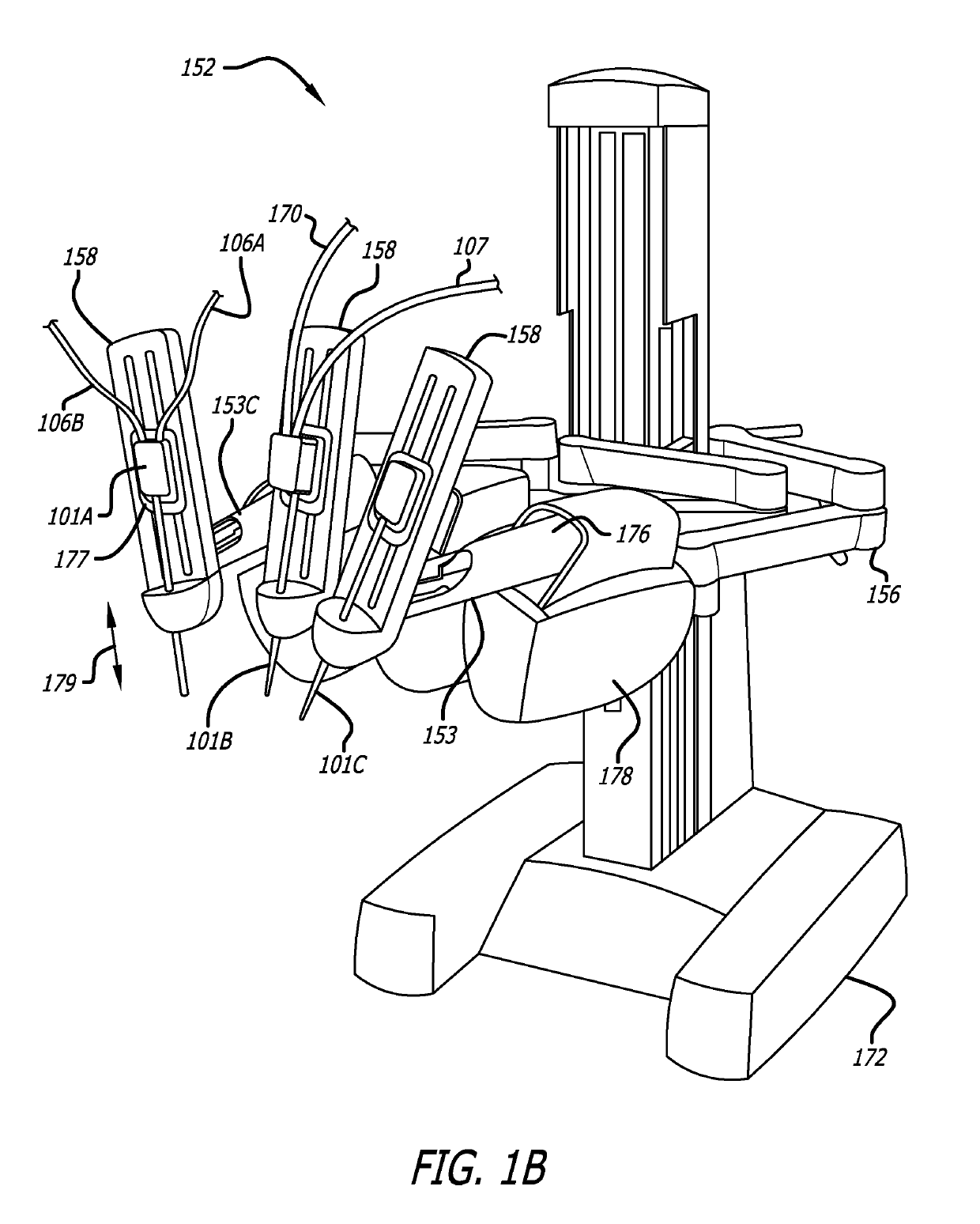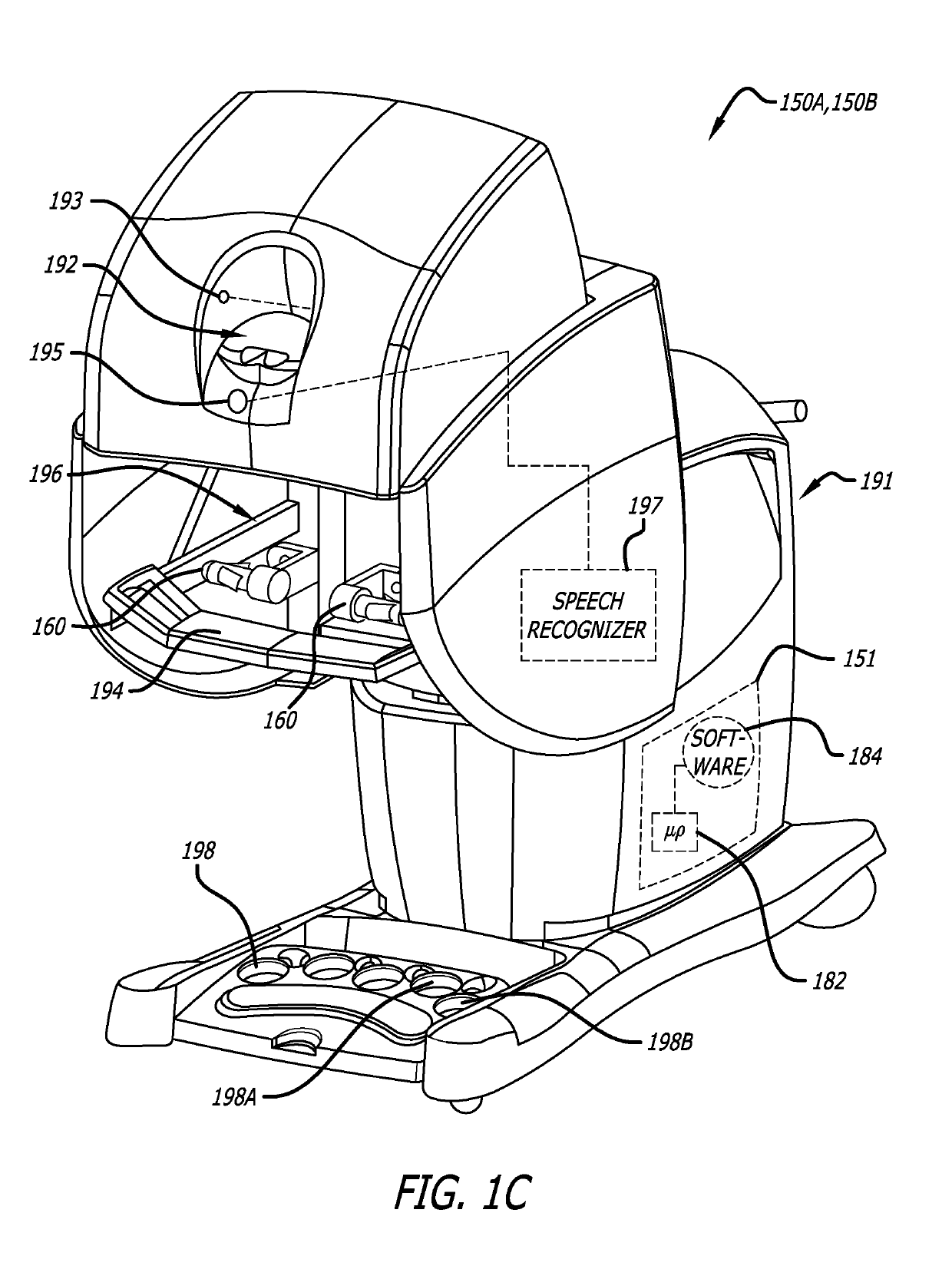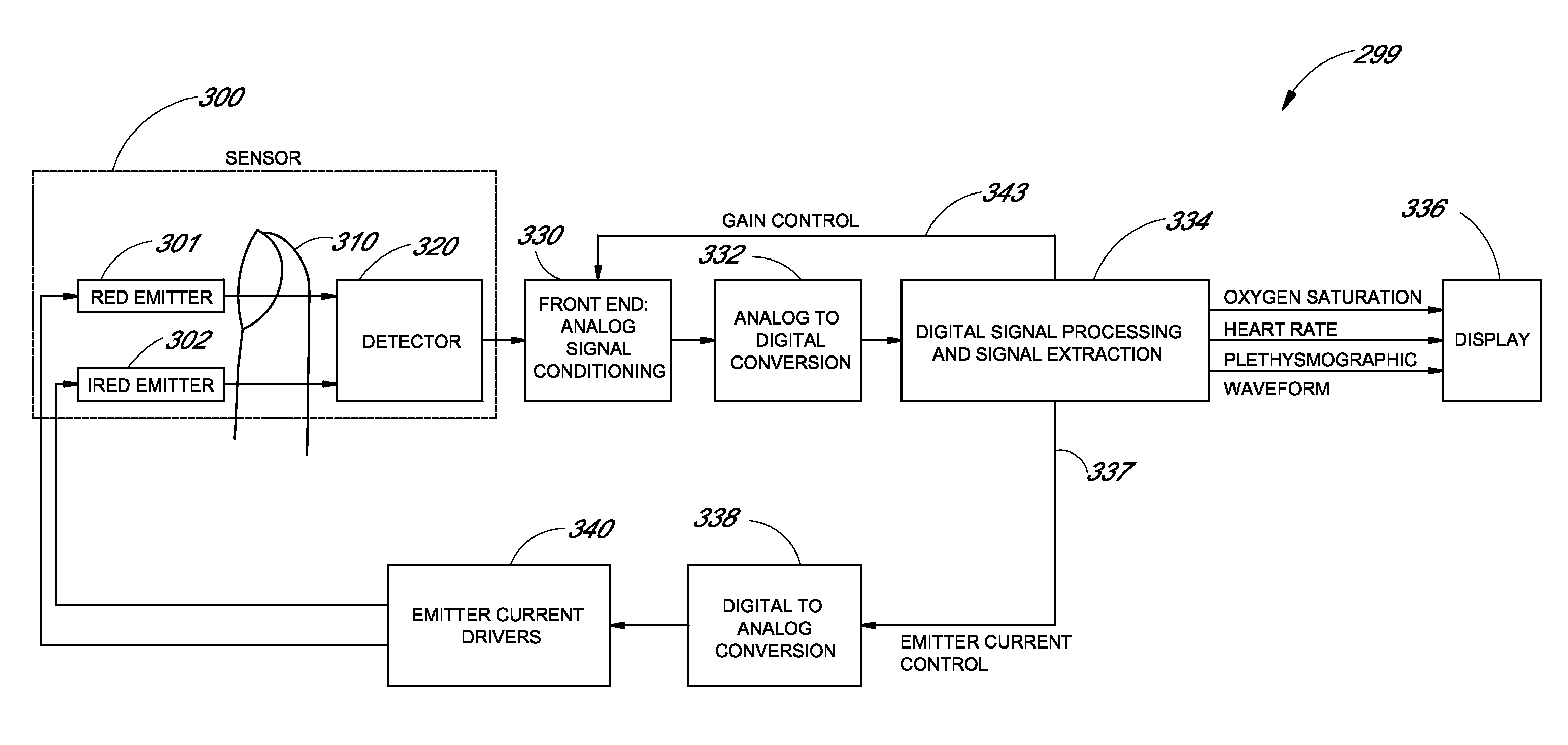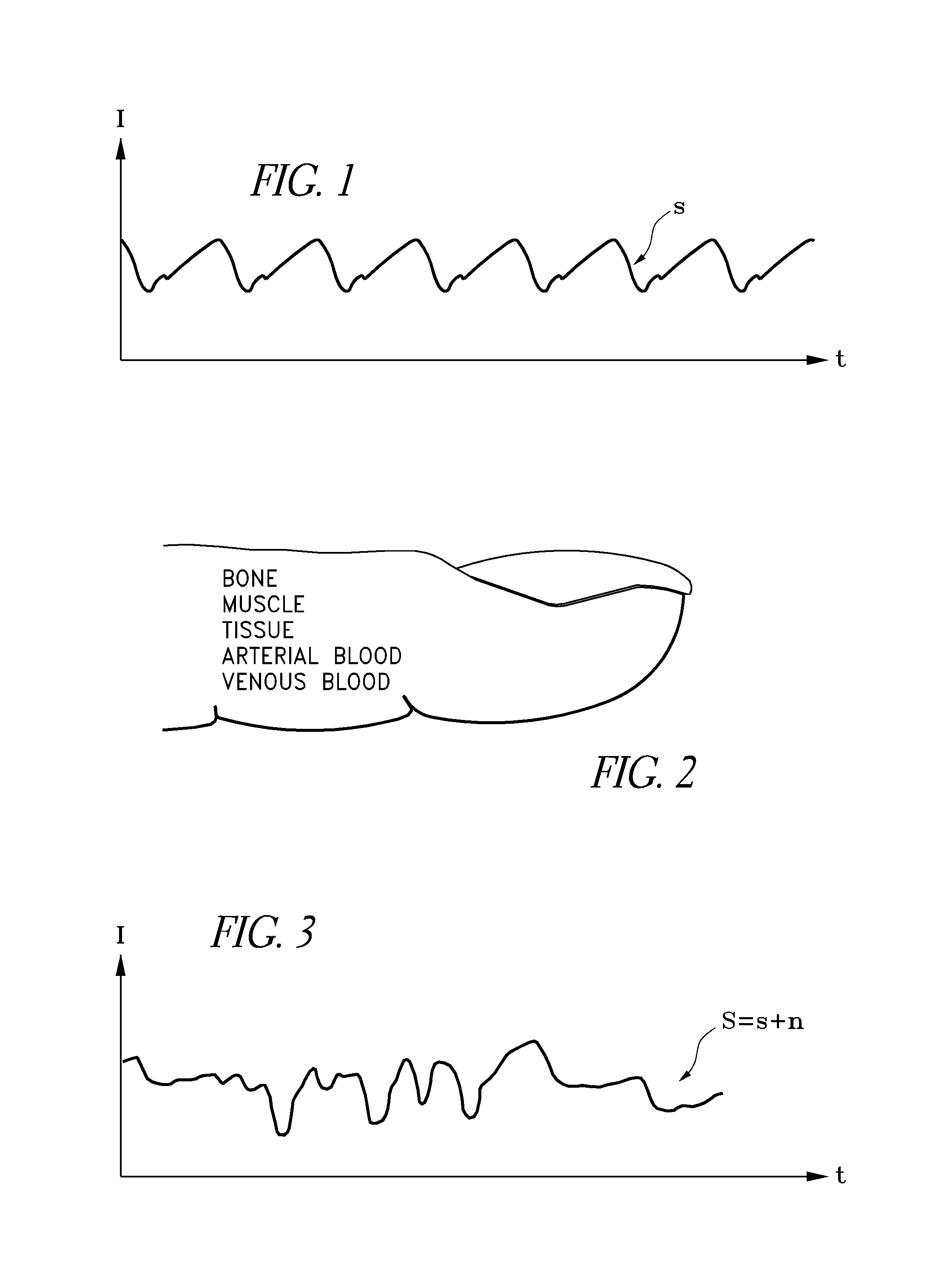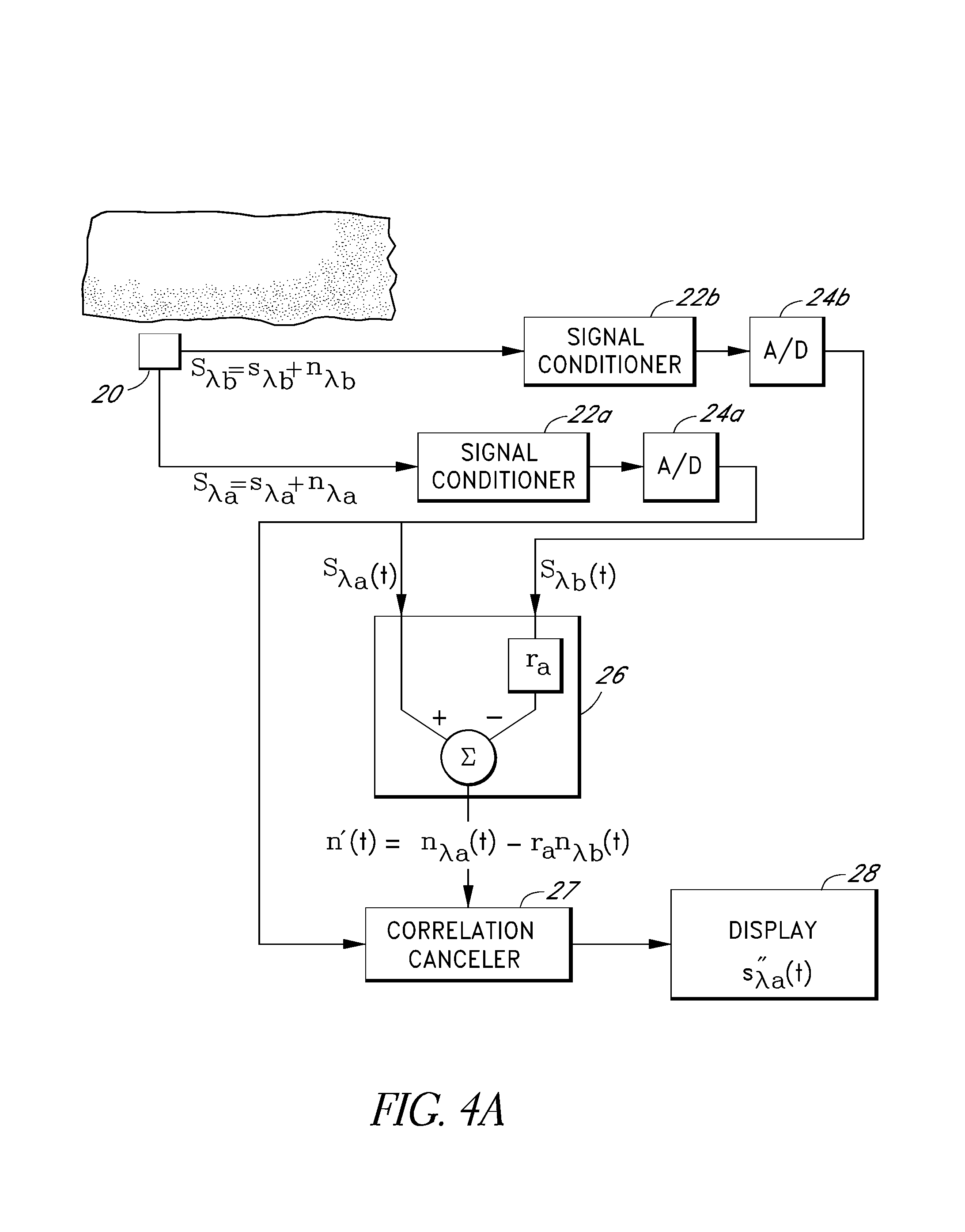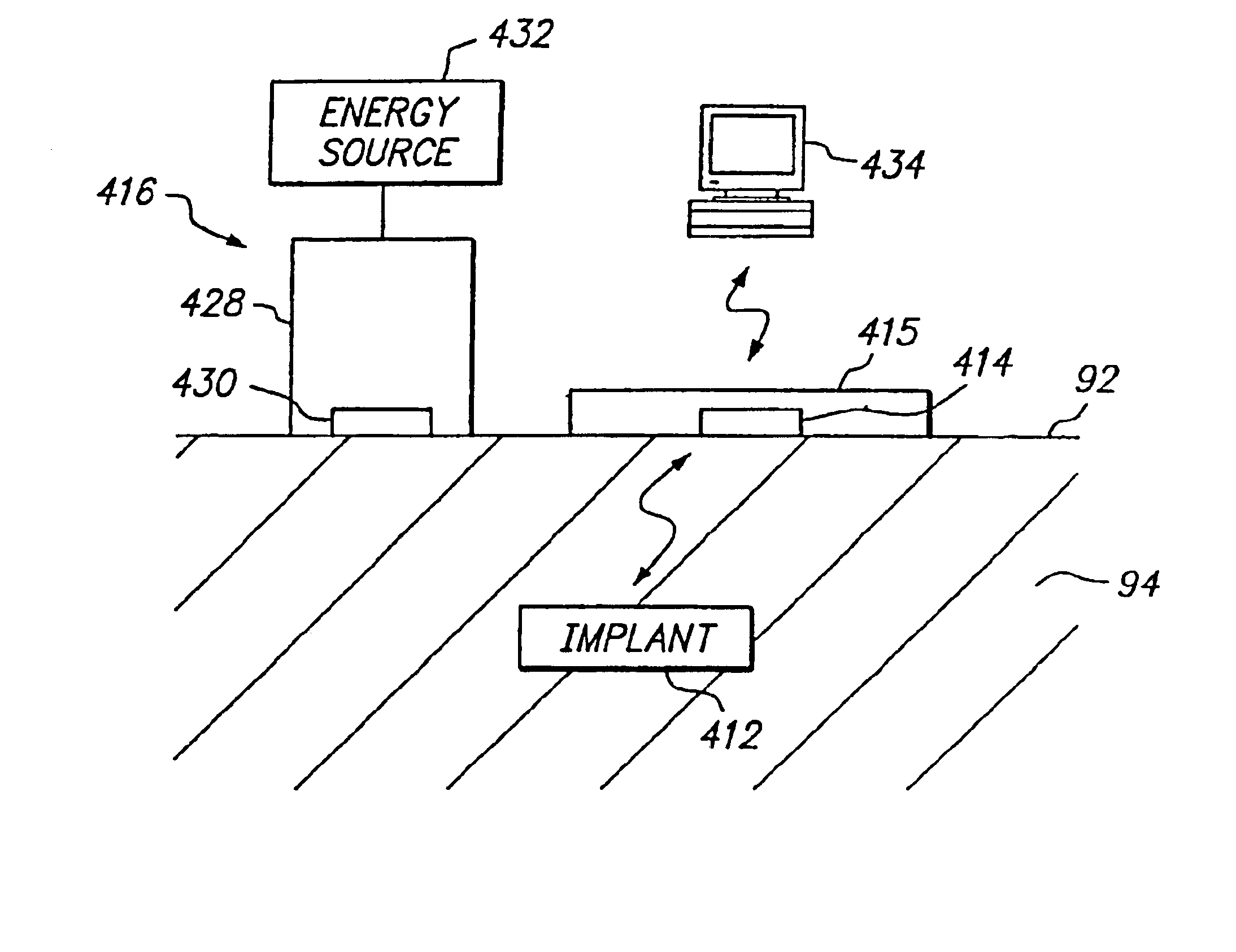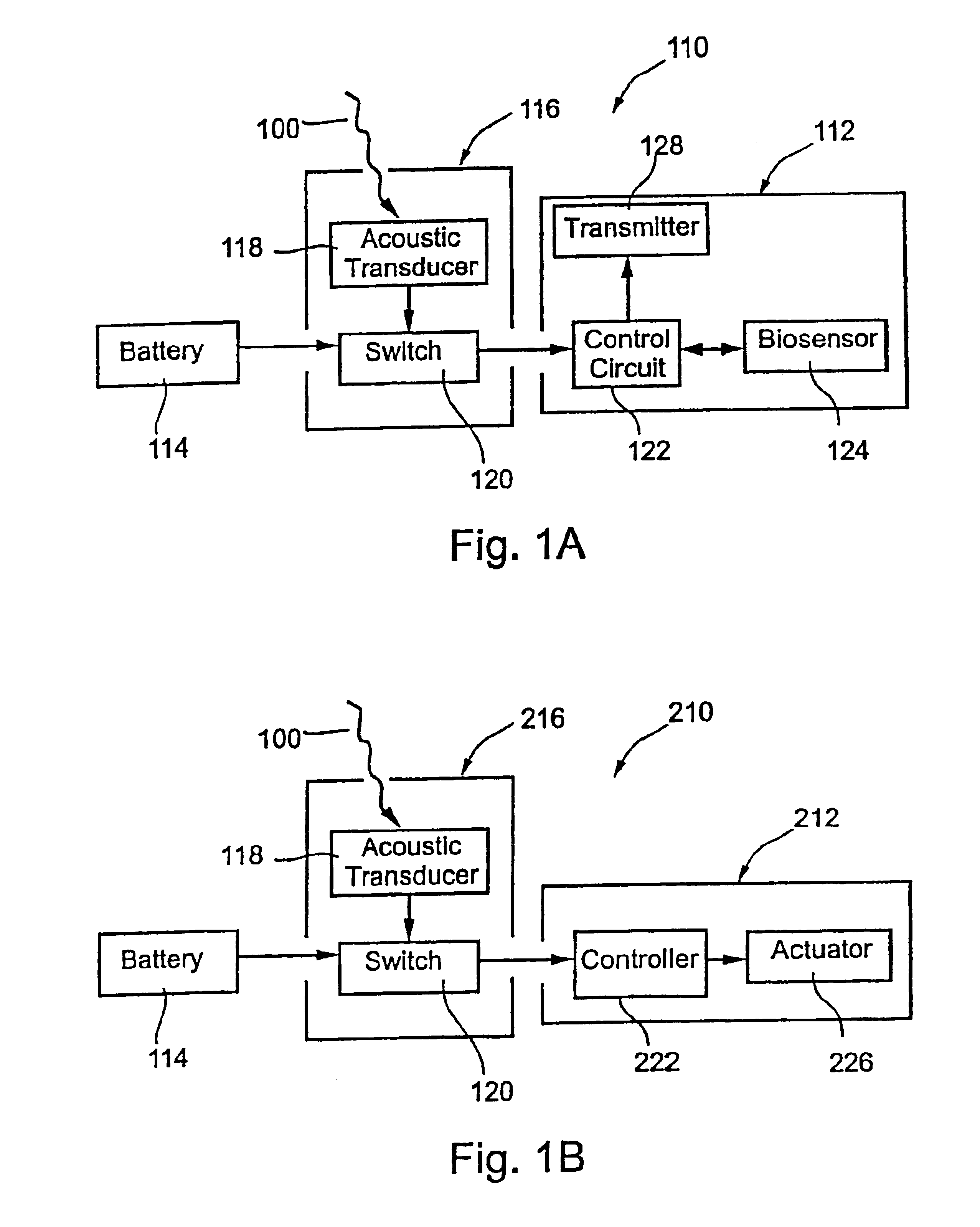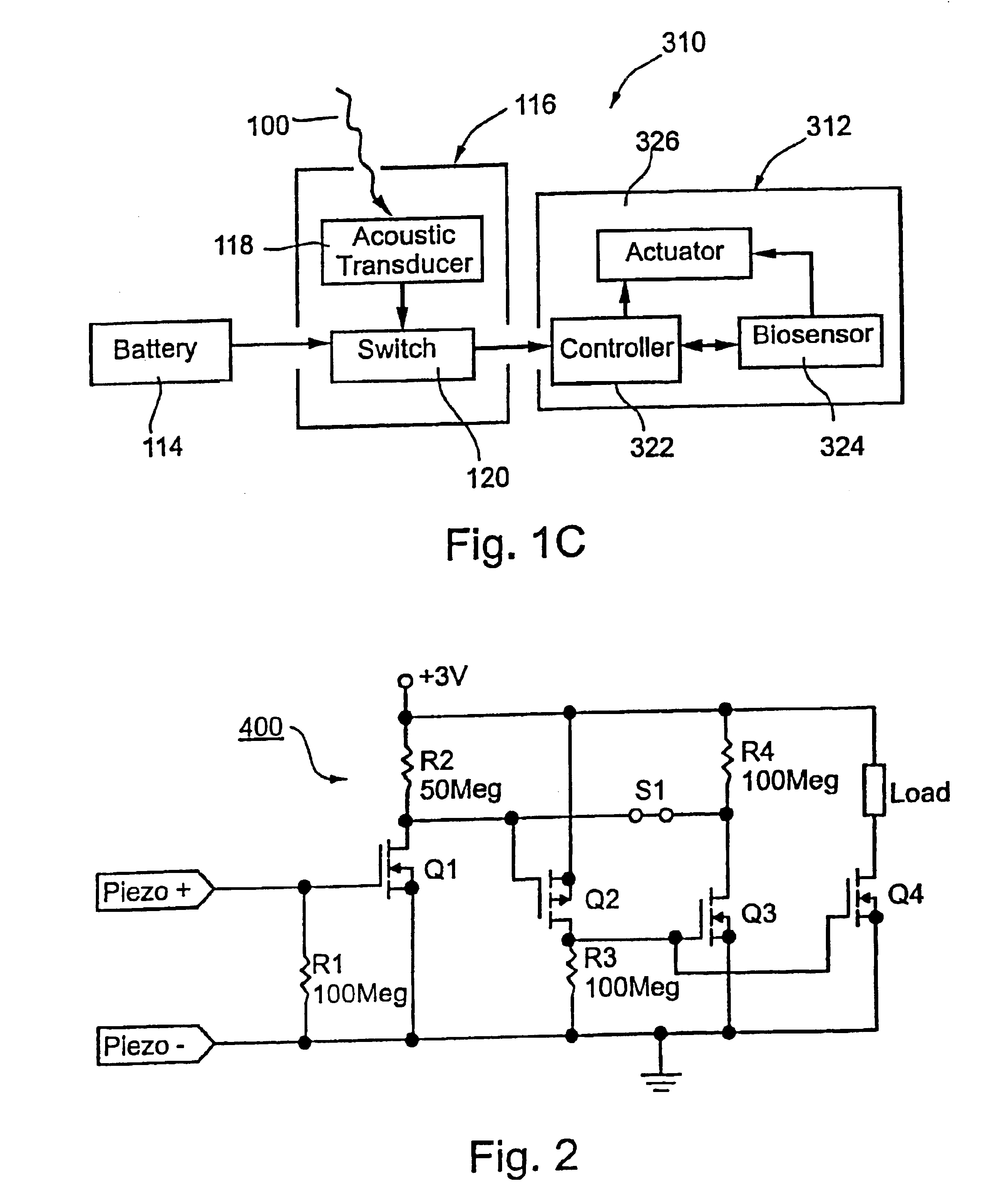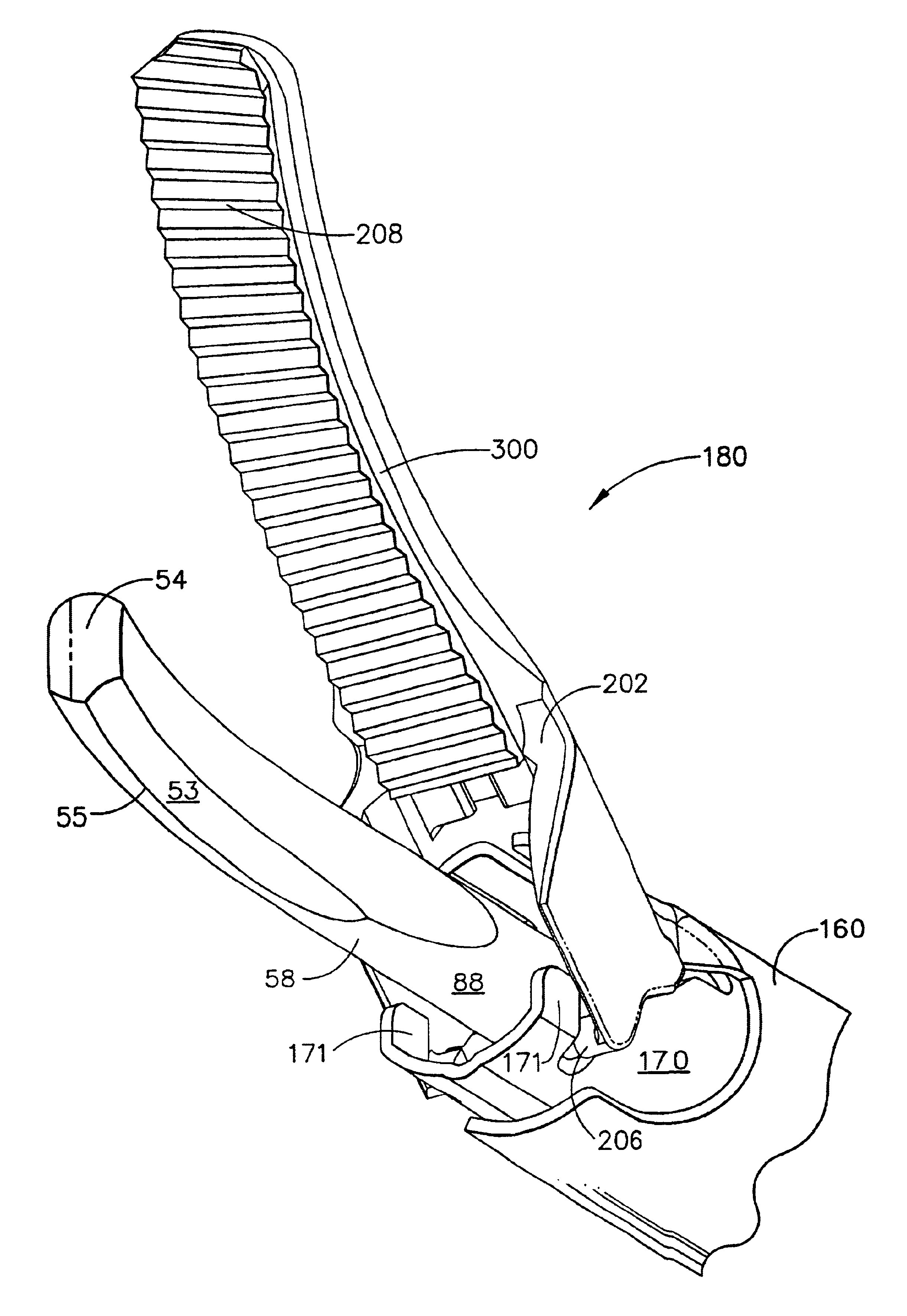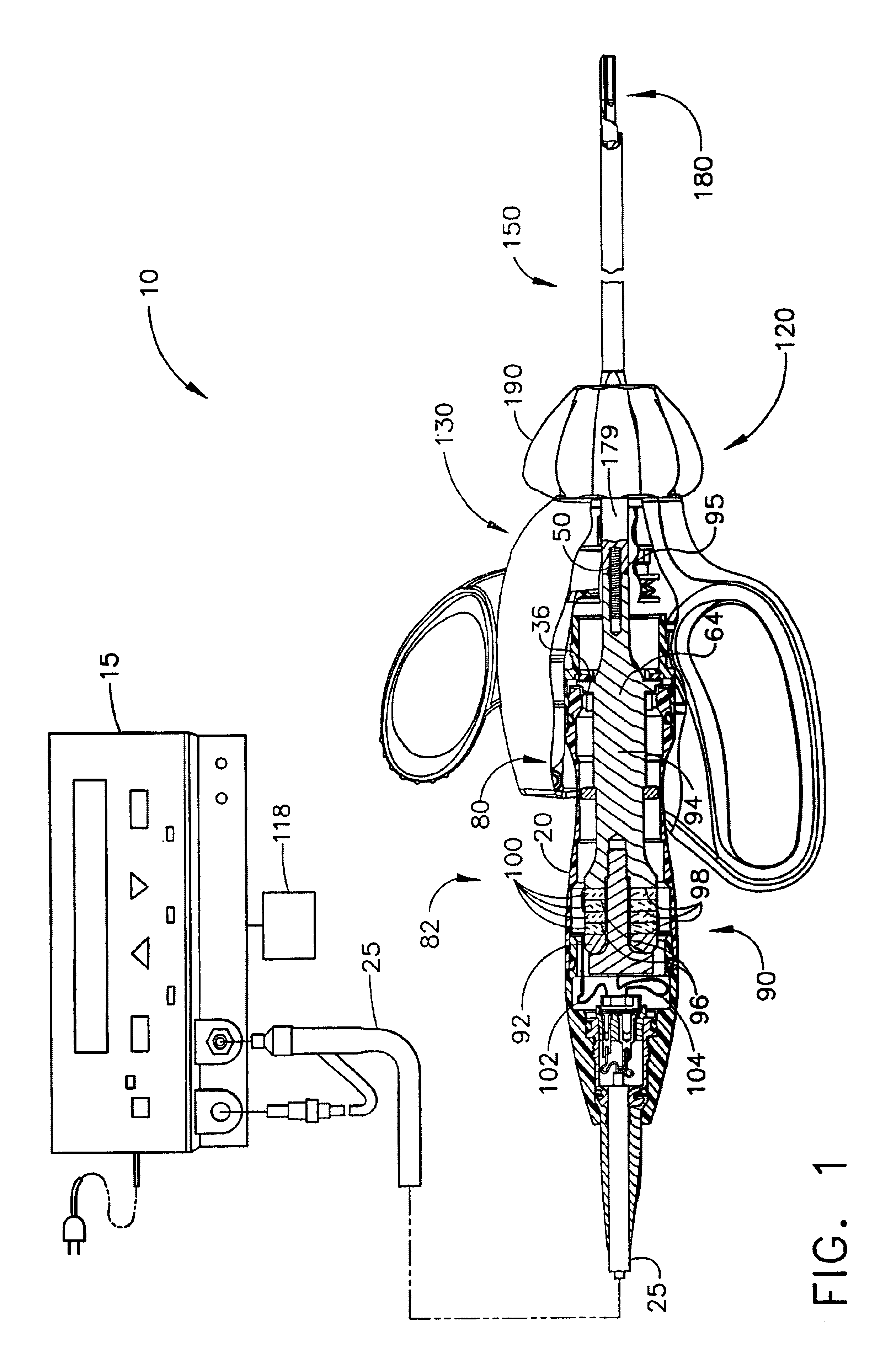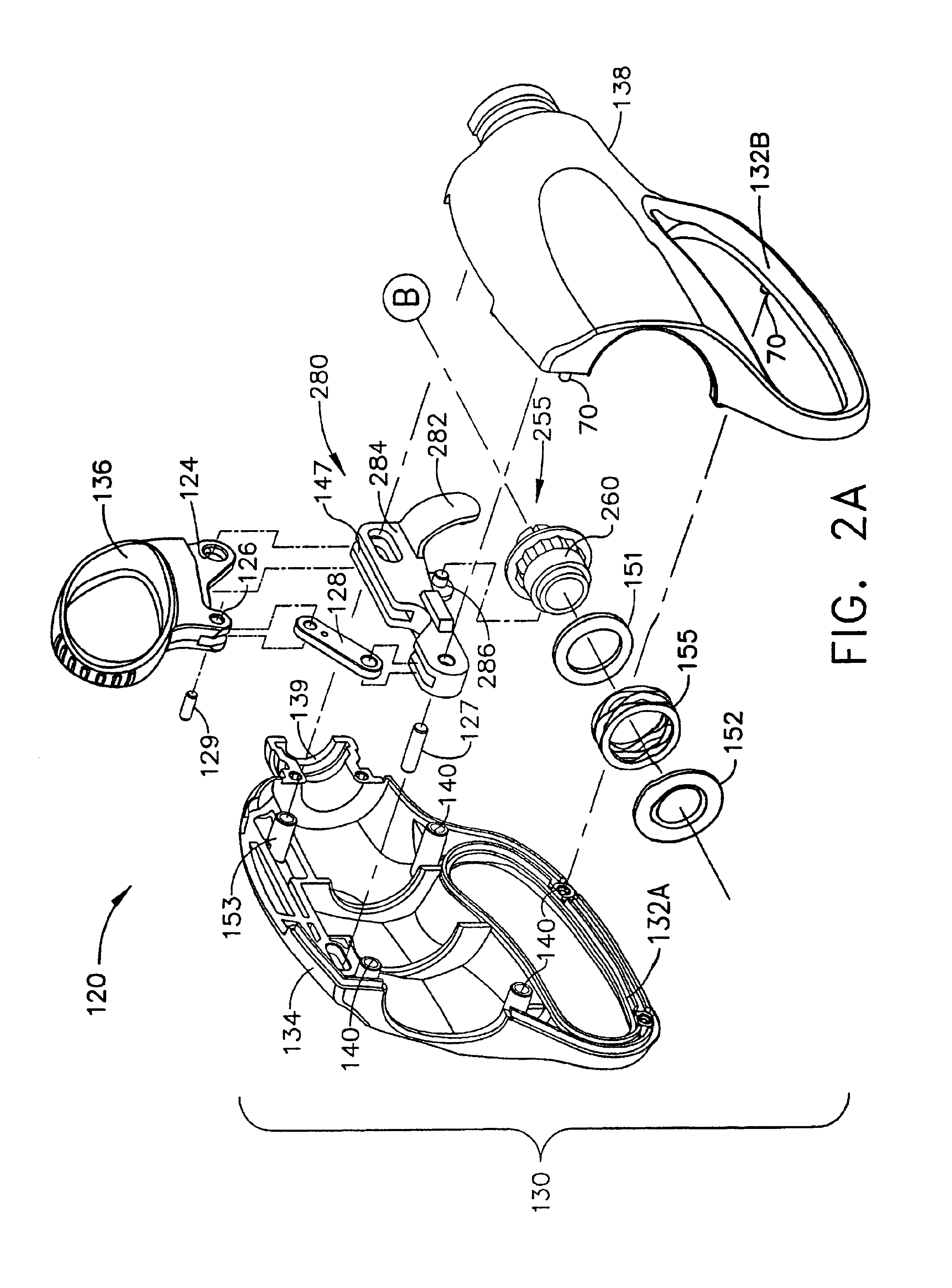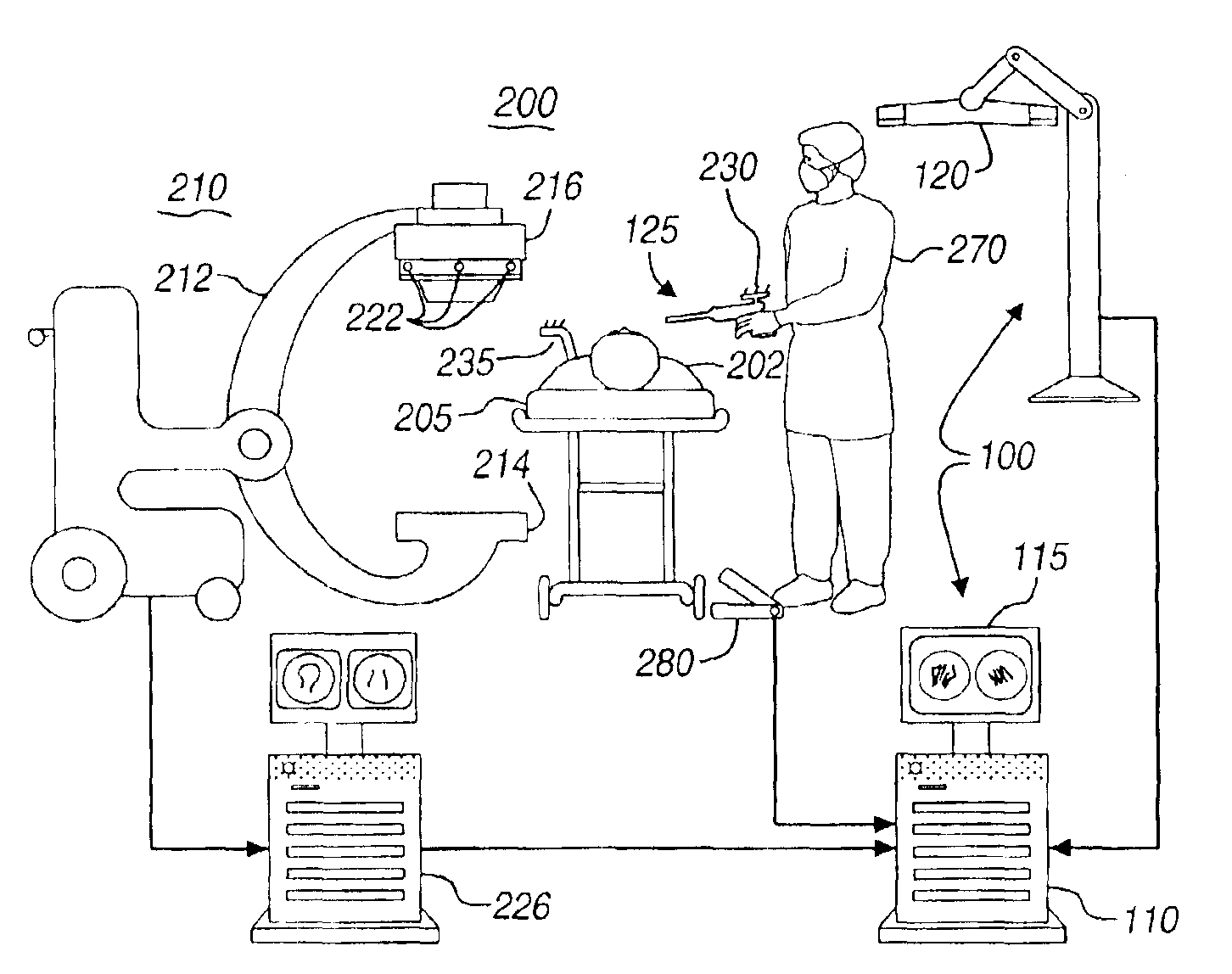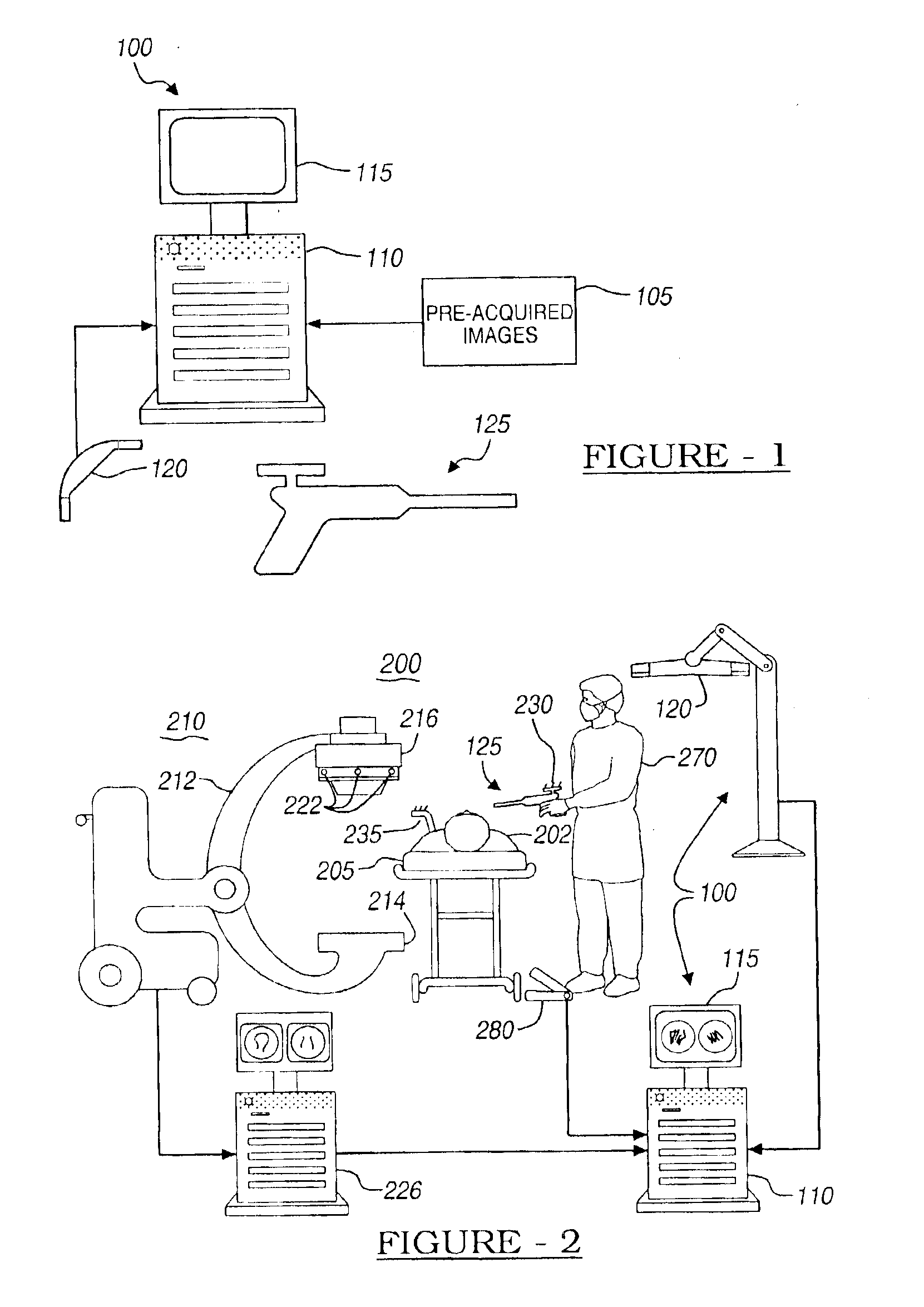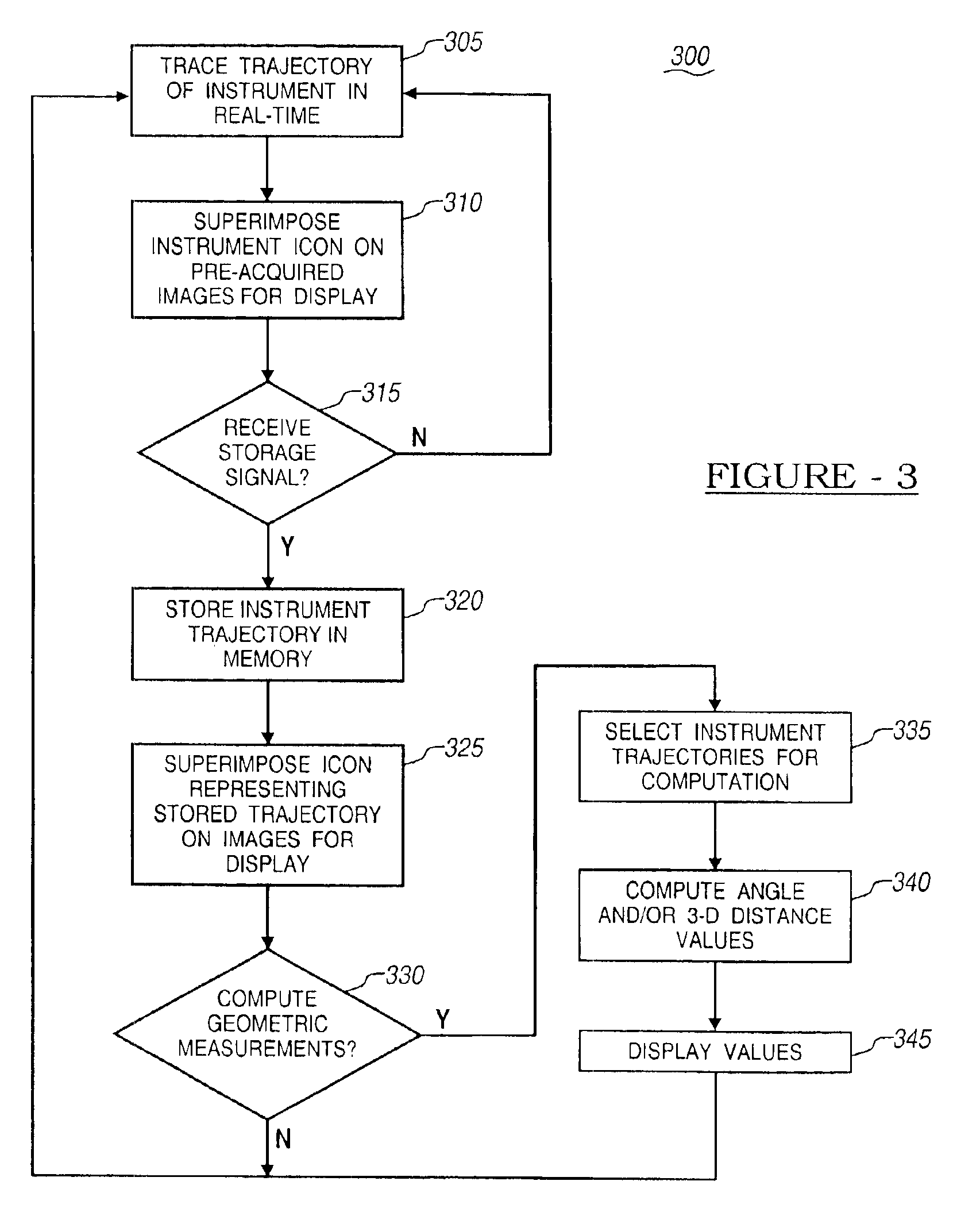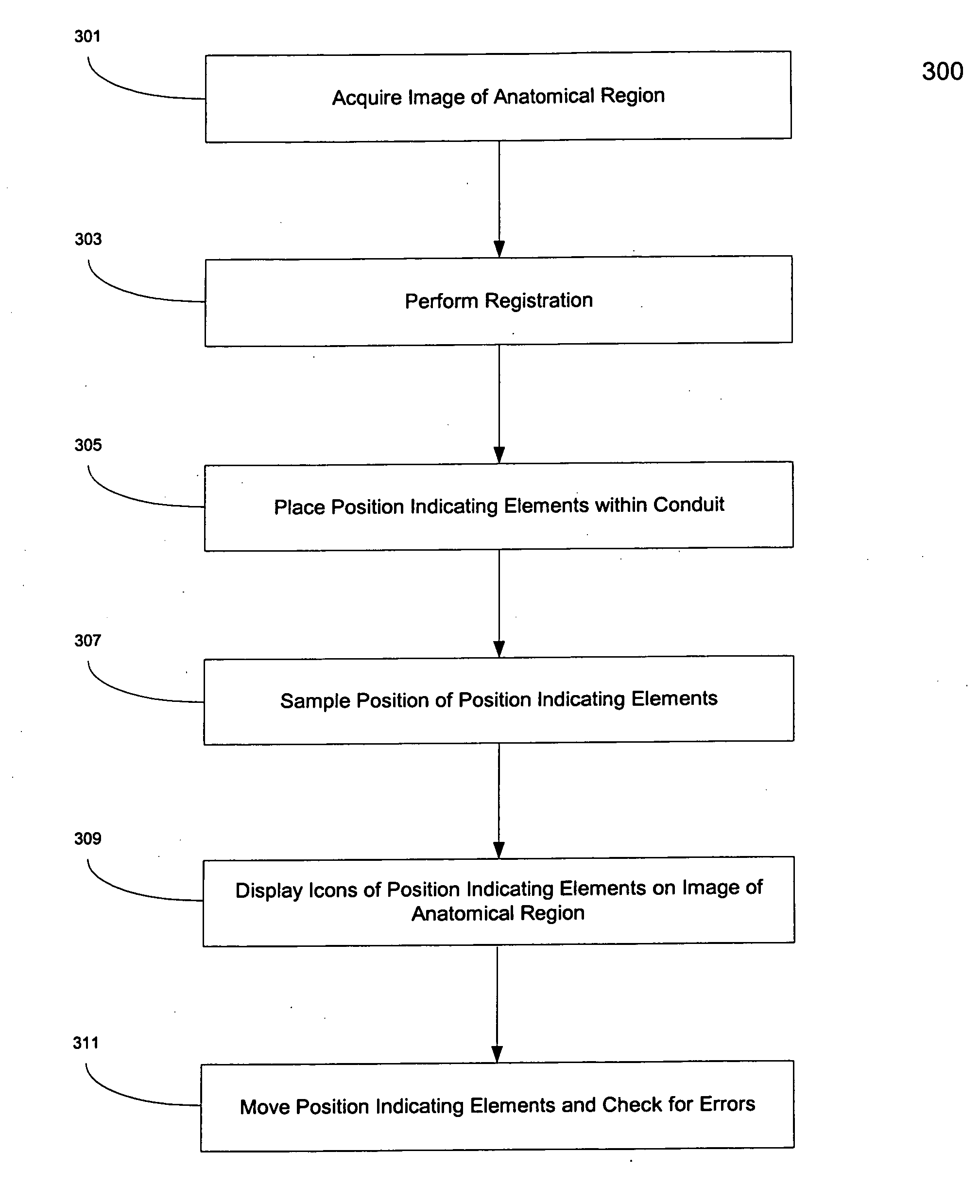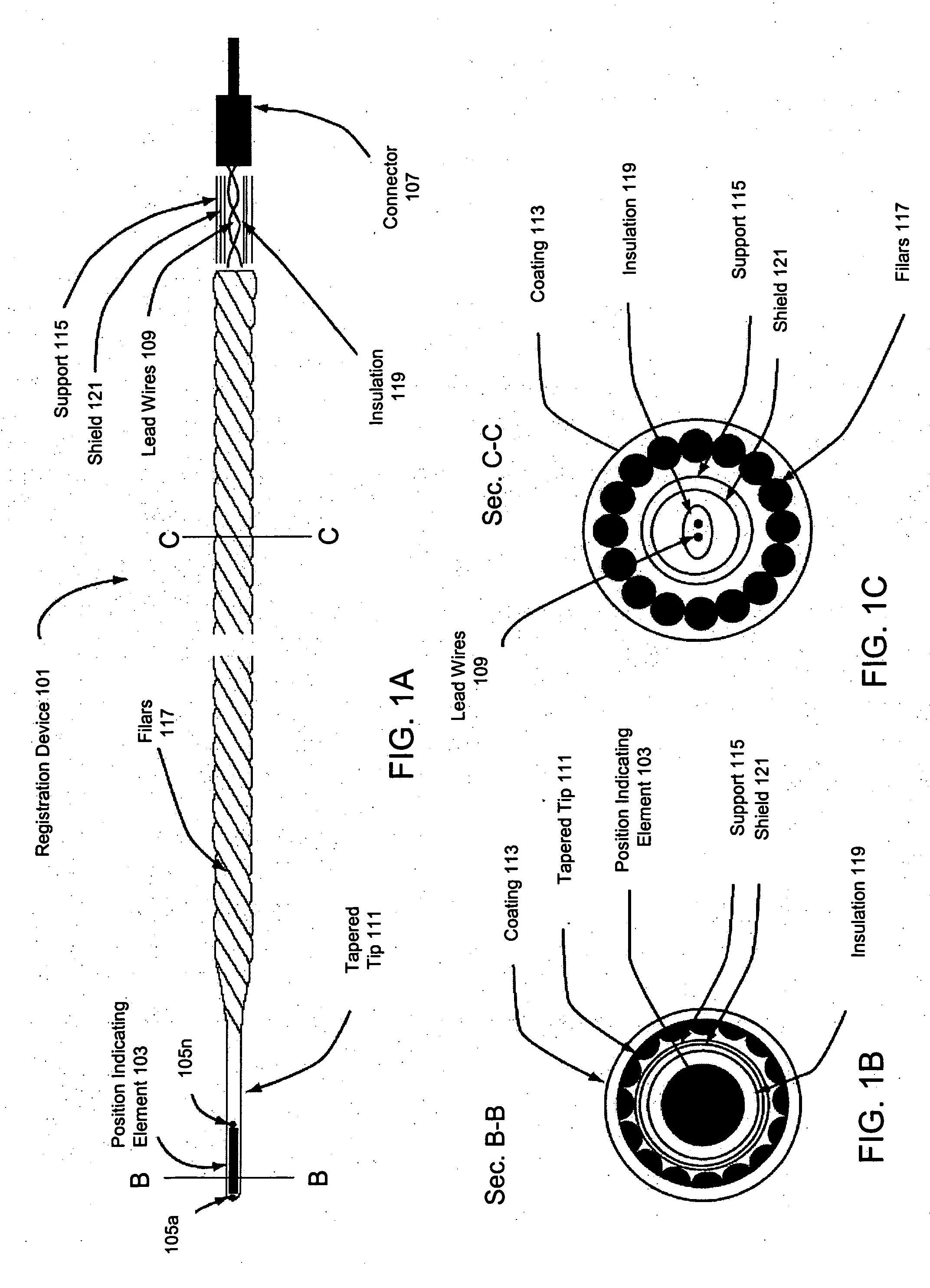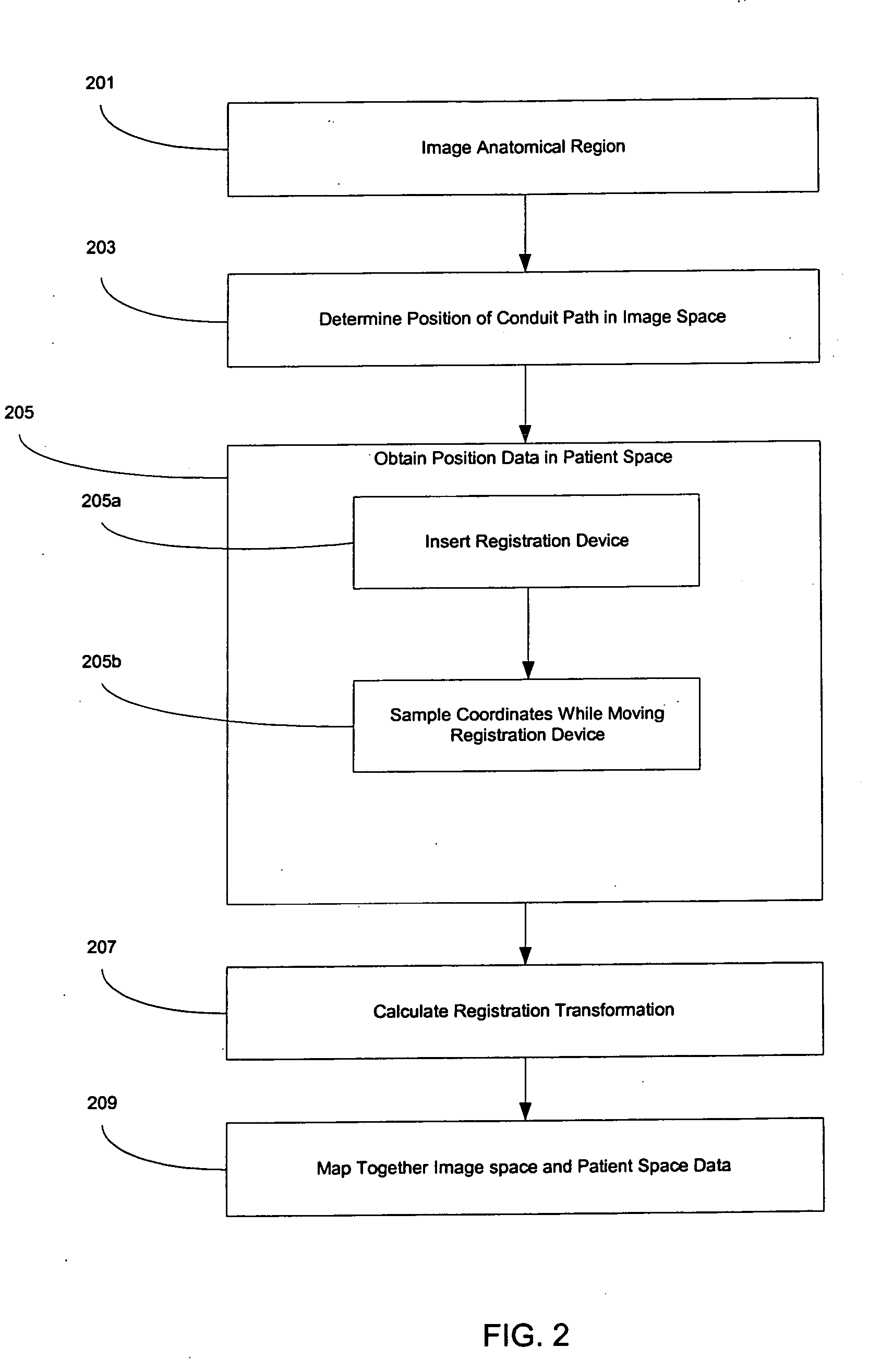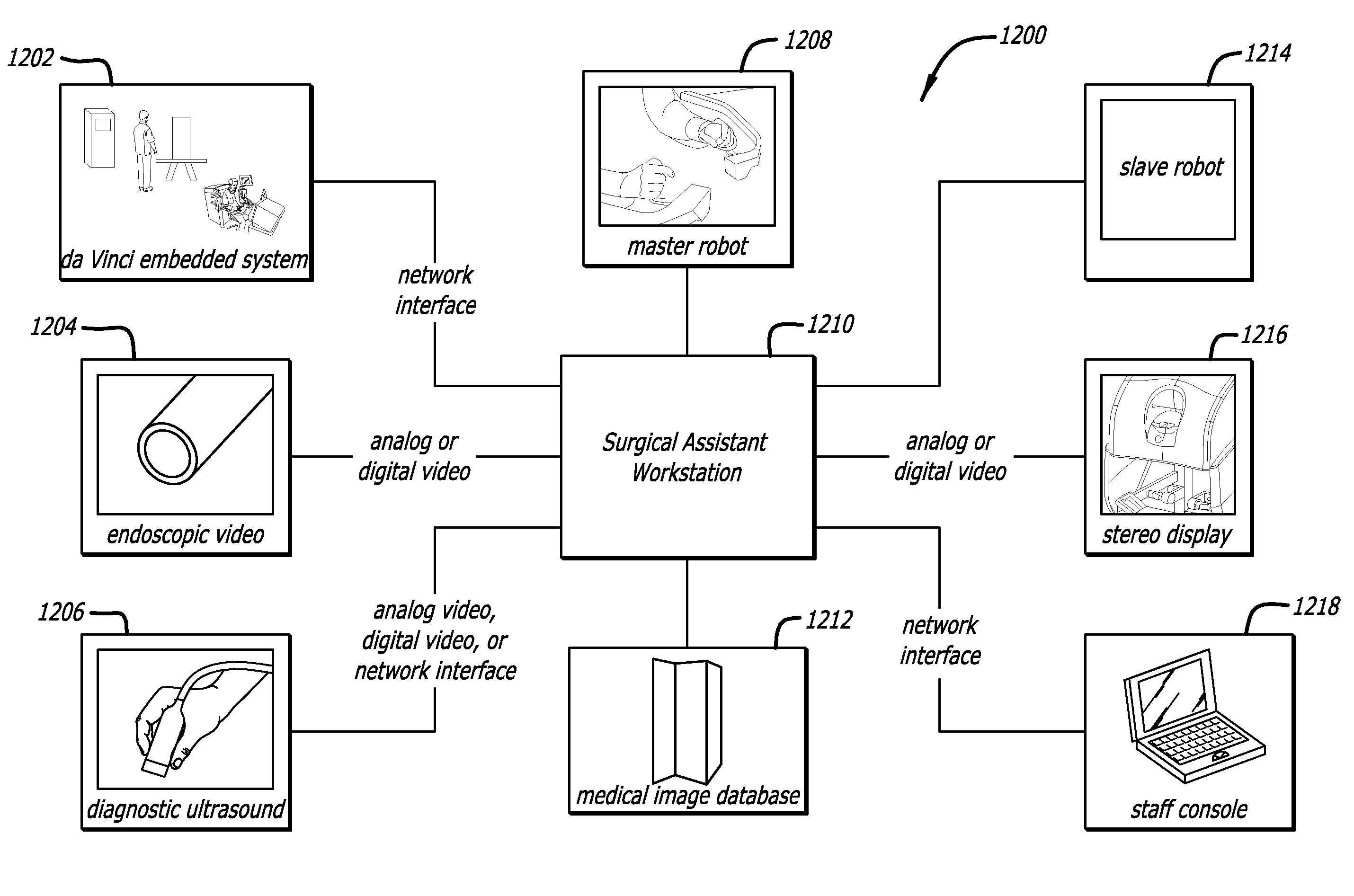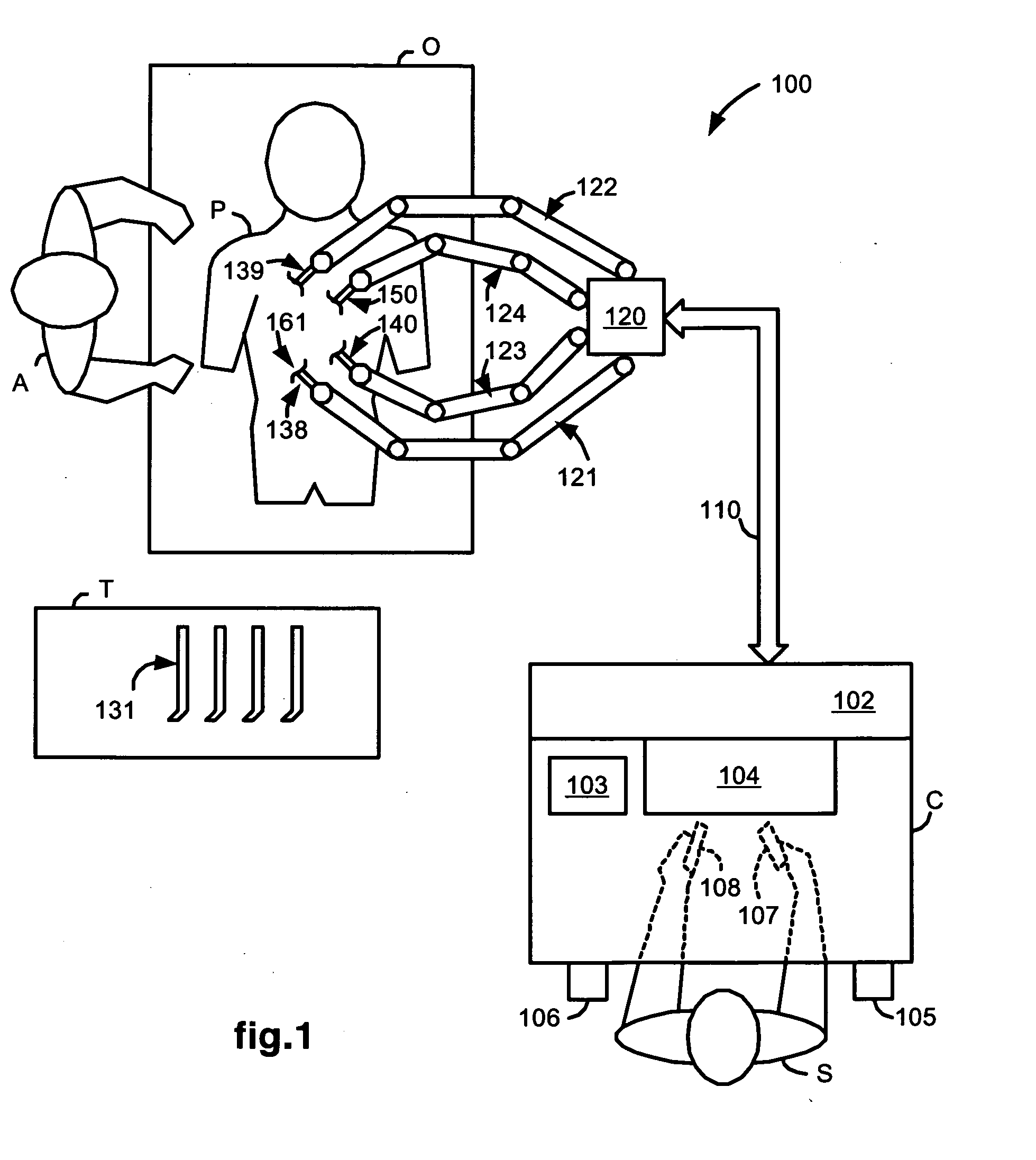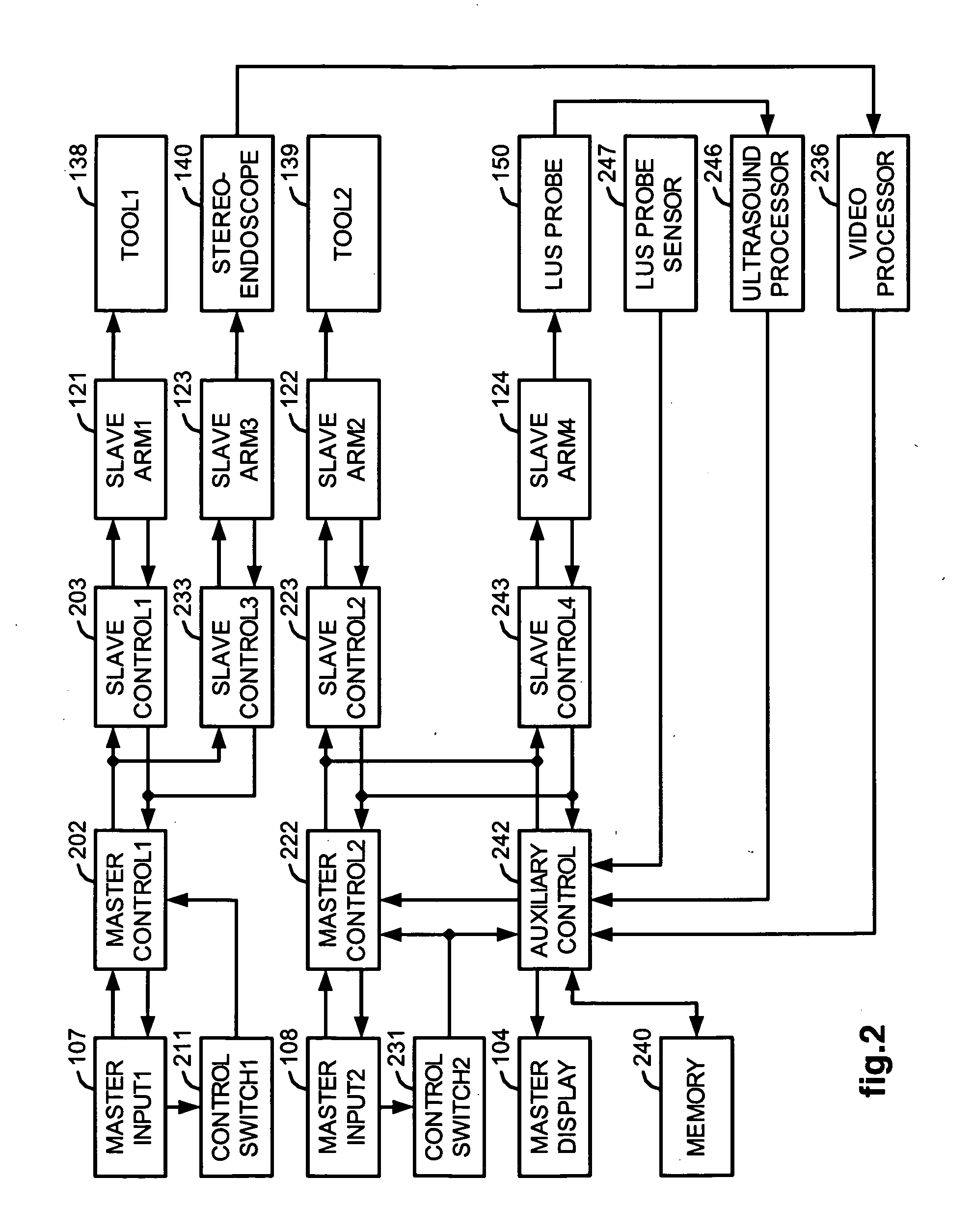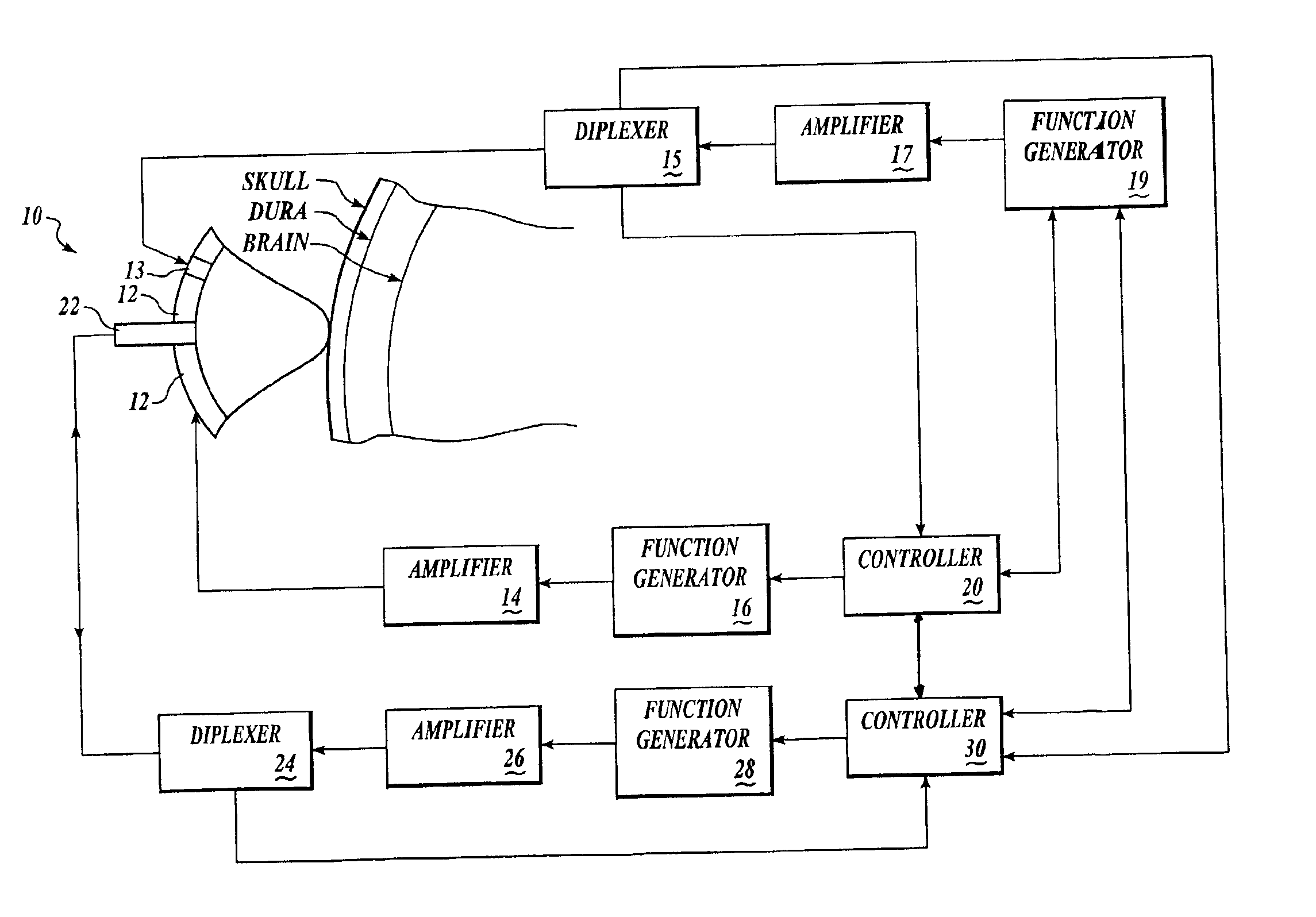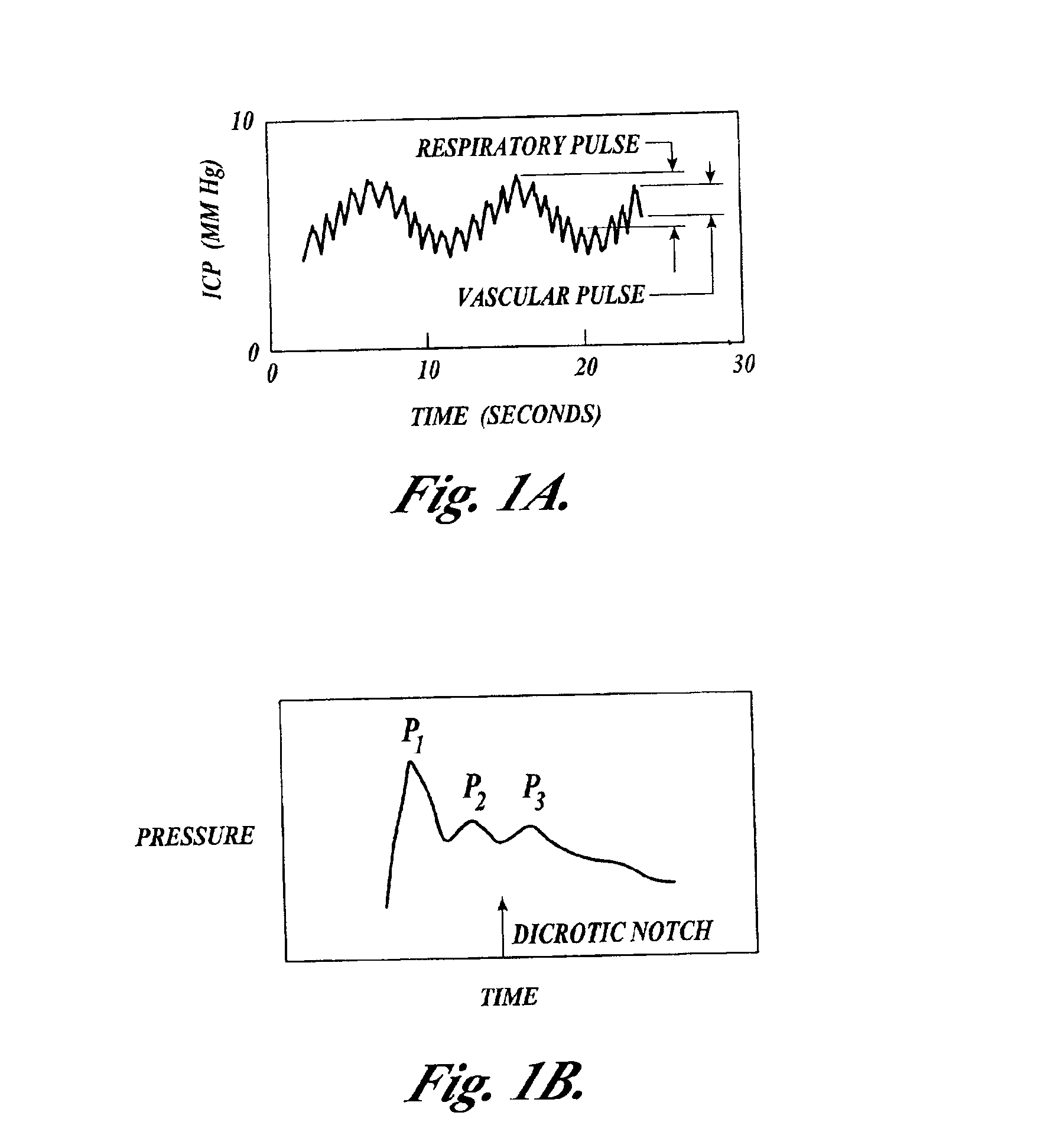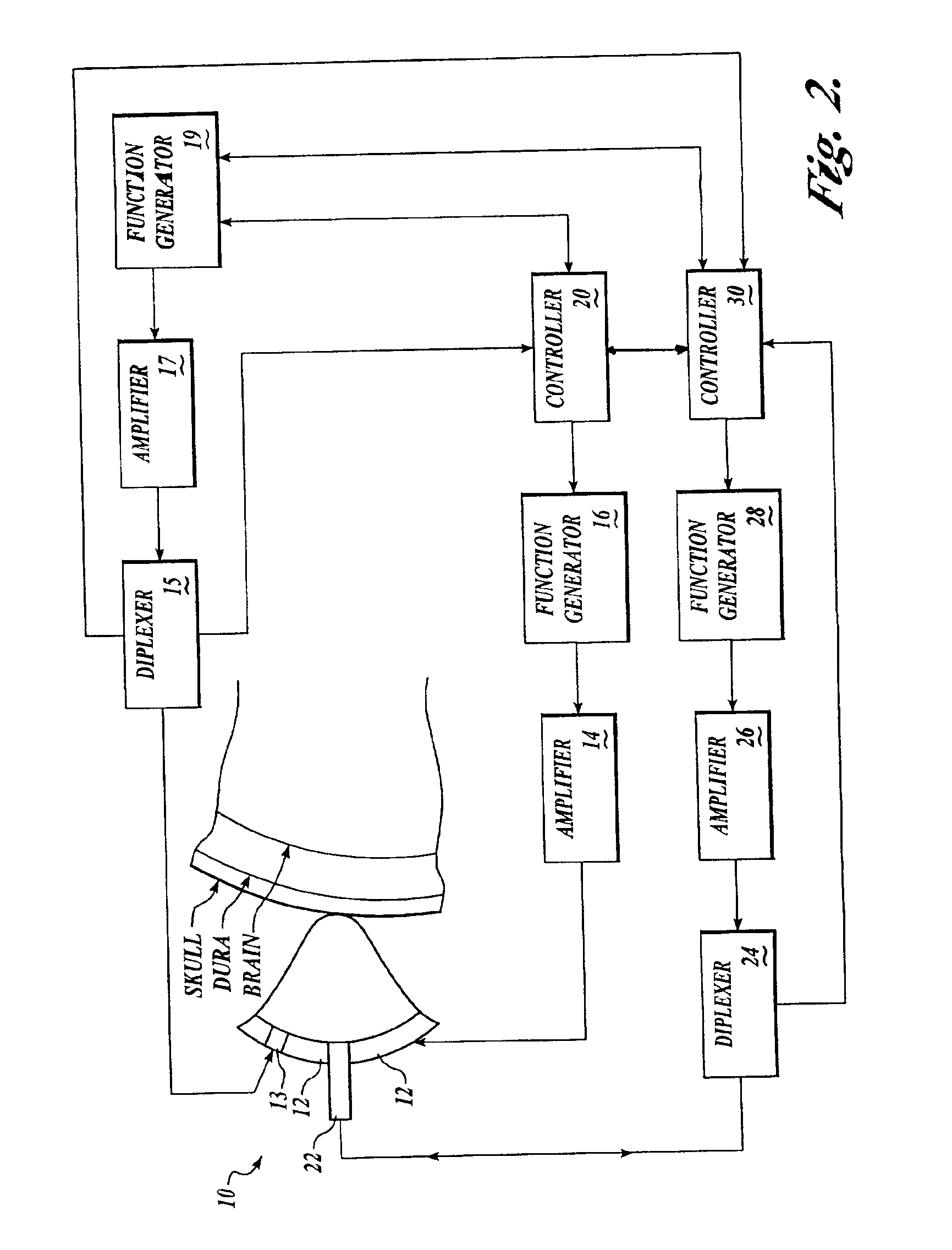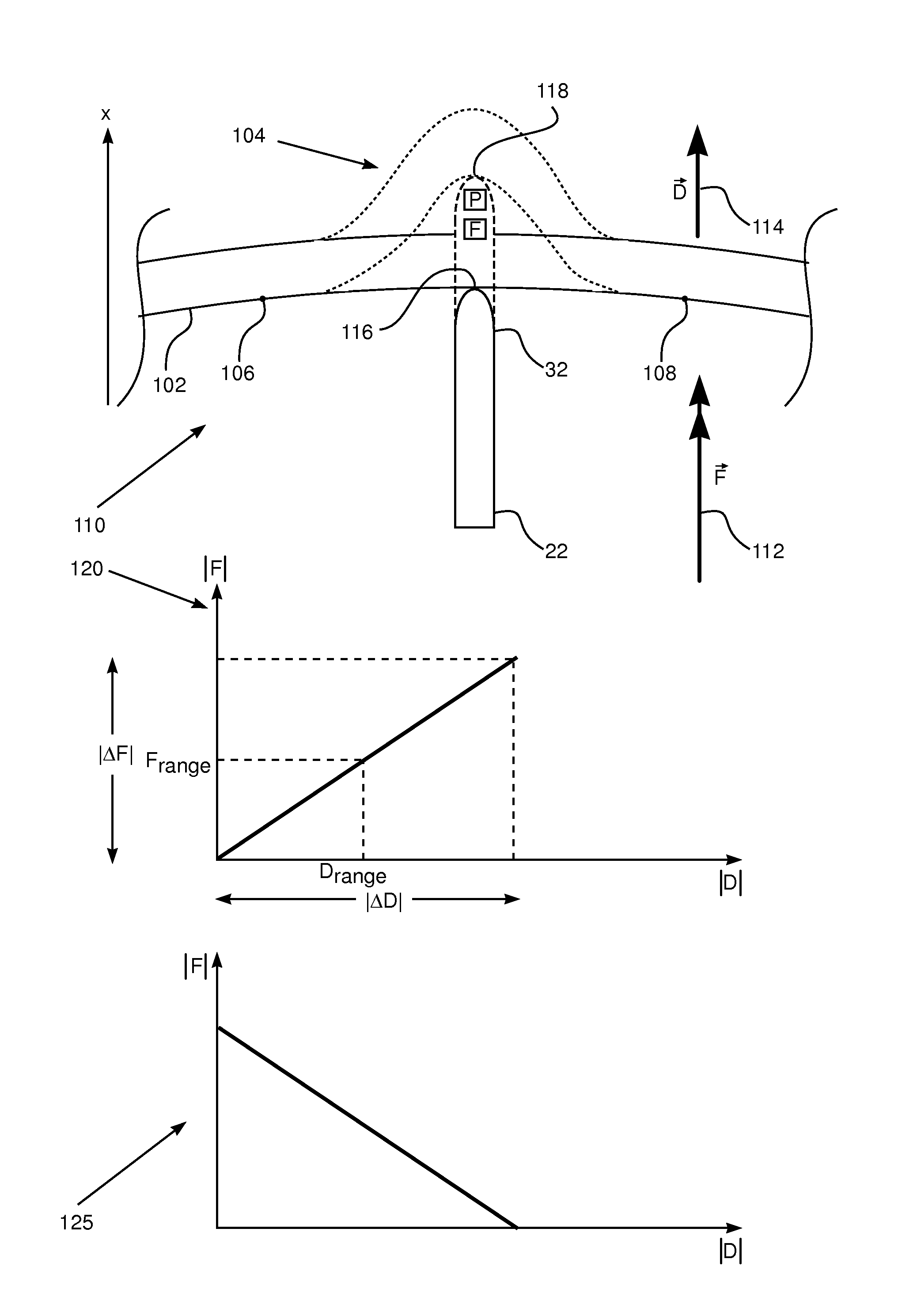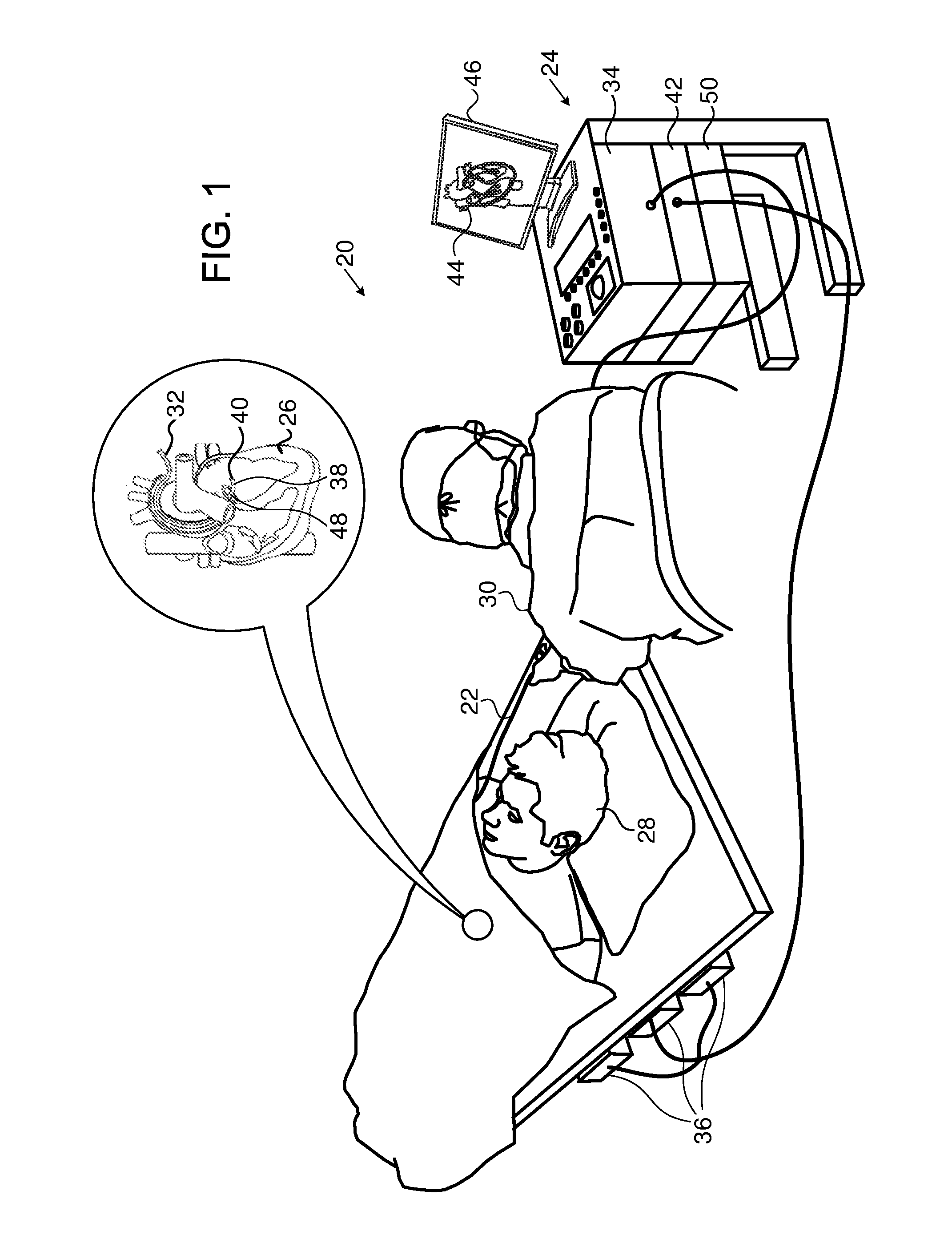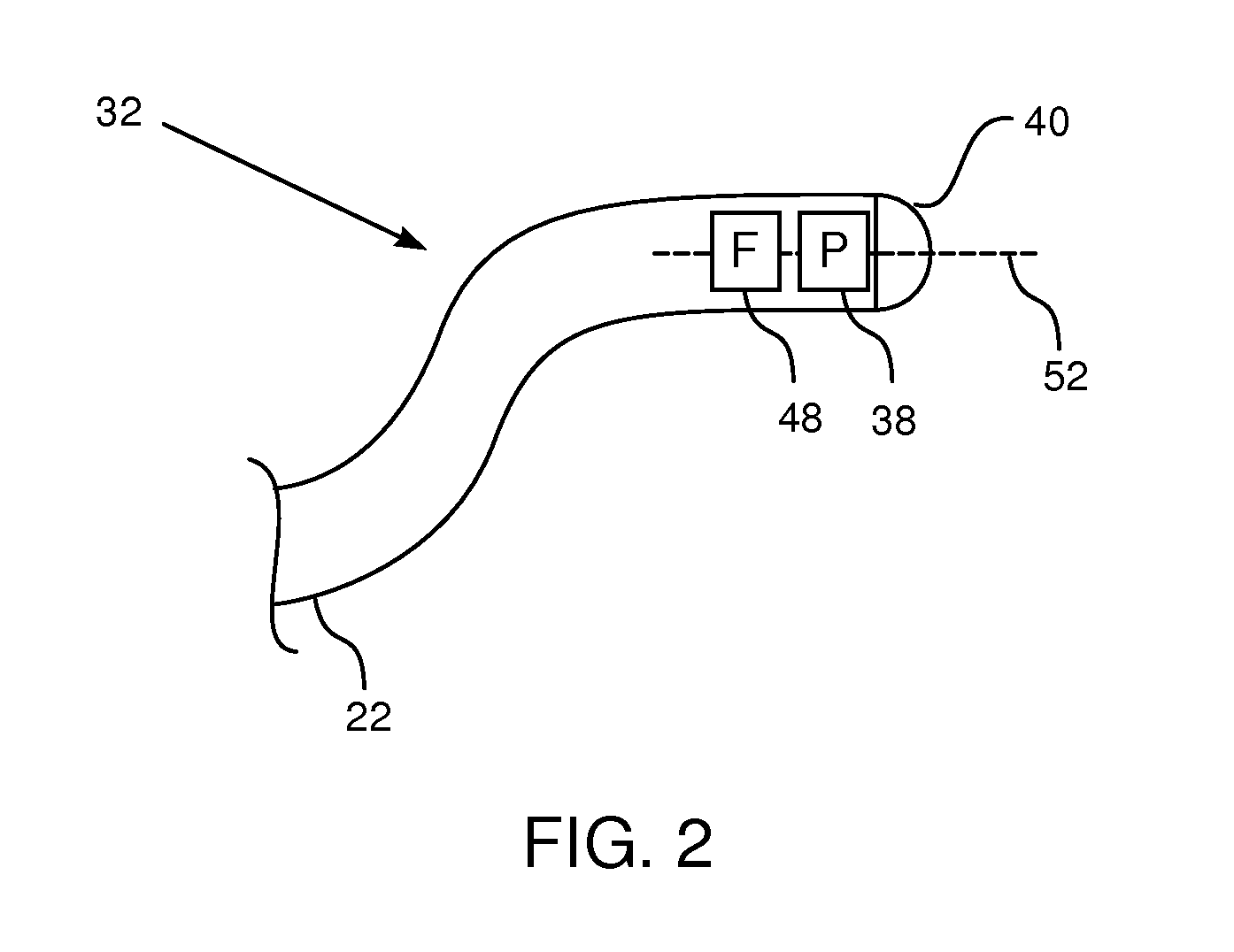Patents
Literature
Hiro is an intelligent assistant for R&D personnel, combined with Patent DNA, to facilitate innovative research.
26300results about "Sonic diagnostics" patented technology
Efficacy Topic
Property
Owner
Technical Advancement
Application Domain
Technology Topic
Technology Field Word
Patent Country/Region
Patent Type
Patent Status
Application Year
Inventor
Ultrasonic device for cutting and coagulating
InactiveUS20070191713A1Improve wear resistanceLoad moreUltrasonic/sonic/infrasonic diagnosticsInfrasonic diagnosticsBack cuttingBiological activation
An ultrasonic clamp coagulator assembly that is configured to permit selective cutting, coagulation, and fine dissection required in fine and delicate surgical procedures. The assembly includes a clamping mechanism, including a clamp arm cam-mounted at the distal portion of the instrument, which is specifically configured to create a desired level of tissue clamping forces. The balanced blade provides a functional asymmetry for improved visibility at the blade tip and a multitude of edges and surfaces, designed to provide a multitude of tissue effects: clamped coagulation, clamped cutting, grasping, back-cutting, dissection, spot coagulation, tip penetration and tip scoring. The assembly also features hand activation configured to provide an ergonomical grip and operation for the surgeon. Hand switches are placed in the range of the natural axial motion of the user's index or middle fingers, whether gripping the surgical instrument right-handed or left handed.
Owner:CILAG GMBH INT +1
Finger operated switch for controlling a surgical handpiece
ActiveUS7883465B2Ultrasonic/sonic/infrasonic diagnosticsSurgical instrument detailsElastomerCapacitance
According to the invention, a finger-operated switch for activating and operating an ultrasonic surgical handpiece is provided. The power output of the surgical handpiece is responsive and proportional to the pressure applied to the finger-operated switch. The finger-operated switch includes, but not limited to, force sensitive resistors whose resistance is proportional to the force applied by the finger of the human operator of the surgical handpiece, force sensitive capacitors whose capacitance is proportional to the pressure, deflection or compression of the insulation layer between two electrodes or is proportional to the spacing between the two conductive layers, strain gauges mounted underneath or integral to the housing of the surgical handpiece such that the pressure applied thereto results in an output change in the strain gauges, magnets or ferromagnets encased or embedded in an elastomer with a sensor inside the surgical handpiece that detects the field strength of the magnet and monitors changes relative to the force applied to the handpiece housing, and piezo film or piezo ceramic whose charge or voltage is proportional to the force applied.
Owner:ETHICON ENDO SURGERY INC
Signal processing apparatus
InactiveUSRE38476E1Ultrasonic/sonic/infrasonic diagnosticsCatheterFourier transform on finite groupsComputer science
The present invention involves method and apparatus for analyzing two measured signals that are modeled as containing primary and secondary portions. Coefficients relate the two signals according to a model defined in accordance with the present invention. In one embodiment, the present invention involves utilizing a transformation which evaluates a plurality of possible signal coefficients in order to find appropriate coefficients. Alternatively, the present invention involves using statistical functions or Fourier transform and windowing techniques to determine the coefficients relating to two measured signals. Use of this invention is described in particular detail with respect to blood oximetry measurements.
Owner:JPMORGAN CHASE BANK NA
Methods of using high intensity focused ultrasound to form an ablated tissue area containing a plurality of lesions
InactiveUS20080039746A1Easily position and manipulate and stabilize and holdEasily position and manipulate and stabilizeUltrasonic/sonic/infrasonic diagnosticsUltrasound therapyExAblateRadiology
Owner:MEDTRONIC INC
Systems and methods for monitoring and modifying behavior
A system for detecting non-verbal acoustic energy generated by a subject is provided. The system includes a sensor mountable on or in a body region of the subject, the sensor being capable of sensing the non-verbal acoustic energy; and a processing unit being capable of processing the non-verbal acoustic energy sensed by the sensor and deriving an activity related signature therefrom, thereby enabling identification of a specific activity associated with the non-verbal acoustic energy.
Owner:SVIP 4
Medical devices with enhanced ultrasonic visibilty
InactiveUS20070197954A1Ultrasonic/sonic/infrasonic diagnosticsElectrotherapyTip positionSolid tissue
A medical device having enhanced ultrasonic visibility is provided. The device permits localized drug delivery, probe positioning, fluid drainage, biopsy, or ultrasound pulse delivery, through the real-time ultrasound monitoring of the needle tip position within a patient. The device permits controlled dispersion of a drug into solid tissue, the lodging of particles into solid tissue, and drug delivery into specific blood vessels. As a needle is inserted, a fluid that contrasts echogenically with the organ environment is injected into the patient. The fluid travels a brief distance before being slowed and stopped by the patient's tissue and this fluid flow will be detectable by ultrasound. The needle position during insertion will be monitored using ultrasound until it is at the desired point of action. A therapeutic drug is then delivered or a probe inserted
Owner:ARTENGA
Slip ring spacer and method for its use
ActiveUS8142200B2Easy extractionEasy to insertUltrasonic/sonic/infrasonic diagnosticsUltrasound therapyUltrasonic sensorTransducer
An interchangeable transducer for use with an ultrasound medical system having a keyless adaptor and capable of operating in a wet environment. The interchangeable transducer has an adaptor for engaging a medical system, an ultrasound transducer and additional electronics to provide a self-contained insert for easy replacement and usage in a variety of medical applications. A slip ring spacer is also disclosed, the slip ring spacer for use with a pancake slip ring having a base and flange configuration to form one or more channels around each contact ring of the pancake slip ring. The channels provide fluid isolation around each connector to help reduce electronic cross talk and contact corrosion between the connector pads of the slip ring while the slip ring is immersed in a wet environment.
Owner:SOLTA MEDICAL
Ultrasonic needle guiding apparatus, method and system
InactiveUS20130158390A1Organ movement/changes detectionSurgical needlesPhase differenceDisplay device
An apparatus is provided. The apparatus comprises a vibrator configured to vibrate a needle, an ultrasonic scanhead configured to transmit ultrasonic pulses and to receive return signals, and an ultrasonic system coupled to the ultrasonic scanhead. The ultrasonic system comprises a transmitter and receiver module coupled to the ultrasonic scanhead, a displacement estimation module coupled to the transmitter and receiver module, and a display coupled to the displacement estimation module. The transmitter and receiver module is configured to supply energizing pulses to the ultrasonic scanhead to transmit the ultrasonic pulses and to receive electrical signals produced by the ultrasonic scanhead according to the return signals. The displacement estimation module is configured to calculate motion displacements based on phase differences of the electrical signals. The display is configured to display an image according to the motion displacements.
Owner:GENERAL ELECTRIC CO
Ultrasonic surgical system and method
ActiveUS20070239028A1Automatically performUltrasonic/sonic/infrasonic diagnosticsInfrasonic diagnosticsSurgical operationSurgical site
An ultrasonic surgical system has an ultrasonic unit including an instrument operatively connected to an ultrasonic generator, wherein the instrument has an ultrasonic end effector on the distal end of a shaft. The system further includes a positioning unit including a movable arm adapted for releasably holding the instrument, whereby an operator may direct the positioning unit to position the end effector at a surgical site inside a body cavity of a patient for performing a plurality of surgical tasks. The system further includes a control unit operatively connected to the ultrasonic and positioning units, wherein the control unit is programmable with a surgical subroutine for performing the surgical tasks. The system further includes a user interface operatively connected to the control unit for initiating an operative cycle of the surgical subroutine such that the surgical tasks are automatically performed during the operative cycle.
Owner:CILAG GMBH INT
Imaging, therapy, and temperature monitoring ultrasonic system
An ultrasonic system useful for providing imaging, therapy and temperature monitoring generally comprises an acoustic transducer assembly configured to enable the ultrasound system to perform the imaging, therapy and temperature monitoring functions. The acoustic transducer assembly comprises a single transducer that is operatively connected to an imaging subsystem, a therapy subsystem and a temperature monitoring subsystem. The ultrasound systems may also include a display for imaging and temperature monitoring functions. An exemplary single transducer is configured such that when connected to the subsystems, the imaging subsystem can generate all image of a treatment region on the display, the therapy subsystem can generate high power acoustic energy to heat the treatment region, and the temperature monitoring subsystem can map and monitor the temperature of the treatment region and display the temperature on the display, an through the use of the single transducer. Moreover, the acoustic transducer assembly is configured such that the imaging, therapeutic heating and temperature monitoring of the treatment region can be conducted substantially simultaneously.
Owner:GUIDED THERAPY SYSTEMS LLC
System and method for remote pregnancy monitoring
InactiveUS6610012B2Organ movement/changes detectionInfrasonic diagnosticsUltrasonic sensorTelecommunications link
Owner:MICROLIFE MEDICAL HOME SOLUTIONS
High frequency thermal ablation of cancerous tumors and functional targets with image data assistance
InactiveUS6241725B1Ultrasonic/sonic/infrasonic diagnosticsSurgical needlesAbnormal tissue growthTumour volume
This invention relates to the destruction of pathological volumes or target structures such as cancerous tumors or aberrant functional target tissue volumes by direct thermal destruction. In the case of a tumor, the destruction is implemented in one embodiment of the invention by percutaneous insertion of one or more radiofrequency probes into the tumor and raising the temperature of the tumor volume by connection of these probes to a radiofrequency generator outside of the body so that the isotherm of tissue destruction enshrouds the tumor. The ablation isotherm may be predetermined and graded by proper choice of electrode geometry and radiofrequency (rf) power applied to the electrode with or without temperature monitoring of the ablation process. Preplanning of the rf electrode insertion can be done by imaging of the tumor by various imaging modalities and selecting the appropriate electrode tip size and temperature to satisfactorily destroy the tumor volume. Computation of the correct three-dimensional position of the electrode may be done as part of the method, and the planning and control of the process may be done using graphic displays of the imaging data and the rf ablation parameters. Specific electrode geometries with adjustable tip lengths are included in the invention to optimize the electrodes to the predetermined image tumor size.
Owner:COVIDIEN AG
Ablation system with feedback
ActiveUS20060106375A1Ultrasonic/sonic/infrasonic diagnosticsInfrasonic diagnosticsCardiac arrhythmiaBiomedical engineering
Devices, systems and methods are disclosed for the ablation of tissue and treatment of cardiac arrhythmia. An ablation system includes an ablation catheter that has an array of ablation elements and a location element, an esophageal probe also including a location element, and an interface unit that provides energy to the ablation catheter. The distance between the location elements, determined by calculating means of the system, can be used by the system to set or modify one or more system parameters.
Owner:MEDTRONIC ABLATION FRONTIERS
Method for guiding a medical device
InactiveUS8221402B2Easily position and manipulate and stabilize and holdEasily position and manipulate and stabilizeUltrasonic/sonic/infrasonic diagnosticsUltrasound therapyMedical deviceBiomedical engineering
Owner:MEDTRONIC INC
Navigation system for cardiac therapies
ActiveUS7697972B2Accurate identificationReduce exposureUltrasonic/sonic/infrasonic diagnosticsSurgical needlesRadiologyDisplay device
An image guided navigation system for navigating a region of a patient includes an imaging device, a tracking device, a controller, and a display. The imaging device generates images of the region of a patient. The tracking device tracks the location of the instrument in a region of the patient. The controller superimposes an icon representative of the instrument onto the images generated from the imaging device based upon the location of the instrument. The display displays the image with the superimposed instrument. The images and a registration process may be synchronized to a physiological event. The controller may also provide and automatically identify an optimized site to navigate the instrument to.
Owner:MEDTRONIC NAVIGATION
Augmented reality device and method
InactiveUS20060176242A1Precise alignmentUltrasonic/sonic/infrasonic diagnosticsDiagnostics using lightEyepieceDisplay device
An augmented reality device to combine a real world view with an object image. An optical combiner combines the object image with a real world view of the object and conveys the combined image to a user. A tracking system tracks one or more objects. At least a part of the tracking system is at a fixed location with respect to the display. An eyepiece is used to view the combined object and real world images, and fixes the user location with respect to the display and optical combiner location.
Owner:BLUE BELT TECH
Position sensing and detection of skin impedance
ActiveUS7756576B2Improve accuracyUltrasonic/sonic/infrasonic diagnosticsDiagnostic recording/measuringLiving bodyMoisture
Apparatus and methods are provided for determining in near realtime the position of a probe placed within a living body. Electric currents are driven between one or more electrodes on the probe and electrodes placed on the body surface. The impedance between the probe and each of the body surface electrodes is measured, and three-dimensional position coordinates of the probe are determined based on the impedance measurements. Dynamic compensation is provided for changing impedance of the body surface and its interface with the electrodes, resulting from such causes as electrode peel-off and changes in moisture and temperature. The compensation improves the accuracy of, inter alia, medical procedures, such as mapping the heart or performing ablation to treat cardiac arrhythmias.
Owner:BIOSENSE WEBSTER INC
Magnetostrictive actuator of a medical ultrasound transducer assembly, and a medical ultrasound handpiece and a medical ultrasound system having such actuator
ActiveUS8487487B2Efficiently sculpt teeth or remove boneLow powerUltrasonic/sonic/infrasonic diagnosticsPiezoelectric/electrostriction/magnetostriction machinesUltrasonographyUltrasonic sensor
Owner:CILAG GMBH INT
Laparoscopic ultrasound robotic surgical system
InactiveUS20070021738A1Easy to usePromote surgeon efficiencyUltrasonic/sonic/infrasonic diagnosticsMechanical/radiation/invasive therapies2d ultrasoundVirtual fixture
A LUS robotic surgical system is trainable by a surgeon to automatically move a LUS probe in a desired fashion upon command so that the surgeon does not have to do so manually during a minimally invasive surgical procedure. A sequence of 2D ultrasound image slices captured by the LUS probe according to stored instructions are processable into a 3D ultrasound computer model of an anatomic structure, which may be displayed as a 3D or 2D overlay to a camera view or in a PIP as selected by the surgeon or programmed to assist the surgeon in inspecting an anatomic structure for abnormalities. Virtual fixtures are definable so as to assist the surgeon in accurately guiding a tool to a target on the displayed ultrasound image.
Owner:THE JOHN HOPKINS UNIV SCHOOL OF MEDICINE +1
Device and method for assisting laparoscopic surgery - rule based approach
InactiveUS20140228632A1Prevent movementConstant field of viewUltrasonic/sonic/infrasonic diagnosticsMechanical/radiation/invasive therapiesImaging processingControl system
The present invention provides a surgical controlling system, comprising: a. at least one endoscope adapted to provide real-time image of surgical environment of a human body; b. at least one processing means, adapted to real time define n element within said real-time image of surgical environment of a human body; each of said elements is characterized by predetermined characteristics; c. image processing means in communication with said endoscope, adapted to image process said real-time image and to provide real time updates of said predetermined characteristics; d. a communicable database, in communication with said processing means and said image processing means, adapted to store said predetermined characteristics and said updated characteristics; wherein said system is adapted to notify if said updated characteristics are substantially different from said predetermined characteristics.
Owner:TRANSENTERIX EURO SARL
Surgical tools for laser marking and laser cutting
ActiveUS10368838B2Ultrasonic/sonic/infrasonic diagnosticsSurgical instrument detailsRobotic armDisplay device
In one embodiment of the invention, a robotic surgical system includes a combined laser imaging robotic surgical tool, a control console, and a laser generator / controller. The tool is mounted to a first robotic arm of a patient side cart. The tool has a wristed joint and an end effector coupled together. The end effector has a laser-emitting device to direct a laser beam onto tissue in a surgical site and an image-capturing device to capture images of the tissue in the surgical site. The control console, in communication with the tool, receives the captured images of tissue in the surgical site and displays the captured images on a display device to a user. The laser generator / controller is coupled to the tool and the control console to control the emission of the laser beam onto tissue of the surgical site.
Owner:INTUITIVE SURGICAL OPERATIONS INC
Signal processing apparatus
InactiveUS8560034B1Improve approximationUltrasonic/sonic/infrasonic diagnosticsCatheterFourier transform on finite groupsComputer science
The present invention involves method and apparatus for analyzing two measured signals that are modeled as containing primary and secondary portions. Coefficients relate the two signals according to a model defined in accordance with the present invention. In one embodiment, the present invention involves utilizing a transformation which evaluates a plurality of possible signal coefficients find appropriate coefficients. Alternatively, the present invention involves using statistical functions or Fourier transform and windowing techniques to determine the coefficients relating to two measured signals. Use of this invention is described in particular detail with respect to blood oximetry measurements.
Owner:JPMORGAN CHASE BANK NA
Systems and methods for communicating with implantable devices
Systems and methods for communicating with an implant within a patient's body using acoustic telemetry includes an external communications device attachable to the patient's skin. The device includes an acoustic transducer for transmitting acoustic signals into the patient's body and / or for receiving acoustic signals from the implant. The device includes a battery for providing electrical energy to operate the device, a processor for extracting data from acoustic signals received from the implant, and memory for storing the data. The device may include an interface for communicating with a recorder or computer, e.g., to transfer data from the implant and / or to receive instructions for controlling the implant. The device is secured to the patient's skin for controlling, monitoring, or otherwise communicating with the implant, while allowing the patient to remain mobile.
Owner:REMON MEDICAL TECH
Blades with functional balance asymmetries for use with ultrasonic surgical instruments
InactiveUS6976969B2Correct the imbalanceUltrasonic/sonic/infrasonic diagnosticsSurgical needlesCurve shapeEngineering
Disclosed is an ultrasonic surgical instrument that combines end-effector geometry to best affect the multiple functions of a shears-type configuration. The shape of the blade is characterized by a radiused cut offset by some distance to form a curved geometry. The cut creates a curved surface with multiple asymmetries causing multiple imbalances within the blade. Imbalance due to the curve of the instrument is corrected by a non-functional asymmetry proximal to the functional asymmetry. Imbalance due to the asymmetric cross-section of the blade is corrected by the appropriate selection of the volume and location of material removed from a functional asymmetry. The shape of the blade in one embodiment of the present invention is characterized by two radiused cuts offset by some distance to form a curved and potentially tapered geometry. These two cuts create curved surfaces including a concave surface and a convex surface. The length of the radiused cuts affects, in part, the acoustic balancing of the transverse motion induced by the curved shape.
Owner:ETHICON ENDO SURGERY INC
Trajectory storage apparatus and method for surgical navigation systems
InactiveUS6920347B2Saving additional trajectoryUltrasonic/sonic/infrasonic diagnosticsSurgical navigation systemsNavigation systemTime trajectory
Apparatus and methods are disclosed for use within an image-guided surgical navigation system for the storage and measurement of trajectories for surgical instruments. An icon representing the real-time trajectory of a tracked instrument is overlaid on one or more pre-acquired images of the patient. At the surgeon's command, the navigation system can store multiple trajectories of the instrument and create a static icon representing each saved trajectory for display. The surgeon may also measure a planar angle between any two trajectories. The angle is computed in the plane of the image, and therefore will be computed separately for each image displayed. Furthermore, the surgeon has the option of computing and displaying the three-dimensional distance between two points defined by any two trajectories.
Owner:MEDTRONIC NAVIGATION
Cationic lipids and methods of use
ActiveUS20060083780A1Increase flexibilityImprove propertiesUltrasonic/sonic/infrasonic diagnosticsNervous disorderLipid formationLipid particle
The present invention provides compositions comprising cationic lipids, liposomes and nucleic acid-lipid particles comprising the cationic lipids, and methods of using such compositions, liposomes, and nucleic acid-lipid particles.
Owner:ARBUTUS BIOPHARMA CORPORAT ION
Method and apparatus for registration, verification, and referencing of internal organs
InactiveUS20050182319A1Sufficient informationPrevent material seeping into the deviceAudiometeringCatheterOrgan systemBiomedical engineering
Systems and methods for registering, verifying, dynamically referencing, and navigating an anatomical region of interest of a patient are provided. In one embodiment, the anatomical region of interest is imaged using an imaging device such as, for example, an x-ray device. A tracked registration device may then be removably inserted in a conduit within the anatomical region and the position of the registration device may be sampled by a tracking device as the registration device is moved within the anatomical region through the catheter. The sampled position data is registered to the image data to register the path of the conduit to the anatomical region of interest. The same or a similar device may be used to dynamically reference the movements affecting the anatomical region and modify the registration in real time. The registration may also be verified.
Owner:PHILIPS ELECTRONICS LTD
Interactive user interfaces for robotic minimally invasive surgical systems
ActiveUS20090036902A1Ultrasonic/sonic/infrasonic diagnosticsMechanical/radiation/invasive therapiesDisplay deviceSurgical site
In one embodiment of the invention, a method for a minimally invasive surgical system is disclosed. The method includes capturing and displaying camera images of a surgical site on at least one display device at a surgeon console; switching out of a following mode and into a masters-as-mice (MaM) mode; overlaying a graphical user interface (GUI) including an interactive graphical object onto the camera images; and rendering a pointer within the camera images for user interactive control. In the following mode, the input devices of the surgeon console may couple motion into surgical instruments. In the MaM mode, the input devices interact with the GUI and interactive graphical objects. The pointer is manipulated in three dimensions by input devices having at least three degrees of freedom. Interactive graphical objects are related to physical objects in the surgical site or a function thereof and are manipulatable by the input devices.
Owner:THE JOHN HOPKINS UNIV SCHOOL OF MEDICINE +1
Systems and methods for making noninvasive physiological assessments
InactiveUS6875176B2Improve accuracySensitive highOrgan movement/changes detectionSurgeryDiseaseNon invasive
Systems and methods for assessment of tissue properties, noninvasively, by acquiring data relating to at least one aspect of intrinsic and / or induced tissue displacement, or associated biological responses, are provided. Data relating to tissue displacement and associated biological changes may be acquired by detecting acoustic properties of tissue using ultrasound interrogation pulses, preferably in a scatter or Doppler detection mode. Based on this data, tissue properties are assessed, characterized and monitored. Specific applications for systems and methods of the present invention include non-invasive assessment and monitoring of intracranial pressure (ICP), arterial blood pressure (ABP), CNS autoregulation status, vasospasm, stroke, local edema, infection and vasculitus, as well as diagnosis and monitoring of diseases and conditions that are characterized by physical changes in tissue properties. Methods and systems for localizing physiological condition(s) and / or biological response(s), such as pain, by targeting and selectively probing tissues using the application of focused ultrasound are also provided.
Owner:PHYSIOSONICS
Detection of tenting
Owner:BIOSENSE WEBSTER (ISRAEL) LTD
Features
- R&D
- Intellectual Property
- Life Sciences
- Materials
- Tech Scout
Why Patsnap Eureka
- Unparalleled Data Quality
- Higher Quality Content
- 60% Fewer Hallucinations
Social media
Patsnap Eureka Blog
Learn More Browse by: Latest US Patents, China's latest patents, Technical Efficacy Thesaurus, Application Domain, Technology Topic, Popular Technical Reports.
© 2025 PatSnap. All rights reserved.Legal|Privacy policy|Modern Slavery Act Transparency Statement|Sitemap|About US| Contact US: help@patsnap.com
